Posts Tagged conservative
Rebirthing Rituals, Part – 6: Societal Self-Analysis and Talk Show Soul-Searching for Peace … Sorry, I Know You Wanted to Hate Reality Shows.
Posted by sillymickel in activism, authenticity, being yourself, Class, Culture, Generations, globalrevolution, History, individualism, nonconform, occupywallstreet, Politics, psychology, spirituality, US on September 23, 2012
Rebirthing Rituals, Part – 6: Societal Self-Analysis and Talk Show Soul-Searching for Peace … Sorry, I Know You Wanted to Hate Reality Shows
Societal Self-Analysis
Culture War Replaced Cold War
We see the workings of these opposing tendencies to look away from problems or to embrace them by examining the reactions in America to the collapse of the Soviet Union. The disappearance of this huge object for distraction from inner unhappiness, about which one could rationalize the use of defensiveness and scapegoating, led to continued turning away through the emergence, in America, of a search for other societal scapegoats and therefore the “Republican revolution.” Culture War replaced the Cold War as the way one could be comfortably ignorant of one’s insides and self-assuredly distracted, self-righteously engaged.
This removal of a collective punching bag or scapegoat also resulted in a healthy turning toward the darkness within and a collective self-analysis in America. This reaction has brought to the fore many of our social and political shortcomings.
Talk Show Soul-Searching
 For evidence of this latter response we notice beginning in the Nineties the rise of the talk show; the rituals of nationwide self-examination over issues of sexual harassment, spouse abuse, and race relations played out in the Anita Hill–Clarence Thomas hearings and the O. J. Simpson trial; the hashing out of controversial and formerly hidden personal issues around sex, lies, and marital fidelity, played out in the Clinton-Lewinsky Scandal; the reevaluation of matters of faith precipitated by priestly sexual abuse; and many other such national psychodramas staged on cable news networks and the magazine-style, documentary-type TV shows like Frontline, Nightline and the like.
For evidence of this latter response we notice beginning in the Nineties the rise of the talk show; the rituals of nationwide self-examination over issues of sexual harassment, spouse abuse, and race relations played out in the Anita Hill–Clarence Thomas hearings and the O. J. Simpson trial; the hashing out of controversial and formerly hidden personal issues around sex, lies, and marital fidelity, played out in the Clinton-Lewinsky Scandal; the reevaluation of matters of faith precipitated by priestly sexual abuse; and many other such national psychodramas staged on cable news networks and the magazine-style, documentary-type TV shows like Frontline, Nightline and the like.
We also witnessed the rise of reality shows as part of this societal pull to see beneath the covers of what is thought to be real. Now, progressives and intellectuals have lots of fun vamping about how superior they themselves are to such interests, as exemplified in reality shows. This can only be the position of elitists out of touch with the ways ordinary folks live their lives.
Sitcom Socialization
To make my point, let me back up a bit. The swagger that the Left, and intellectuals in general, display around reality shows is the same superiority they have expressed for decades concerning sitcoms. First, let me say that I consider most sitcoms and reality shows to be rather boring and a bit inane with their laugh and soundtrack framing.  Yet, when I was a child, growing up in a medium-sized city in the coal country of Pennsylvania and coming from a very traditional family, it was only through such sitcoms that I had a chance to find out what a different style of family and parenting would be. Today, I would laugh at a “Father Knows Best.” But it was a step up and into socialization from the “Father Knows Little” or “Father Not Around” of many in my social stratum when I was a kid. This exposure allowed me, and many of my generation, to seek for more in our life and for better interpersonal family relationships…and eventually better parenting.
Yet, when I was a child, growing up in a medium-sized city in the coal country of Pennsylvania and coming from a very traditional family, it was only through such sitcoms that I had a chance to find out what a different style of family and parenting would be. Today, I would laugh at a “Father Knows Best.” But it was a step up and into socialization from the “Father Knows Little” or “Father Not Around” of many in my social stratum when I was a kid. This exposure allowed me, and many of my generation, to seek for more in our life and for better interpersonal family relationships…and eventually better parenting.
 This presentation of better alternatives—middle-class, liberal, “hollywood” ones—to everyone in America has a lot to do with the fact that the Sixties were so explosive. It was the first decade after the introduction of a national culture through the medium of television. Much has been made of the fact that newscasts brought information into living rooms for the first time in that era—which is the thing that intellectual elitists will focus on, blinded by their quaint beliefs that humans are rational actors. It takes an experiential psychologist and social scientist like myself to notice that most folks act out of ideas and attitudes that are rooted in experiences and information that are hardly rational.
This presentation of better alternatives—middle-class, liberal, “hollywood” ones—to everyone in America has a lot to do with the fact that the Sixties were so explosive. It was the first decade after the introduction of a national culture through the medium of television. Much has been made of the fact that newscasts brought information into living rooms for the first time in that era—which is the thing that intellectual elitists will focus on, blinded by their quaint beliefs that humans are rational actors. It takes an experiential psychologist and social scientist like myself to notice that most folks act out of ideas and attitudes that are rooted in experiences and information that are hardly rational.  So, the modeling of a more “advanced” way of family life—not perfect but for many better than the traditional ways they had known, which included things like spanking and attitudes like “children are better seen not heard” and “spare the rod, spoil the child”—through the TVs and cinemas of America was vastly more influential in changing society than newscasts, whose information could just as easily have been shared through the print media. The sitcoms brought liberal middle-class values to everyone in America who owned a tv set; and this was a huge step forward at the time.
So, the modeling of a more “advanced” way of family life—not perfect but for many better than the traditional ways they had known, which included things like spanking and attitudes like “children are better seen not heard” and “spare the rod, spoil the child”—through the TVs and cinemas of America was vastly more influential in changing society than newscasts, whose information could just as easily have been shared through the print media. The sitcoms brought liberal middle-class values to everyone in America who owned a tv set; and this was a huge step forward at the time.
A Modern “Priesthood”
This is where righties have it right when targeting “hollywood” for many of the changes in our culture over the last half century…though they see that as a negative influence. But intellectuals and lefties blow an opportunity and lose support among ordinary folks through an unconscious haughtiness and a cultural snobbery they are blind to but display in their turning up their noses at popular culture. Luckily, as an anthropological social scientist, I can study popular culture and get away with it, though not without some snide commentary coming my way from progressive and professional circles. They simply will never understand an intellectual who can speak to working folks because he’s one of them. They simply don’t get my attempts to package the crucial understandings of modern science and social sciences, on which the existence of our very world depends, in words that are not primarily directed to and meant to appease the gods of academia. They consider themselves important within their tiny professional circles, thinking they are changing the world when no one even knows what they are doing beyond that constrained perimeter.
Luckily, as an anthropological social scientist, I can study popular culture and get away with it, though not without some snide commentary coming my way from progressive and professional circles. They simply will never understand an intellectual who can speak to working folks because he’s one of them. They simply don’t get my attempts to package the crucial understandings of modern science and social sciences, on which the existence of our very world depends, in words that are not primarily directed to and meant to appease the gods of academia. They consider themselves important within their tiny professional circles, thinking they are changing the world when no one even knows what they are doing beyond that constrained perimeter.
Keeping the People Down
Indeed the attitude of academics and progressives about popular culture, especially talk and reality show tv programming and although they would be appalled to ever think it, is no different from the attitudes of the Catholic church and the clergy about matters of faith during medieval times. There, too, we had an elite wanting to “keep out the unwashed.” There, too, we had a distinction between people in the know and the rabble, with the anointed ones requiring ordinary folks to go through them for matters of truth and faith. We had then also this sharp distinction between the “high culture” of the Church and aristocracy—exemplified in the chamber music of the time—and the “low culture” of the masses—exemplified by the folk music of the troubadours of that day.
Nowadays this poo-pooing of tv culture by intellectuals is the same kind of attempt to funnel reality to the masses through the filters of a new “priesthood.” The cultural purists and intellectual elites would prefer that for truth you go through them in academia, where you ‘d have to pay a toll of course, just as the priests of the Middle Ages required you to pass their way on the road to the divine.
Therapy for the Masses
At any rate throwing off the snootiness of intellectualism, I contend, allows us to notice that sitcoms, reality shows, and talk shows serve functions in society that are, overall, beneficial in advancing our culture and catalyzing increased growth. They may not reflect, yet, where intellectuals and progressives think we should be, but for many they show something beyond where they are.
We should know that they are overall helpful in our cause from the fact that conservatives want to attack hollywood and limit freedom of expression on any airwave. The fact that many reactionaries want to keep their children out of schools, home-schooled, and away from tv sets should be telling progressives something about the value of popular culture.
Rebirth Denied
 My point is that the rise in reality and talk shows are coincident with a need for a kind of societal “therapy” that came about when we took back our projections from the Soviets and were forced to look at ourselves. I’m saying this was a healthy way of doing it, and this was helping us, though it was tumultuous and difficult, in the Nineties. It is unfortunate, but it suited the forces of war and fascism, for the 1% to bring forth in the millennium the bugaboo of terrorism…perfectly bringing about another endless feud with another concocted enemy to project our own darknesses onto so we can escape from having to notice them ourselves and bring about actual personal growth and cultural advance…let alone the cultural rebirth that has been trying to happen for decades.
My point is that the rise in reality and talk shows are coincident with a need for a kind of societal “therapy” that came about when we took back our projections from the Soviets and were forced to look at ourselves. I’m saying this was a healthy way of doing it, and this was helping us, though it was tumultuous and difficult, in the Nineties. It is unfortunate, but it suited the forces of war and fascism, for the 1% to bring forth in the millennium the bugaboo of terrorism…perfectly bringing about another endless feud with another concocted enemy to project our own darknesses onto so we can escape from having to notice them ourselves and bring about actual personal growth and cultural advance…let alone the cultural rebirth that has been trying to happen for decades.
American Rehab
 Reality shows are like watching group therapy happening. It is not surprising that there was even one reality program that was about therapy—Celebrity Rehab. Reality shows also expose ordinary folks to what amounts to crude but informative sociological experiments. If academics could see beyond their pretensions they would applaud this sort of, however haphazard and imprecise, understanding of group processes and individual psychology arising in the masses.
Reality shows are like watching group therapy happening. It is not surprising that there was even one reality program that was about therapy—Celebrity Rehab. Reality shows also expose ordinary folks to what amounts to crude but informative sociological experiments. If academics could see beyond their pretensions they would applaud this sort of, however haphazard and imprecise, understanding of group processes and individual psychology arising in the masses.
If there weren’t reality shows, folks would have a harder time knowing appropriate ways for men and women to act with each other. The gains of feminism would not have spread so widely or as fast if they were not being modeled and reinforced repeatedly on talk and reality shows.  They demonstrate parenting and social skills—“politically correct” ones, in the good sense—to folks who would otherwise not know any better than to behave crudely and abusively. They bring the world, geography, travel, and history to the masses.
They demonstrate parenting and social skills—“politically correct” ones, in the good sense—to folks who would otherwise not know any better than to behave crudely and abusively. They bring the world, geography, travel, and history to the masses.
Intellectuals quibble about the quality of that, which comes across as quite childish, for it arises as if out of a jealousy of others getting the attention they want and out of a fear of competition for informational matters around science, culture, and humanities. It strikes me as more than ironic that those on the Left who would wish people to wake up from their zombie slumber would want to push programs of literature or drama where truths are filtered through the consciousness, and unconscious, of the artist, while wishing to deprive folks of a direct look—however contrived, it is actual reality and not scripted—at the world around them and people’s actual unplanned behavior and spontaneous reactions to unusual events.
Seeing people’s behavior in some of these shows does often remind me of the dynamics I’ve seen in therapy groups, and some of the personal changes in the participants mirror some of the evolutions I’ve seen in folks undergoing deep experiential psychotherapy. The audience participation part often sounds like group therapy or an intervention. I’ve been struck by how some of the group processes in the show remind me of family day in rehab, with folks reflecting back what they see in each other and how others’ behavior has affected them. These are all things that conservatives cringe at…actually hate. Yet liberals, except for notable exceptions like Jerry Springer, are not seeing the opening they have here. Lefties are fighting rather than using these forces, which are in the direction of personal growth and, cumulatively, much needed societal change.
As a psychologist and simply someone who loves people, I am fascinated by some of the things I see in these shows. They can be heart-wrenchingly real at times. So it occurs to me that folks who disparage these shows, comparing them with literature and dramatic productions, is another thing where some are wanting to have their reality filtered, managed, and packaged for them, lest it be too “disruptive” to their prejudices of things.
The Price of Peace Is Inner Sight
The upshot of all this is to say that just as a lack of a Cold War caused both collective acting out—another war, a Culture War—and collective inner searching via television talk shows, documentaries, and such.  So also the prevention of “hot” wars on an international, not just intercultural, scale and the cause of peace in general require such inner soul-searching and such confrontation with one’s darker sides. And if we must, it is better to endure the psychotic acting out of a culture war—with its battles played out on the airwaves—than an actual war.
So also the prevention of “hot” wars on an international, not just intercultural, scale and the cause of peace in general require such inner soul-searching and such confrontation with one’s darker sides. And if we must, it is better to endure the psychotic acting out of a culture war—with its battles played out on the airwaves—than an actual war.
For is there any doubt that either of these or any combinations of these alternatives, however uncomfortable and even violent…on a smaller scale…at times, is a small price to pay compared to the price of outright war and violence which, by any measurement, is a cost horrifyingly huge and unacceptable?
America Currently Refusing to Pay Such Price
The converse of this is also true: When the dramas wanting to be discussed are suppressed in the mainstream media, it is as stifling of the growth of a nation as an individual’s growth. Unfortunately we have seen this as well recently. There have been massive worldwide and nationwide Occupy Wall Street demonstrations, massive Wisconsin union outpourings, and events in Japan and about Fukushima that the American people really want to and need to know and discuss, but they are being blacklisted from being broadcasted on.  There has been a change in government in Iceland, with banksters being jailed, that Americans are not hearing about; there have been demonstrations in Japan about their insane response to their tragedy, which Americans won’t be told about; there have been massive demonstrations in Israel against the colonial policies of their own government that curiously do not make it into the offerings of news programs. These are things that in the Nineties would have fed the talk on tv and stimulated the necessary societal hashing out for there to be a chance of going beyond them.
There has been a change in government in Iceland, with banksters being jailed, that Americans are not hearing about; there have been demonstrations in Japan about their insane response to their tragedy, which Americans won’t be told about; there have been massive demonstrations in Israel against the colonial policies of their own government that curiously do not make it into the offerings of news programs. These are things that in the Nineties would have fed the talk on tv and stimulated the necessary societal hashing out for there to be a chance of going beyond them.
What Is the Cost of Denial? Of Complacency?
 It is hard to know, though, what happens when the natural urges of a nation to grow and change are thwarted. While I discussed this abortion of cultural renewal and the abomination that results from it at length in Chapter Seven of a companion book to this one, Culture War, Class War, under the title Cultural Rebirth, Aborted, the question remains what happens when this societal “rebirthing” is more urgent than ever. What happens when—for the sake of the survival of the human race and of the planet—it is necessary that this growth happen and instead it is continuously derailed and snuffed out of the light of collective consciousness?
It is hard to know, though, what happens when the natural urges of a nation to grow and change are thwarted. While I discussed this abortion of cultural renewal and the abomination that results from it at length in Chapter Seven of a companion book to this one, Culture War, Class War, under the title Cultural Rebirth, Aborted, the question remains what happens when this societal “rebirthing” is more urgent than ever. What happens when—for the sake of the survival of the human race and of the planet—it is necessary that this growth happen and instead it is continuously derailed and snuffed out of the light of collective consciousness?
Internet Revolution Is Another Reformation
Luckily all this is changing as the internet and social networking have upended the academic elitists, swarming around and over their petty barriers of intellectual privilege. The blogsters and “rabble” of the net have taken over the cultural dialogue of the time as assuredly as Martin Luther and the Reformation changed religion forever and helped to bring to an end the cultural stagnation of the Middle Ages and to ignite an Age of Reason and of Enlightenment.
Continue with We Could Use More “Narcissistic” Generations. Rebirthing Rituals, Part 7: Know Thyself … Let the Buck Stop Here!
Return to What’s Involved in Stopping War and Ecocide – Peace Is Painful: Rebirthing Rituals, Part Five – But Better Psychotic Than Warring
Footnotes
22. For “overexamined life”see Keniston, op. cit., 1965; for “psychological-mindedness” and “self-analysis” see Keniston, op. cit., 1968, especially p. 81.
23. Davis, op. cit., especially Ch. 7, “The Great Society and The Youth Revolt.”
Continue with We Could Use More “Narcissistic” Generations. Rebirthing Rituals, Part 7: Know Thyself … Let the Buck Stop Here!
Return to What’s Involved in Stopping War and Ecocide – Peace Is Painful: Rebirthing Rituals, Part Five – But Better Psychotic Than Warring
Invite you to join me on Twitter:
http://twitter.com/sillymickel
friend me on Facebook: https://www.facebook.com/sillymickel
Money Madness and the Rise of “Obvious Truths” … Around Taxes, the Wealthy, Job Creation, Democrats, Republicans, Generations, Your Life, and You: When ALL You Hear Are Lies, You Think It HAS to Be Truth
Posted by sillymickel in activism, authenticity, being yourself, Class, Culture, economics, Generations, globalrevolution, History, individualism, nonconform, occupywallstreet, philosophy, Politics, psychology, spirituality, US on July 21, 2012
Foolin’ the People … About Money, About “Us” (The 1%), About Taxes, About Job Creation, About Democrats, About Republicans, About Generations, About Your Life, About You: Choose the Red Pill
Culture War, Class War, Chapter Fifteen: Money Madness
Tax the Wealthy, You’re Taxing Me … Foolin’ the People About Money
Obvious “Truths”—Fiscally Responsible Republicans and Tax and Spend Democrats
Obvious “Truths”:
- Tax the wealthy, you’re taxing me.
- Democrats tax and spend, they bust the budget, balloon the National Debt.
- Republicans are fiscally responsible, fiscally conservative; they balance budgets and are careful about the National Debt.
- Rich people create the jobs.
- The wealthy are society’s creative sector.
- That “class warfare” stuff “just doesn’t work.”
Obvious “Truth” – Tax the Wealthy, You’re Taxing Me

 But when you hear the same things again and again, even black-and-white facts can be put up for dispute. For example, during the 2008 presidential race and prior to Obama’s first budget the Democrats’ tax proposal was explained as a tax cut for the middle class and no increase on any Americans making less than two hundred thousand a year. This was a black-and-white fact, part of the public record, not in dispute. But how did the Republicans explain it?
But when you hear the same things again and again, even black-and-white facts can be put up for dispute. For example, during the 2008 presidential race and prior to Obama’s first budget the Democrats’ tax proposal was explained as a tax cut for the middle class and no increase on any Americans making less than two hundred thousand a year. This was a black-and-white fact, part of the public record, not in dispute. But how did the Republicans explain it?
That’s a Small Business?

 I certainly heard it, over and over again; I bet you did too. Republicans were saying the tax proposal was going to affect small businesses. So we have small businesses that are making over two hundred thousand a year in pure profit? And that’s a small business? That’s a smallbusiness? I think if you’re making, after all your deductions and everything and you’re still making two hundred grand, I think that you’re not a small business, I think you can afford extra taxes, but that’s what we are told.
I certainly heard it, over and over again; I bet you did too. Republicans were saying the tax proposal was going to affect small businesses. So we have small businesses that are making over two hundred thousand a year in pure profit? And that’s a small business? That’s a smallbusiness? I think if you’re making, after all your deductions and everything and you’re still making two hundred grand, I think that you’re not a small business, I think you can afford extra taxes, but that’s what we are told.
We’re All Rich. Somehow I Missed That Memo.
 So apparently we got a group of people who think that people are really rich. The assumption is that most Americans are rolling in dough so that any tax increase on the wealthy is an attack on all Americans.
So apparently we got a group of people who think that people are really rich. The assumption is that most Americans are rolling in dough so that any tax increase on the wealthy is an attack on all Americans.
 So, you can’t tax that sliver of the very, very wealthy a little bit more so that the majority of Americans might benefit. Benefiting the majority of Americans used to be how you got to “home base.” But now, it’s like, “No, you can’t tax Americans; we are Taxed Enough Already!”
So, you can’t tax that sliver of the very, very wealthy a little bit more so that the majority of Americans might benefit. Benefiting the majority of Americans used to be how you got to “home base.” But now, it’s like, “No, you can’t tax Americans; we are Taxed Enough Already!”
Obvious “Truth”: The Democrats’ Want to Take Your Money.
 The way this “obvious truth” is phrased now…no way to get around it, it’s a flat out lie…goes, “You can’t tax the very rich, cause that’s…” and they’ll just say it right out, “that’s gonna affect all Americans, that’s taxing everybody.”
The way this “obvious truth” is phrased now…no way to get around it, it’s a flat out lie…goes, “You can’t tax the very rich, cause that’s…” and they’ll just say it right out, “that’s gonna affect all Americans, that’s taxing everybody.”
Well how did it get to that conclusion when actually it’s going to lower taxes. And they were saying it over and over again, “No, we don’t even need to know what the plan is; we just know he’s a Democrat and that he’s going to raise taxes,” they would say of Obama…or for that matter of any Democrat at any time in recent history.
Now, how did that become true? Well because…he’s a Democrat and well haven’t you ever heard the term tax and spend Democrats? And there we go again.
Obvious “Truth” – Fiscally Responsible Republicans
Pointing Some Fingers Already
Alright, let’s go back. Pre-Roosevelt turn of the century initiatives so common and familiar now, such as the Food and Drug Administration, are the kinds of things Democrats brought in that added to government. Yet, Republicans spout misinformation; they get people angry about “evils” of such “big government.”
Misplaced Credit
The Democrats are the ones who brought in the FDA, worker’s rights, workman’s compensation. They’re the ones who put in Medicare. They’re the ones who put in Social Security.
Misplaced Blame
And we remember the Republicans are the ones who created the Great Depression, created poverty for everybody at that time. They’re the ones who did it again with Bush, who tripled and nearly quadrupled the National Debt under the twelve years of Reagan-Bush, then more than doubled it under George W. That’s a lot of goddamn money.
That’s a Lot of Money.
 And then the Republicans were giving away seven hundred billion dollars to rich people who afterward were giddy in their ingratitude. This giveaway, keep in mind, came at the end of Bush’s terms.
And then the Republicans were giving away seven hundred billion dollars to rich people who afterward were giddy in their ingratitude. This giveaway, keep in mind, came at the end of Bush’s terms. 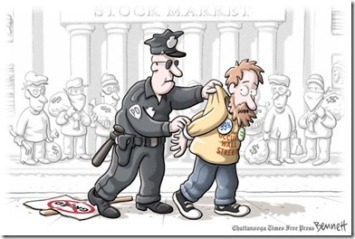 And you would hear CEOs bragging how they’re not going to spend any of that on people; they’re not going to use any of that money to loaning any of it out, which was supposed to be the purpose.
And you would hear CEOs bragging how they’re not going to spend any of that on people; they’re not going to use any of that money to loaning any of it out, which was supposed to be the purpose.
And even afterward, all Congressmen were agreeing that’s a huge amount of money, which at the time  was the biggest amount of money being spent at one time, in such a short period of time on anything.
was the biggest amount of money being spent at one time, in such a short period of time on anything.  And how could we forget that they just took the money and did whatever they wanted with it? They paid off debts to other rich friends; they went overseas and invested in other countries.
And how could we forget that they just took the money and did whatever they wanted with it? They paid off debts to other rich friends; they went overseas and invested in other countries.
Chase Didn’t Use the Money for What It Was Intended.

 Goldman Sachs used sixteen billion of what it received to pay off an outstanding debt to a German bank. The head of Chase bank is known to have said he wasn’t going to use the money to increase credit. In fact, he said he was going to keep that money and he was basically going to feather his nest with it and keep Chase solvent so that when other banks went under he could buy them up with it. That’s the money of the taxpayers he’s playing “Monopoly” with, mind you.
Goldman Sachs used sixteen billion of what it received to pay off an outstanding debt to a German bank. The head of Chase bank is known to have said he wasn’t going to use the money to increase credit. In fact, he said he was going to keep that money and he was basically going to feather his nest with it and keep Chase solvent so that when other banks went under he could buy them up with it. That’s the money of the taxpayers he’s playing “Monopoly” with, mind you.
Obvious “Truths” – Tax and Spend Democrats
 But stacked up against the facts we have this idea of tax and spend Democrats. It’s been repeated, going back many decades. It basically goes back to Roosevelt who ended the Depression and benefited virtually all Americans. And now that’s somehow a bad thing, brought up to get you mad about the tax and spend Democrat. And they’ve got all Americans convinced that if you vote for a Democrat, they’re going to take your money, they’re going to tax it, and they’re going to spend it on somebody else. Well, that has nothing to do with the truth.
But stacked up against the facts we have this idea of tax and spend Democrats. It’s been repeated, going back many decades. It basically goes back to Roosevelt who ended the Depression and benefited virtually all Americans. And now that’s somehow a bad thing, brought up to get you mad about the tax and spend Democrat. And they’ve got all Americans convinced that if you vote for a Democrat, they’re going to take your money, they’re going to tax it, and they’re going to spend it on somebody else. Well, that has nothing to do with the truth.
Social Security, Medicare, and Surpluses, Oh My!
It has nothing to do with the truth. Certainly Roosevelt benefited all Americans with Social Security and so on; certainly Medicare, brought in under Lyndon Johnson benefited the vast majority of Americans. All these things the Democrats did.  And Clinton raised taxes on the very rich a few percentage points and balanced the budget. Clinton created jobs and prosperity, balanced the budget, reduced the National Debt, and created a surplus that could have gone into creating a better America for all Americans. But, no, that was considered bad, because they said it hurt all Americans when the extremely wealthy had to give a little more in taxes.
And Clinton raised taxes on the very rich a few percentage points and balanced the budget. Clinton created jobs and prosperity, balanced the budget, reduced the National Debt, and created a surplus that could have gone into creating a better America for all Americans. But, no, that was considered bad, because they said it hurt all Americans when the extremely wealthy had to give a little more in taxes.

The Fun Times Anticipating the Surplus
Never mind the facts, never mind that fact that we had a surplus that we were talking gleefully about how we were going to spend it. If you can remember, we were discussing investing in better roads and infrastructure that would have benefited even the businesses.

Stealing Home
 But no, it wasn’t about the truth anymore, it was about how you made it to home base, how you got money for yourself.
But no, it wasn’t about the truth anymore, it was about how you made it to home base, how you got money for yourself.  And it didn’t matter anymore if you just skipped all the bases, and you started at home and went to home…if you just took the money.
And it didn’t matter anymore if you just skipped all the bases, and you started at home and went to home…if you just took the money.  I mean, after a while the Republicans could just do that; tax breaks for the wealthy just because they were wealthy. Because, after a while, after all those years of repeating it: They could get away with, If you tax the wealthy you’re taxing all Americans. Wow.
I mean, after a while the Republicans could just do that; tax breaks for the wealthy just because they were wealthy. Because, after a while, after all those years of repeating it: They could get away with, If you tax the wealthy you’re taxing all Americans. Wow.
The Wealthy Are the Creative Sector All Right … Creative in Stealing Our Money
Obvious “Truth”—The Wealthy Are the Job Creators
Obvious “Truths”:
- Rich people create the jobs.
- The wealthy are society’s creative sector.
- Poor folks don’t create jobs, don’t invest their money.
- That “class warfare” stuff “just doesn’t work.”
Obvious “Truth” – Rich People Create the Jobs
Obvious “Truth”—The Wealthy Are Society’s Creative Sector.

 Yes, I have actually heard it said this way; a good chance you have too. Here’s how it works: Raising taxes on the wealthiest is gonna hurt all Americans because by taxing that sliver of the upper two percent of Americans, you are inhibiting the creative sector’s ability to create jobs. Rich folks are society’s wealth creators. The wealthy are the creative people in our country.
Yes, I have actually heard it said this way; a good chance you have too. Here’s how it works: Raising taxes on the wealthiest is gonna hurt all Americans because by taxing that sliver of the upper two percent of Americans, you are inhibiting the creative sector’s ability to create jobs. Rich folks are society’s wealth creators. The wealthy are the creative people in our country.
They’re Creative All Right.
They’re the creative people, huh? Yea, they’re creative in stealing from us. They’re creative in fattening their wallets at our expense. They’re creative in getting people elected who are liars and things like that.
That’s not the kind of creativity I’d like to have. As far as creating jobs. Who creates jobs?
Excess Wealth Given to the Rich Created High Art Prices, Not High Employment.

 Here’s the facts. You know all that money that was given to the rich people? All those tax incentives given to the rich people by Reagan? Well, It didn’t create jobs so much as it created a lot of excess wealth that went into, well, people were buying yachts, and they were investing in art objects that were being bid through the roof.
Here’s the facts. You know all that money that was given to the rich people? All those tax incentives given to the rich people by Reagan? Well, It didn’t create jobs so much as it created a lot of excess wealth that went into, well, people were buying yachts, and they were investing in art objects that were being bid through the roof.
 The wealthy were scrambling; they had so much money they were fighting over art objects.
The wealthy were scrambling; they had so much money they were fighting over art objects.  And the art objects — paintings and so on, famous paintings – were making headlines in being sold for so much. During the Eighties under Reagan it was common to hear of 39 million dollars for such and such…58 million, 82 million. Of the 25 most expensive paintings ever sold, only two did not come at a time when tax cuts of either Reagan or one of the Bushes were in effect. And because what? Because the rich had so much extra freakin money. Now you tell me how many jobs money tied up in art objects created?
And the art objects — paintings and so on, famous paintings – were making headlines in being sold for so much. During the Eighties under Reagan it was common to hear of 39 million dollars for such and such…58 million, 82 million. Of the 25 most expensive paintings ever sold, only two did not come at a time when tax cuts of either Reagan or one of the Bushes were in effect. And because what? Because the rich had so much extra freakin money. Now you tell me how many jobs money tied up in art objects created?
Real Truth—The Rich Will Squander or Sit on Extra Money.

 I mean it isn’t rocket science. It’s very simple … simple psychology. This has to do with facts: You give money to rich people who don’t need it, they’re the ones who are going to squander it; they’re the ones who are going to spend it frivolously, or not going to spend it just let it sit. They’re not going to benefit society with it; they’re not going to multiply it; they’re not going to invest.
I mean it isn’t rocket science. It’s very simple … simple psychology. This has to do with facts: You give money to rich people who don’t need it, they’re the ones who are going to squander it; they’re the ones who are going to spend it frivolously, or not going to spend it just let it sit. They’re not going to benefit society with it; they’re not going to multiply it; they’re not going to invest.
 In economics this is called diminishing marginal returns. Simply put, it means that food eaten by a hungry person will reap greater reward than the food consumed later when the person is satiated.
In economics this is called diminishing marginal returns. Simply put, it means that food eaten by a hungry person will reap greater reward than the food consumed later when the person is satiated.  The same amount of money funneled into projects, or people, will have a greater percentage return when sorely needed than when not; a dollar will go far toward feeding a hungry African child and will be as nothing for a rich American. You simply cannot throw money at folks or ventures and expect to get as much, let alone more, return or reward later when the person is less “hungry” or the project less “starved” for funds..
The same amount of money funneled into projects, or people, will have a greater percentage return when sorely needed than when not; a dollar will go far toward feeding a hungry African child and will be as nothing for a rich American. You simply cannot throw money at folks or ventures and expect to get as much, let alone more, return or reward later when the person is less “hungry” or the project less “starved” for funds..
Obvious “Truth”: Non-Wealthy Folks Don’t Create Jobs, Don’t Invest Their Money
Real Truth: People With Less Money Will Sweat Over and Multiply Money, What They Can.
 Whereas, you give a fraction of that money to a poor person, a tiny amount of that to a poor or moderate income person and what will they do?
Whereas, you give a fraction of that money to a poor person, a tiny amount of that to a poor or moderate income person and what will they do?  You have any idea how somebody who is poor will make a little bit of money go a long long way?
You have any idea how somebody who is poor will make a little bit of money go a long long way?
I saw my father do it. He is the same person making the meager fifty dollars a week at one point. And he wasn’t making much more, but he eventually got a truck driving contract with the U.S. postal service.  He was able to own several trucks and to hire several workers.
He was able to own several trucks and to hire several workers.
So, why did he do that? Because he didn’t have a lot of money.  And by taking those chances and becoming a businessperson, taking that little bit of money he had, he created jobs for a few other people. Because he was motivated, he was desperate. And for him it was all about a chance to raise himself out of being poor. He spent his life scanning for such opportunities till he finally came across one.
And by taking those chances and becoming a businessperson, taking that little bit of money he had, he created jobs for a few other people. Because he was motivated, he was desperate. And for him it was all about a chance to raise himself out of being poor. He spent his life scanning for such opportunities till he finally came across one.
Billionaires Are Not Highly Motivated to Become Millionaires.

 So you have people who would take any money coming their way to better their situation in life, the real American way. They would really love to be millionaires; they would risk their very lives for that. They would work their asses off. But those folks aren’t the people who are already billionaires.
So you have people who would take any money coming their way to better their situation in life, the real American way. They would really love to be millionaires; they would risk their very lives for that. They would work their asses off. But those folks aren’t the people who are already billionaires.
But Nobody Will Point This Out!

 So you’ve got these inanities thrown out there. They’re being said over and over again…” Rich people create the jobs; they’re society’s creative sector.” These obvious untruths are not being
So you’ve got these inanities thrown out there. They’re being said over and over again…” Rich people create the jobs; they’re society’s creative sector.” These obvious untruths are not being 
 countered by journalists and pundits. There is really no one pointing out that anything is a lie, there’s nobody saying out loud that these self-serving pronouncements are untrue, or that what is being said is vastly different from the facts.
countered by journalists and pundits. There is really no one pointing out that anything is a lie, there’s nobody saying out loud that these self-serving pronouncements are untrue, or that what is being said is vastly different from the facts.
..
Makin’ People Foolish – Foolin’ the People About “Us” (The Rich)
Makin’ Foolish People – Foolin’ the People About “Us” (The Rich)
Obvious “Truths”:
- Things you hear a lot are true.
- Simple “truths” are real truths.
- Democrats think they’re better than everybody; they’re snobs, elitists….
- Unlike Republicans who are regular people just like me, folks I could sit and have a beer with…who’d understand me.
Confused People Take Comfort in Stupidity
When ALL You Hear Are Lies, You Begin to Think It Has to Be the Truth.
 So, what happens? What is the result of these things being heard long enough, with nobody countering them or anything. It’s natural, if you hear something said enough, you don’t question it.
So, what happens? What is the result of these things being heard long enough, with nobody countering them or anything. It’s natural, if you hear something said enough, you don’t question it.
 I myself am that way. I was told that we should go into Iraq because there was weapons of mass destruction. I didn’t hear anybody saying anything differently. So I believed it. Well, that turned out to be a lie.
I myself am that way. I was told that we should go into Iraq because there was weapons of mass destruction. I didn’t hear anybody saying anything differently. So I believed it. Well, that turned out to be a lie.

 It’s just natural that if you don’t hear anything to counter something, you’re going to believe that the only thing being said is the truth. And that certainly has increased over time…through the years.
It’s just natural that if you don’t hear anything to counter something, you’re going to believe that the only thing being said is the truth. And that certainly has increased over time…through the years.
Democrats Feel Like They’re Talking to a Wall; They’re Talking to the Weary.
 It is not that these lies weren’t countered; they were…by progressives and Democrats…and the few, the brave of commentators.
It is not that these lies weren’t countered; they were…by progressives and Democrats…and the few, the brave of commentators.  In later years, MSNBC emerged and could be counted on for straight talk. Comedy Central became the “real news” for the young educated for being willing to throw light, albeit hiding behind the built-in denial mechanism of a comic façade, on the inanities of the Wingnuts and Well-Funded.
In later years, MSNBC emerged and could be counted on for straight talk. Comedy Central became the “real news” for the young educated for being willing to throw light, albeit hiding behind the built-in denial mechanism of a comic façade, on the inanities of the Wingnuts and Well-Funded.

 But that has not been the reality touching the lives of ordinary Americans. What I observed is that the great majority of pundits weren’t any help in clarifying things for people. Journalists would say, “Ok, Mr. Democrat,
But that has not been the reality touching the lives of ordinary Americans. What I observed is that the great majority of pundits weren’t any help in clarifying things for people. Journalists would say, “Ok, Mr. Democrat,  what do you have to say about that?” And The Democrat would respond with a reasoned argument, laying out all these things that made perfect sense if you’re familiar with the issue.
what do you have to say about that?” And The Democrat would respond with a reasoned argument, laying out all these things that made perfect sense if you’re familiar with the issue.
And pundits wouldn’t delve into their argument, tease out its elements so as to enlighten.
 And keep in mind that now more than ever people need that. We have people listening to this who are working two jobs, tired, overworked, worried about their health care, stressed.
And keep in mind that now more than ever people need that. We have people listening to this who are working two jobs, tired, overworked, worried about their health care, stressed.  They’re not going to be able to follow an argument very well. In fact they’re going to forget what all those words meant and how they all fit together.
They’re not going to be able to follow an argument very well. In fact they’re going to forget what all those words meant and how they all fit together.
So after a while a lot of these folks are going to say…I’m sure you’ve heard them, they’re Republicans and the ones who vote for Republicans…they would say, “Aw geez , that’s just a bunch of words, it don’t mean anything.”
But what the hell does that mean?
Confused People Retreat Into the Stupid.

 Well, it means that all these words can’t be remembered, they can’t take root in their mind after the lies they’re always hearing from the other side. They are
Well, it means that all these words can’t be remembered, they can’t take root in their mind after the lies they’re always hearing from the other side. They are  surrounded by the organized disciplined ongoing assault against them by the Republicans. They are filled up with talking points benefiting the wealthy comprised of simplistic simple-minded irrational mantra…irrational, repetitive, simple slogans.
surrounded by the organized disciplined ongoing assault against them by the Republicans. They are filled up with talking points benefiting the wealthy comprised of simplistic simple-minded irrational mantra…irrational, repetitive, simple slogans.
 So, the result is that Democrats don’t end up having a lot of power; they don’t get elected. I saw it happen in presidential election after presidential election. I saw Reagan saying simplistic things, getting all the people pissed off about poor people and about the Soviets.
So, the result is that Democrats don’t end up having a lot of power; they don’t get elected. I saw it happen in presidential election after presidential election. I saw Reagan saying simplistic things, getting all the people pissed off about poor people and about the Soviets.
 From the other side, I heard his appealing to the worst in people countered by reason, by sensible explanations and realistic proposals of a Dukakis, a Carter, and a Mondale. And then at the end it was…. it didn’t mean a damn thing. Because people just felt more comfortable around somebody who kept things simple, who said simple words, and seemed angry like they were.
From the other side, I heard his appealing to the worst in people countered by reason, by sensible explanations and realistic proposals of a Dukakis, a Carter, and a Mondale. And then at the end it was…. it didn’t mean a damn thing. Because people just felt more comfortable around somebody who kept things simple, who said simple words, and seemed angry like they were.
 Not that Reagan said anything indicating any of his policies were going to benefit average folks. No, actually he screwed them, but they still liked him! Because Reagan, like other Republicans, are able to confuse people into thinking that any screwing up, of any time, must have been done by Democrats. They will tell you your poverty now is caused by Democratic policies of the past which actually got us out of depressions, recessions, and created surpluses.
Not that Reagan said anything indicating any of his policies were going to benefit average folks. No, actually he screwed them, but they still liked him! Because Reagan, like other Republicans, are able to confuse people into thinking that any screwing up, of any time, must have been done by Democrats. They will tell you your poverty now is caused by Democratic policies of the past which actually got us out of depressions, recessions, and created surpluses.  They will tell you your lousy health care now is caused by money going to the Medicare that you like. They will tell you that the financial squeeze you feel is because of the “penny” going to a poor person not the bundles of loot they are taking.
They will tell you your lousy health care now is caused by money going to the Medicare that you like. They will tell you that the financial squeeze you feel is because of the “penny” going to a poor person not the bundles of loot they are taking.
..
..
And Burdened People Become Confused People—That’s Their Plan

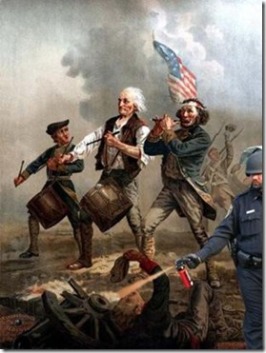 So, the electorate is swimming in these simple irrational things that have been made to sound reasonable. And they are unable to see through them because they have been kept in this situation of increasing pressure to produce, produce, produce; of less leisure time and no time to think; of worries, medical care, all kinds of things you have to put out money for. They can hardly see through the swindle since they are distracted by the threat to their lives from insurance companies–those folks who may or may not pay you if you need it though you have faithfully paid them.
So, the electorate is swimming in these simple irrational things that have been made to sound reasonable. And they are unable to see through them because they have been kept in this situation of increasing pressure to produce, produce, produce; of less leisure time and no time to think; of worries, medical care, all kinds of things you have to put out money for. They can hardly see through the swindle since they are distracted by the threat to their lives from insurance companies–those folks who may or may not pay you if you need it though you have faithfully paid them.
We’ll Insure You, Up to the Time You Need It

It’s gotten to the point where you have insurance but you dare not ever make a claim. You live with the risk of unexpected loss to your home at any time that you can not cover, because if you make a claim you may not get it next time. You risk losing home insurance and threatening your home. What the hell kind of insurance is that? You are insured but they can deny you? They can deny your claim, or as it happens all the time, you have one or two claims, and you no longer have an insurance company.
 So if your payments are not making them a profit, if you are one of those few who are costing them more to be a member or to be covered by that insurance company, if you’re costing them more, they’re not going to take it out of the profits of all those who are costing them less, so, you’re eliminated. So why do we even have insurance companies? Most people have insurance just in the hope that they’ll be covered.
So if your payments are not making them a profit, if you are one of those few who are costing them more to be a member or to be covered by that insurance company, if you’re costing them more, they’re not going to take it out of the profits of all those who are costing them less, so, you’re eliminated. So why do we even have insurance companies? Most people have insurance just in the hope that they’ll be covered.
Rational Thought Replaced With Slogans … How Can Anyone Know the Truth?
How Can Folks Unite Against Injustices Hidden From Them

 Who has the time to think clearly or reason confronted by all this other uncertainty, this other insanity? So we have all these pressures and then there’s these slogans put out and people are not able to follow rational arguments.
Who has the time to think clearly or reason confronted by all this other uncertainty, this other insanity? So we have all these pressures and then there’s these slogans put out and people are not able to follow rational arguments.
 How this expresses itself came out in a discussion yesterday on Facebook. One rational type was trying to reason with a supporter of Mitt Romney, who was convinced everyone knew all the “true facts,” EVERYONE knew about all the “failed” and horrible things Obama had done…as she’d learned from Glenn Beck among others.
How this expresses itself came out in a discussion yesterday on Facebook. One rational type was trying to reason with a supporter of Mitt Romney, who was convinced everyone knew all the “true facts,” EVERYONE knew about all the “failed” and horrible things Obama had done…as she’d learned from Glenn Beck among others.  My earnest and reasonable friend finally threw in the towel saying, “It’s like talking to a random thought generator. What do you think about foreign policy?
My earnest and reasonable friend finally threw in the towel saying, “It’s like talking to a random thought generator. What do you think about foreign policy?  Cheese.”
Cheese.”
That is the result of factoids, “obvious truths,” replacing reason in burdened and confused minds. So how could these people possibly, without being able to see clearly, how could folks like this ever be united against the REAL injustices against them…which they don’t even realize are happening…their minds filled with the fake stuff?
How Can Folks Protect Themselves From “Wizards” Hiding “Behind the Curtain”?

 People do not even know who the perpetrators are, for the pundits won’t tell them. Folks cannot figure it out for themselves; and the pundits absolutely refuse to point out who’s responsible for the things that add misery to their lives.
People do not even know who the perpetrators are, for the pundits won’t tell them. Folks cannot figure it out for themselves; and the pundits absolutely refuse to point out who’s responsible for the things that add misery to their lives.

 Media types say they cannot do that because they say it has to do with, something about equal time. But that was supposed to be for elections.
Media types say they cannot do that because they say it has to do with, something about equal time. But that was supposed to be for elections.  And, as I pointed out earlier, equal time turned into something where, no matter what lie is put
And, as I pointed out earlier, equal time turned into something where, no matter what lie is put  out there or would be put out, no matter what truth is put out there, the media will find somebody, they could find anybody, who would be willing to say a lie and sound reasonable for the purpose of confusing things.
out there or would be put out, no matter what truth is put out there, the media will find somebody, they could find anybody, who would be willing to say a lie and sound reasonable for the purpose of confusing things.
With all this, how can anybody know what the truth is?
A Rising Tide Lifts All Yachts … The Rich Are Getting Richer and the Workers Are Getting Humiliated
Increasing Humiliation of Working People, the Rich Get Richer at Our Expense
Obvious “Truth”:
- A rising (economic) tide lifts all boats .
Real Truth – The Rich Get Richer at Our Expense.
Life Has Gotten Harder – Real Truth

 So we have this increasing deterioration of our prosperity, of our standard of living, of our joy of life. Life becomes more and more of a struggle, and who benefits? Well we see who benefits. We now have a new super rich class which is above even the very rich. It’s called the filthy rich, as I’ve pointed out.
So we have this increasing deterioration of our prosperity, of our standard of living, of our joy of life. Life becomes more and more of a struggle, and who benefits? Well we see who benefits. We now have a new super rich class which is above even the very rich. It’s called the filthy rich, as I’ve pointed out.
Real Truth – Our Suffering Has Paid for Even Greater Obscenities by the Wealthy.
 And to create this super-rich class where did that money come from? Well, it’s come at the cost of average people like us.
And to create this super-rich class where did that money come from? Well, it’s come at the cost of average people like us.  And I can tell you this because I lived through it all. I’m old enough to have seen the changes. I was born in 1950. I’ve been there to know, things are much harder than they used to be.
And I can tell you this because I lived through it all. I’m old enough to have seen the changes. I was born in 1950. I’ve been there to know, things are much harder than they used to be.

 And our rights and our freedoms have changed. Because of their successes in the Culture War/Class War, because of Reagan and Bush, the Patriot Act, the neo-con takeover, and everything, our rights to speak out and to live without harassment have been diluted. Out of all the civilized countries in the world we have the greatest percentage of our people in jails. So what does that say?
And our rights and our freedoms have changed. Because of their successes in the Culture War/Class War, because of Reagan and Bush, the Patriot Act, the neo-con takeover, and everything, our rights to speak out and to live without harassment have been diluted. Out of all the civilized countries in the world we have the greatest percentage of our people in jails. So what does that say?
Humiliation…Increasing Humiliation of Working People
We have these huge corporations taking over and it’s humiliating to people. I mean in times past we had the small retailer, perhaps this person had a small coin shop, bakery, drugstore and pharmacy, shoe shop, maybe a corner grocery store. Now, there aren’t any small stores like that. And where does that person end up making a living?
Well, he worked in retail so maybe he even ends up working for the same department store hat pushed him out of business. So what does that do to your self-esteem?
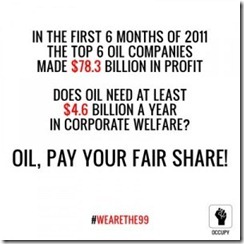
 There’s example after example of people like that in recent years; it’s something that went into high gear under Bush. There are ever more people who are losing their jobs, well paying jobs, because they’re being sent overseas; and they are sometimes actually forced to train the people who are taking their jobs.
There’s example after example of people like that in recent years; it’s something that went into high gear under Bush. There are ever more people who are losing their jobs, well paying jobs, because they’re being sent overseas; and they are sometimes actually forced to train the people who are taking their jobs.
I can say I feel fortunate to have lived many years in an America quite different from what most people in America being younger than me have been growing up with.
Hippies, Yippies, Yuppies … How the 1% Diluted the Progressive Movement by Slandering Boomers to Foster Culture War Between Them and Gen Xers and to Distract from Their Own Looting
The Yuppies Were Hardly Boomers … But This Idea Supports a Right-Wing Agenda by Pitting Progressives Against Each Other … Try the Red Pill Instead
Obvious “Truths”:
- Yuppies are former hippies.
- “Flower children” abandoned their idealism and became greedy careerists focused on money.
- Former young radicals saw the error of their ways and became more conservative politically as they got older.
- The “Me” Generation is the Sixties Generation
- Sixties youth turned from free love and a sexual revolution to conservative sexual values and evangelical religion.
- “My Generation” gave up their idealism as everyone does with greater age and maturity.
- The Woodstock generation turned from pot and visionary thinking to booze, cocaine, and disco dancing a decade later
- The “free love” generation settled down and focused on family and jobs, centered around monogamy.
- “My Generation” is currently filling up the suburbs and feverishly maximizing their portfolios, at any and all cost.
Real Truth – All the Above Are Lies … Propaganda to Further the Motives of the 1%, the Filthy Rich
I can say I feel fortunate to have lived many years in an America quite different from what most people in America being younger than me have been growing up with.
I watched in the early Eighties the lies about a “Me Generation” coming out. Republicans brought that out to beat people down with. The idea was planted that people who wanted anything for themselves were selfish, for after all only the wealthy should ever benefit.
 And it’s funny too, how they were able to use their own spawn to make this case. You could look around and see a new cadre of young folks—Gen X Yuppies—who had bought into the WWII values, who had been deluded by the untruths the 1% of that WWII generation had been using against the masses. The rich elite had succeeded in convincing those younger of mind that the wealthy folks interests where actually their own.
And it’s funny too, how they were able to use their own spawn to make this case. You could look around and see a new cadre of young folks—Gen X Yuppies—who had bought into the WWII values, who had been deluded by the untruths the 1% of that WWII generation had been using against the masses. The rich elite had succeeded in convincing those younger of mind that the wealthy folks interests where actually their own.
The 1% of the WWII Generation’s response to Sixties activism on campus, as I showed earlier, led to their taking over the universities in the early Seventies and turning them away from the humanities and social sciences and into career mills; I was there and observed it first hand. The success of this is what created the Yuppies in the Eighties–young upwardly mobile professionals–who were the first batch of Generation X—who are those born 1961 to 1981, who therefore left high school beginning in 1978. [Footnote 1]
So these Gen X Yuppies were coming onto the scene in the early Eighties, when the first of them were leaving the universities. The turnaround in education, away from free thinking and towards conservative careerist values, was in full swing by the time they reached college in 1978 on. And its effect on them was patent when they began coming of age. They were what the WWII Generation wanted: money-oriented and compliant…greed had been made “good” again. Standouts of this generation today are Sarah Palin (born 1964), Eric Cantor (born 1963), Rand Paul (born 1963), and Paul Ryan (born 1970).
So then the WWII Generation, fully in charge of society, could point to these yuppie spawn as examples of the obscenity of greed, thus deflecting attention away from their own, WWII Generation, me-spiritedness. To further their ends, they also claimed the origins of this unseemly greed lie in the failed, unrealistic values of the Sixties generation and their idealism.
 This was one of their most amazing feats. They were able to take their values of greed and conformity, sow them in another generation, point to those values and criticize them, blame them on the hippies, all the while hiding their own espousal of those values. They perpetrated, denied, criticized, scapegoated, distracted, and obfuscated all together! They thoroughly convinced Americans that the Me Generation and Yuppies were those who formerly were flower children.
This was one of their most amazing feats. They were able to take their values of greed and conformity, sow them in another generation, point to those values and criticize them, blame them on the hippies, all the while hiding their own espousal of those values. They perpetrated, denied, criticized, scapegoated, distracted, and obfuscated all together! They thoroughly convinced Americans that the Me Generation and Yuppies were those who formerly were flower children.
Whereas this actual Me Generation, these Yuppies, were predominantly a bunch of reactionary young people who said to hell with this idealistic stuff, and of helping out, and kumbaya, and all that stuff. They said, we’re for money, to hell with any one else. And somehow the WWII-Generation-owned media, assisted by a Fifties Generation now in their prime, convinced folks that these careerists out only for themselves were the one-time visionaries. Of course they only pulled this off because they owned or controlled all the major organs of expression in America—the newspapers, magazines, TV, radio, education, book publishing. I’ve delineated how they did this in one of the earliest all-out assaults, after their initial setbacks in the Sixties, of the Culture War/Class War they have been waging on the 99% since that time.
The media flooded American minds with the idea that the Me Generation was My Generation (I’m “talkin’ bout my generation” here) in the Eighties. They had prepared the ground for that lie, as there had been constant slander of my generation in the press since the beginnings of our activism in the Sixties, exactly like they are now putting out against the Millennials and those in the Occupy movement today. Beginning in the Seventies, owning the publishing and media industries, they concocted the lie that there was a conservative backlash going on. (See Chapter Two: Matrix Aroused, the Sixties and The Big Lie About Yuppies Being Hippies.)
This supposed conservative backlash was merely a continuation of Nixon’s laughable claim that he was supported by a “Silent Majority,” which he had used since the beginnings of his term in 1969 and which was obviously false, as demonstrations grew in size and support swung away from him throughout this period; and eventually he was forced to resign. But Republicans always claim there are a majority of real folks out there—“real Americans” as Palin and her kind say today—who support them but are doing it secretly. (btw, lol!)
Anyway, by the Eighties the powers-that-be were able to place this idea of a selfish “Me Generation” of Sixties youth, which they had been saying for a while, as being the ones on the campus at the time or recently out, the Yuppies. It fit their narrative. But it was a lie, and virtually all my generation knew it and thought it laughable. We stopped laughing after a while as over the years, it became clearer they had done such a good job of preparing the ground and repeating the lie that it stuck in the minds of those other than my generation—the Fifties Generation ahead of us and Gen X behind us—and the right wing, who of course saw this as red meat to further their causes. The media controlled by the 1% said the Sixties generation had gone from idealism to just wanting money, thereby discrediting their opponents, us who were consistently representing the 99%. At the same time they gave credibility to their claim of the superior veracity of their own values of greed, materialism, ruthless pragmatism, ego above all, and even me-spiritedness. Also, it validated, even glorified their personal traits of conformity, hard-headedness, cynicism, compliance, and even mean-spiritedness .
The Lies About Jerry Rubin
They could only give one example, Jerry Rubin; and even about him they lied and slandered. First off, neither Jerry Rubin, or Abbie Hoffman for that matter, were Boomers or Sixties Generation members. They were Fifties Generation, born in 1938 and 1936 respectively. Boomers were born in the post-WWII baby boom from 1946 through 1960. So that is enough to discredit what they said about “my generation.” But taking it as an attack aimed at the counterculture, let’s examine it:
They said Jerry Rubin was engaged in trying to make money. And they never mentioned what he was trying to make money on… but God forbid anyone but them should try to make money anyway. You see, what the 1% do is drive people into lowered standards of living and poverty where they experience desperation for money at times. Then they can point to that grasping to survive as proof that their values of money above all else are legitimate and that it is not possible for humans to have any other values higher than that. They create the conditions that they can use to support and validate themselves…how convenient.
but God forbid anyone but them should try to make money anyway. You see, what the 1% do is drive people into lowered standards of living and poverty where they experience desperation for money at times. Then they can point to that grasping to survive as proof that their values of money above all else are legitimate and that it is not possible for humans to have any other values higher than that. They create the conditions that they can use to support and validate themselves…how convenient.
 But telling the whole truth would never allow them to do that. They didn’t mention about Jerry Rubin that he was engaged in selling health supplements; he was trying to help people out with their health. He was involved in multilevel marketing. He was an early investor in Apple Corporation, helping to foster the cybernetic revolution that progressives depend on today and which has strengthened our movement incredibly with Facebook and Twitter aiding us in overthrowing dictators in the Mideast and joining us in support of the Occupy and Wisconsin union movements.
But telling the whole truth would never allow them to do that. They didn’t mention about Jerry Rubin that he was engaged in selling health supplements; he was trying to help people out with their health. He was involved in multilevel marketing. He was an early investor in Apple Corporation, helping to foster the cybernetic revolution that progressives depend on today and which has strengthened our movement incredibly with Facebook and Twitter aiding us in overthrowing dictators in the Mideast and joining us in support of the Occupy and Wisconsin union movements.
 He traveled with Abbie Hoffman in doing “Yippie versus Yuppie” debates, that is true. Since it did not fit the narrative of their discrediting their opponents in the Sixties generation, they never understood or at least never mentioned that in using those terms for their “debates” they were continuing their tradition of fucking with their opponents’ minds by flaunting the terms that had been used against them.
He traveled with Abbie Hoffman in doing “Yippie versus Yuppie” debates, that is true. Since it did not fit the narrative of their discrediting their opponents in the Sixties generation, they never understood or at least never mentioned that in using those terms for their “debates” they were continuing their tradition of fucking with their opponents’ minds by flaunting the terms that had been used against them.  Critics don’t get and opponents conveniently overlook the heavily ironic and playful way my generation, and Yippies in particular, present themselves. “Yippie versus Yuppie” is supposed to make you think; it is a hook; and it is funny to those of us in the know. Believe me, I have the same problem with people sometimes misunderstanding my intent for the opposite of what I believe because of the amusingly ironic titles I sometimes give my writings.
Critics don’t get and opponents conveniently overlook the heavily ironic and playful way my generation, and Yippies in particular, present themselves. “Yippie versus Yuppie” is supposed to make you think; it is a hook; and it is funny to those of us in the know. Believe me, I have the same problem with people sometimes misunderstanding my intent for the opposite of what I believe because of the amusingly ironic titles I sometimes give my writings.
But Rubin’s position in this “debate”—which was actually a discussion of different ways the Sixties values might succeed, not be overturned—was that the POOR COULD BE HELPED by promoting programs to create wealth in their communities. I quote:
Rubin’s argument in the debates was that activism was hard work and that the abuse of drugs, sex, and private property had made the counter-culture “a scary society in itself.” He maintained that “wealth creation is the real American revolution. What we need is an infusion of capital into the depressed areas of our country.”
Someone who knew him well, Stew Albert, said this of Jerry in eulogizing him.
Jerry was always a rebel, but then he was always a rebel within the rebellion. He was always sort of rebelling against the norms of the rebellion.
And,
Jerry changed costumes, and he changed rhetoric, but he never changed his heart.
Does that sound like someone promoting the interests of the 1%? Or like someone just out for himself, as Yuppies really are? Remember that at the time, militant, even violent revolution had been in the air for a while—with the Weather Underground, the Black Panthers, and the Symbionese Liberation Army and such. So “Yippie vs. Yuppie” was a leftist debate about tactics. Today it would be considered a discussion of liberal vs. progressive views…hardly conservative, Yuppie, or Republican views. And Jerry Rubin’s putting on a suit made him about as conservative as it made Bob Dylan a conservative when he picked up an electric guitar at the Newport Festival of 1965. Dylan got booed for what was only considered unusual alongside some very high, and strict, expectations about purism in music having nothing to do with political ideology or musical quality but simply technology. Rubin’s wearing a suit was the same kind of thing at the time he did it…and it had nothing to do with ideology but simply tactics—i.e., revolutionary technology.
Also, at the same time as Rubin was doing all this and supposedly a Yuppie, he was running a legal and civil rights office in an artsy/alternative part of L.A., Echo Park, where he also lived. When he died he was on his way to dinner in the company of Fred Branfman of the Making a Difference project, whose purpose was to bring money into poor communities by helping inner-city youth learn how to start their own businesses. Does that sound like a Wall Street careerist? Does that sound like he turned over his ideals and bowed to the god of money? So, lies, lies, lies. And these lies become instituted and they’re not challenged after a while, after you hear them for decade after decade after decade….
You have to be older to know that it wasn’t always the way they tell you it is. It helps to have lived in different times and places and to have seen things with your own eyes to be able to see through these inane “obvious truths” that people take as absolute truths. It helps to have had experience with the things they are talking about to know what are actual facts and what are complete fabrications.
Setting the Record Straight on Boomers
Boomer-Generation X Culture War
A friend who supports the Occupy movement, and who happens to be a Gen Xer, recently shared this with me,
As a Gen Xer, I have to say we were outnumbered as a Generation with half the numbers of the boomers and the previous traditional generations.
…the boomers cut taxes on the wealthy and wages for the middle class to create the world’s largest debt, our dependence on dirty foreign oil grew as our manufacturing base got shipped over seas.
You Boomers call Gen X a slacker generation while doing all that?
It is the boomers who are the dead beat generation now.
If this person were correct, then why have the Boomers voted consistently Democratic? [Footnote 2]
The Gen X/Yuppie—Fifties Generation alliance was responsible for getting Reagan, Bush I, and Bush II elected. Boomers voted against Republicans, especially these; it’s all in the public record. Reagan, Bush I, and Bush II are the ones who did the tax cuts. Whereas Clinton—a Boomer and a Democrat—raised taxes on the 1% and balanced a budget for the first time.
Indeed, all Democratic candidates and Presidents going back to Roosevelt at least, with the one small exception of Kennedy favored and fought for raising taxes on the 1%, not cutting them, so as to relieve the burden on the 99%. The right likes to use Kennedy as an example of a Democrat seeing the wisdom of cutting taxes to improve the economy, but Kennedy’s proposed tax cut for the 1% was when the marginal rate was 91% range, not at 35% as today, and the country was prosperous. (See The Myth of JFK as a Supply Side Tax Cutter.) Also it was not instituted until Johnson began his term … which was incidentally when the huge deficits began. So Kennedy’s tax cut had nothing at all to do with the prosperity we enjoyed during his term, indeed its institution marked the beginning of increasing deficits.
Even today, it is Democrats—supported heavily by Boomers—who are opposed to tax cuts and favor reining in the greed of the 1%.  This includes Obama, who incidentally is a Gen X-Boomer cusper, born 1961. Note that he has surrounded himself with Boomers—Biden, Clinton, et al. And they are engaged in that same Democratic struggle of decades past of trying to get the 1% to pay their fair share in taxes. Meanwhile Republicans supported by that Fifties Generation (the Koch Brothers, John McCain, Dick Cheney, Mitch McConnell, et al) – Gen X/Yuppie (Palin, Cantor, Ryan, Rand Paul) alliance oppose Boomer-Democratic tax and other progressive initiatives at every turn.
This includes Obama, who incidentally is a Gen X-Boomer cusper, born 1961. Note that he has surrounded himself with Boomers—Biden, Clinton, et al. And they are engaged in that same Democratic struggle of decades past of trying to get the 1% to pay their fair share in taxes. Meanwhile Republicans supported by that Fifties Generation (the Koch Brothers, John McCain, Dick Cheney, Mitch McConnell, et al) – Gen X/Yuppie (Palin, Cantor, Ryan, Rand Paul) alliance oppose Boomer-Democratic tax and other progressive initiatives at every turn.
So to accuse Boomers, who voted predominantly for these Democrats and their policies, of cutting taxes is grossly misinformed or a lie. And for a Gen Xer to do this blaming is either ignorant, a denial, or delusional…but is in any case a product of that misinformation I’ve been talking about.
For to address that Gen Xer’s charges of Boomer’s causing the dependence on dirty foreign oil, the Sixties Generation started the environmental movement. I know a little about this; as I explained previously, I was one of those who helped bring nuclear plant construction to a halt in America, which we did in Springfield, Oregon, in the early Eighties. We, Boomers…I was born in 1950…supported Democrats who fought for environmental legislation, alternative energies, and reduced dependence on dirty energies against Republicans, supported by the Fifties-Gen X alliance, who watered down those policies and legislated a rape of our natural resources and our environment to benefit big business, Big Oil, Big Nuke, Big Coal, and the 1%.
As for the accusation that Boomers sent our manufacturing base overseas and caused a lowering of middle class wages, how can that possibly be true alongside the more than obvious knowledge that Democrats are the ones who consistently push for and favor raising the minimum wage and are the union supporters? Can this OWS person not be aware of the parallel Wisconsin union movement which has Democrats and union folks up against Republicans and Gen X/Fifties Gen Koch-supporters? Or is he somehow unaware of the fact that Boomers have consistently voted in greater numbers for Democrats than Republicans over all these decades? [Footnote 2]
Well, this shows the amount of success the WWII Generation and Fifties Generation enjoyed in shifting the blame for their policies and their theft of the national wealth. And, by the way, it was the WWII Generation that had the greatest retirement wealth per person and who instituted Social Security and other benefit programs for themselves … making themselves the wealthiest as well as the “Greatest Generation.” Probably with the tax cuts, the current Fifties Generation who in their retirement years are raping the wealth of the country to fatten themselves, are bettering them. Whereas the Sixties Generation, scapegoated again, is facing cuts in Social Security, Medicare, and other benefits at the exact time as they need it and are facing or entering retirement—being beaten down, harassed, and scapegoated by the Gen X-Fifties Generation alliance again.
You think this is ancient information and is irrelevant to what is happening today? Remember that the comment I quoted above from my Gen X friend and fellow Occupier was from only last week. He has his sights set on my generation as the perpetrators of the problems; these ideas have caused a split between Gen X and Boomer Progressives. I can tell you that his comment is not atypical from others I hear from Gen X in their attitudes toward Boomers.
Similarly, to some extent the Millennials believe Boomers are at fault also—this is what they have been taught. They are simply misinformed and so are not so committed to the lies as the Gen Xers.  The Millennials are open to the fact they have been deceived. After all their Boomer parents are models of the fact that these “facts” are actually lies. The Millennials have been made to believe, simply, that their own parents and those of their friends are somehow just different from those “bad Boomers” out there who are really the selfish and tax-cutter ones.
The Millennials are open to the fact they have been deceived. After all their Boomer parents are models of the fact that these “facts” are actually lies. The Millennials have been made to believe, simply, that their own parents and those of their friends are somehow just different from those “bad Boomers” out there who are really the selfish and tax-cutter ones.
Lies and toxic misinformation are not healthy, at all, for a movement that is predominantly an alliance of Millennials and Boomers, with some Gen Xers (notably, few Fifties Generation folks). After all, how do you think a progressive Boomer feels,  after fighting his entire life with his generational cohort for the changes that we are still fighting for with the OWS and Wisconsin union movements, and after hearing his entire life the made up lies, the slander, the scapegoating about himself, his generation, and his beliefs? How do you think she feels seeing those same lies being pulled out again and thrown against OWS supporters, for example, continuing therefore to throw salt into old wounds? And finally how do you think she feels to hear from her friends and allies in the movement that she has been the problem all this time, not the solution? It is disheartening, to say the least.
after fighting his entire life with his generational cohort for the changes that we are still fighting for with the OWS and Wisconsin union movements, and after hearing his entire life the made up lies, the slander, the scapegoating about himself, his generation, and his beliefs? How do you think she feels seeing those same lies being pulled out again and thrown against OWS supporters, for example, continuing therefore to throw salt into old wounds? And finally how do you think she feels to hear from her friends and allies in the movement that she has been the problem all this time, not the solution? It is disheartening, to say the least.
In this antagonism against Boomers, the other side—the WWII-Fifties Gen alliance, supportive of the 1% and their Tea Party sycophants—have won again. [Footnote 3]
For these WWII-Fifties Gen lies have thrown discord into progressive ranks. And they have thrown off the aim of our movements as to who the perpetrators are, giving the 1% a convenient fog of confusion behind which they can continue unfettered their actions against us.
Finally a most visible example of the right-wing/Republican Fifties Generation – Gen X alliance was shown in the last presidential election with a Fifties Gen, McCain, matched with a Gen X – Palin, born in 1964, coming smack in the middle of the Yuppies (1961 through 1970). This is the generational alliance and the generational values we should be targeting, not Boomers, and Progressives would do better to know that.
The “Truth Dividend” of Having Been Around
So, in understanding what might be the truth and what are obviously lies, it helps to be older, for you can know that it wasn’t always the way they tell you it is or has to be. It helps to have lived in different times and places and to have seen things with your own eyes to be able to see through these inane “obvious truths” that people take as absolute truths. It helps to have had experience with the things they are talking about to know what are actual facts and what are complete fabrications.
And with that seeing comes the knowledge that over the course of the last fifty years America descended into a deep slumber of untruth from which it could not awaken…regardless of all the righteous efforts of many true-seeing progressive activists who did their best to sound alarms.
Continue With Culture War, Class War, Chapter Sixteen: The Fall of “Obvious Truths”
Return to Culture War, Class War, Chapter Fourteen: Better Off Than Fifty Years Ago?
The Rise and Fall of “Obvious Truths,” Part Three – an Audio Reading by SillyMickel Adzema
Here is an audio of the author’s impassioned reading of this part. Though it is of the first, unedited and unpolished version, and it does not contain all the detail of its current form, it does capture the flavor of it all. I offer it here for your listening pleasure. For the reading of this part, “The Rise and Fall of ‘Obvious Truths,’ Part Three,” click on the link to the audio site above or click the link to the audio player below.
http://ecdn0.hark.com/swfs/player.swf?1305835355
Footnotes
1. A lot of confusion about Boomers, Yuppies, And Generation X has been generated by the Census Bureau and main stream media. A generation, see below, is defined as a cohort of people occurring roughly every twenty years who share some common viewpoint and experiences.
This is what a generation actually is:
Defining a generation
Strauss and Howe define a social generation as the aggregate of all people born over a span of roughly twenty years, or about the length of one phase of life: childhood, young adulthood, midlife, and old age. Particular generations are identified (from first birthyear to last) by looking for cohort groups of this length that share three criteria. First, members of a generation share what the authors call an age location in history: they encounter key historical events and social trends while occupying the same phase of life. Because members of a generation are shaped in lasting ways by the eras they encounter as children and young adults, they also tend to share certain common beliefs and behaviors. Aware of the experiences and traits that they share with their peers, members of a generation also tend to share a sense of common perceived membership in that generation.[16] For example, in a 2007 Harvard Institute of Politics survey, Americans born 1982 to 1989 (whom Strauss and Howe define as the first-wave cohorts of the Millennial Generation) identified themselves as belonging to a “unique and distinct” generation, with an outlook different from people in their 30s or older.[17] Surveys show that Boomers also strongly identify with their own age cohort.[18]
Strauss and Howe base their definition of a generation on the work of diverse writers and social thinkers, from ancient writers such as Polybius and Ibn Khaldun to modern social theorists like José Ortega y Gasset, Karl Mannheim, John Stuart Mill, Émile Littré, Auguste Comte, and François Mentré.[19]
Meanwhile, the U.S. Census Bureau definition of Boomers is different. See Baby boomer.
Why would it be different? That is the crucial question. The Census Bureau’s definitions of Boomers and Generation X is as follows:
- The Baby Boom Generation is the generation that was born following World War II, from 1946 up to 1964, a time that was marked by an increase in birth rates.[10] The baby boom has been described variously as a “shockwave”[11] and as “the pig in the python.”[12] By the sheer force of its numbers, the boomers were a demographic bulge which remodeled society as it passed through it. In general, baby boomers are associated with a rejection or redefinition of traditional values; however, many commentators have disputed the extent of that rejection, noting the widespread continuity of values with older and younger generations. In Europe and North America boomers are widely associated with privilege, as many grew up in a time of affluence.[11] One of the features of Boomers was that they tended to think of themselves as a special generation, very different from those that had come before them. In the 1960s, as the relatively large numbers of young people became teenagers and young adults, they, and those around them, created a very specific rhetoric around their cohort, and the change they were bringing about.[13]
- Generation X (also known as the 13th Generation and the Baby Busters)[14] is the generation generally defined as those born after the baby boom ended from 1965 to 1981. [15] The term generally includes people born during all or part of the 1960s: According to Strauss-Howe generational theory, 1961 is the starting point, though other sources, including the U.S. Census Bureau, consider it to have started in the mid-1960s.[16][17] It ends in late 1970s to early 1980s, usually not later than 1981[18][19][20][21] or 1982.[22][23][15][24] The term has also been used in different times and places for a number of different subcultures or countercultures since the 1950s.[25]
From Generation in Wikipedia.
So why are those born 1961 through 1964 considered part of the Boomer Generation by the Census Bureau, which has informed much of the discussion on this? Why is the Census Bureau attributing only 17 years to Generation X but 19 years to Boomers, when in fact the Boomers were born in a World War II “baby boom” that had them being born in a distinctly shorter period. Whereas Generation X was born of the Fifties Generation during a more languorous, hence longer period? Why is the Census Bureaus including as Boomers those born at those end years of 1961 through 1964 when the number of births was decreasing, not “booming”?
I don’t know the answer, but I do know this decision by the Census Bureau has served pundits and right wing commentators in giving more weight to their positions by diluting the distinctly liberal voting record of actual Boomers. As I have been stating above, there was a concerted effort to scapegoat Boomers and to confuse them with Yuppie-Gen Xers. This confused definition by the Census Bureau is part of that. It has allowed pundits to slander the Sixties Generation, as I said, by attributing qualities to them that were actually a part of the WWII Generation’s Culture War Attack of creating a generation different from and more compliant than the Sixties Generation/ Boomers.
At any rate, that is why we have the discrepancy shown in this description of the Pew Report findings on “Boomer” voting patterns. Let’s look at a few relevant findings:
Of greatest interest to BTS are the Pew Research Center survey findings about Boomers.
- In recent years Boomers increasingly call themselves conservatives. They voted for Republican candidates in 2010, but are still on the fence for the 2012 Presidential Election.
- Older Boomers tilt Democratic while younger Boomers tilt Republican. When asked to name the best President during their lifetime, Boomers were evenly divided between Clinton and Reagan.
- Younger Boomers and Generation Xers have been one of the most reliable Republican voting groups.
This supports what I’m saying about generational voting patterns. The difference lies in that this author has to differentiate between late Boomers and early Boomers. They are opposite in their voting patterns. This person wouldn’t be so confused if he placed the generational divide where it belongs, at 1961, not 1965. Boomers were born between 1946 and 1960, as shown in the chart below, which also shows Generation X beginning in 1961.
The Boom Generation defined by Howe and Strauss, as shown in the chart above, born 1946 thru 1960 are the ones who vote consistently Democratic. They are the ones who shared common events and experiences growing up and were shaped by them, notably the Vietnam War; the JFK, RFK, and MLK assasinations in 1968; the sexual revolution; the explosion of the use of LSD and pot as drugs, and the counterculture. These events were not on the cultural map that faced the ones born 1961 through 1964, for they were too young. Yet how can one define a Boomer-Sixties Generation that does not include these as formative experiences?
So this discrepancy is an example of what I’m talking about in this article. For it continues the confusion about Boomers and contributes to the scapegoating and the denigration of Boomers as being a Me Generation and Yuppies being former hippies by simply getting confusing results by including some from Gen X—some actual Yuppies. To include those born between the four years, 1961 through 1964, you end up getting the confused results this author gets. You are including the likes of Sarah Palin and Eric Cantor, fer Chrissakes! I’ve never heard anyone mistake them for my generation. It would have Barack Obama, born 1961, categorized as a Boomer, as if there is not an obvious generational difference between him and some the notable Boomers in his administration, like Joe Biden and Hillary Clinton. But by seeing that Obama is a Yuppie-Gen Xer, it helps explain the differences between him and the actual Boomer president, Bill Clinton.
To include those born between the four years, 1961 through 1964, you end up getting the confused results this author gets. You are including the likes of Sarah Palin and Eric Cantor, fer Chrissakes! I’ve never heard anyone mistake them for my generation. It would have Barack Obama, born 1961, categorized as a Boomer, as if there is not an obvious generational difference between him and some the notable Boomers in his administration, like Joe Biden and Hillary Clinton. But by seeing that Obama is a Yuppie-Gen Xer, it helps explain the differences between him and the actual Boomer president, Bill Clinton.
For more on this, see Generation Jones, which is the term given for those born 1954 through 1964. They are seen to be very different from the Boomers. They did not confront the same social realities as did Boomers. They even came of age after the Vietnam War. They missed the counterculture movement. It is ludicrous for generationalists to include these with Baby Boomers as especially the second half of these have an entirely opposite world view from Boomers. Their stalwarts include Rick Santorum (born 1958), Sarah Palin (born 1964) and Eric Cantor (born 1963)…hardly Boomers. Notice that it also includes Rand Paul (born 1963), who as expected is the son of a Fifties Generation parent with whom he is allied, Ron Paul (born 1935).
See also the write up on Generation X in Wikipedia, which addresses this confusion as to where the dividing line between Boomers and Gen X is as well.
Finally, see Baby boomer, which discusses this confusion and adds two important considerations: The person who coined the term “baby boomer” described them as those born between 1943 and 1960. So why did the Census Bureau change it? The second point discussed is that many theorists have two distinct generations during this supposed period of Census Bureau Boomers—Boomers and Generation Jones, which are said to be those born 1956 through 1964. So this latter group is not included with Boomers.
Is all this not confusing enough? Does it not play into the right wing agenda to dilute their opponents power by confusing their opponents profile, so they can lob any charge against them? Or attribute any self-congratulatory trait to them, as they wish?
Most of all, this strikes me as devious in that it allows right wingers to blame Boomers for the cadre of youth, the Yuppies, who were actually their creation—that of the 1% and those reactionary culture war forces—and were in no way influenced by, so should hardly be included in, “my generation” of Boomers, the Sixties Generation.
2. BLAM!! From the site, Gallup Politics, of May 8, 2009. Even though continuing the misinformation that Boomers were born up till 1964, going with the Census Bureau definition, Gallup Poll data still solidly support the premise that Boomers are predominantly Democrats, as well as the fact that Millennials are as well.
Democrats Do Best Among Generation Y and Baby Boomers
Republicans do better among Generation X
by Frank Newport
PRINCETON, NJ — Although Democrats currently enjoy a party identification advantage over Republicans among Americans at every age between 18 to 85, the Democrats’ greatest advantages come among those in their 20s and baby boomers in their late 40s and 50s. Republicans, on the other hand, come closest to parity with Democrats among Generation Xers in their late 30s and early 40s and among seniors in their late 60s….


Demographers and social observers have made attempts over the years to classify Americans into generational groups based on the social, political, economic, and cultural environment of the years in which they grew up and “came of age.” The most clearly delineated such group is the baby boomers, generally agreed to be those born between 1946 and 1964 — or roughly ages 45 to 63 today. Generation X follows the baby boom and is generally considered to be those born between 1965 and 1979 — or roughly between ages 30 and 44. Those younger than Generation X have been labeled Generation Y or the “Millennials,” who are 18 to 29 today. There are various ways of grouping those who preceded the baby boom generation, including the famous sobriquet “The Greatest Generation” used by Tom Brokaw in his book of the same name, but it is convenient to label those who today are 64 and older as seniors (even though some in this group would no doubt resist that label).
Notice here that not only are arbitrary birth figures used to stipulate Boomers and Generation Xers, but everyone older than a Boomer is classified as part of the World War Two Generation—”The Greatest Generation.” So they would have everyone born in the forty-five year period from 1901 through 1945 to be WWII Gen even though some were born during the war and had their coming of age after the war and in the decade of the Fifties—those born 1925 through 1945. Elsewhere this generation has been termed the Silent Generation or the Eisenhower-Presley-McCarthy Generation…I’m calling them the Fifties Generation for convenience sake. Still, the study does find Democratic tendencies among Boomers, however wrongly defined, and Millennials. And it finds Republican leanings among Generation Xers, however wrongly defined, and the Fifties Generation, however wrongly defined again, as shown by the graph below:
The current data suggest that political party identification in the United States today follows these generational patterns to a perhaps surprising degree.

· Generation Y (18 to 29) clearly is skewed fairly strongly in the direction of being either independent or Democratic in political orientation. This group constitutes a significant weakness for the Republican Party.
· Generation X (30 to 44) includes some of the strongest support for Republicans. For whatever reasons, the Democratic over Republican gap among Generation Xers, particularly those ages 37 to 43 at the heart of this generation, is on a relative basis much closer to parity than for any other age group with the exception of those in their late 60s.
· Baby Boomers (45 to 63) skew Democratic in their political orientation, with the Democratic advantage reaching a peak at ages 58 and 59.
· Seniors have a more mixed pattern of party identification, with Republicans gaining on a relative basis among those in their late 60s, but with Democrats doing better as Americans age into their 70s and early 80s.
Bottom Line
Democrats have a significant advantage over Republicans today in terms of overall party identification, and the data reviewed here show that this advantage holds at every age between 18 and 85.
At the same time, there are clear ebbs and flows in the degree of this Democratic advantage across the age spectrum. Democrats have the greatest advantage vis a vis Republicans among Americans at the very youngest voting age and also among members of the fabled baby boom, particularly those in their late 50s. Republicans do relatively better among those who are in Generation X, including in particular those in their late 30s and early 40s. Republicans also show greater support among older Americans in their late 60s….
There is…the hypothesis that the differences are explained by the unique circumstances that surrounded the coming of age of the generations. Baby boomers, as is well known, grew up in the tumultuous age of civil rights, Vietnam, Woodstock, and Watergate. It is certainly possible that these events have marked this generation in a more Democratic or liberal direction for life. Many Generation Xers came of age during the Reagan-Bush years (1980 to 1992) or the “Republican Revolution” marked by the 1994 midterm elections. Today’s Generation Y has reached maturity in a time period largely marked by the administration of George W. Bush, and certainly for many the nascent Obama administration is a major formative factor in their political orientation….
Now contrast what above is said in the Gallup Poll about Boomers with what is said here about “late Boomers,” or who Howe and Strauss and other social scientists would call Generation X, and I would call Gen X-Yuppies:
the 1980-1988 run where young Late Boomers broke heavily for Republicans in the three Presidential landslides of that decade. When that generation grew to political maturity, it resulted in by far the most Republican-identifying generation in over half a century, the 1994 Republican landslide, and the general sense of creeping conservatism the country experienced through the 1990’s and first half of our current decade
The article above also describes the Democratic voting patterns of the Millennials, or what they call Generation Y.
On the idea that the Millennials being the sons and daughters of the Sixties Generation/Boomers, as I continually point out, I offer the following definition of Millennials from WhatIs.com
Millennials, an abbreviation for millennial generation, is a term used by demographers to describe a segment of the population born between 1980 and 2000 (approximately). Sometimes referred to in the media as “Generation Y,” millennials are the children of the post-WWII baby boomer generation.
A few things about millennials:
- According the U.S. census bureau, around forty percent of the millennial generation is African American, Latino, Asian or of a racially-mixed background.
- There are about 76 million millennials in the United States (based on research using the years 1978-2000).
- Millennials are the last generation born in the 20th century.
- Twenty percent have at least one immigrant parent.
- A number of studies, including one by the Center for American Progress, anticipate that millennials will be the first American generation to do less well economically than their parents.
- Millennials are also sometimes called the Net generation because (at least according to some people) they don’t remember a time when there was no Internet.
- As a result of growing up with the Internet and associated devices, millennials are often said to be the most technologically savvy generation to date.
Finally a most visible example of the right-wing/Republican Fifties Generation – Gen X alliance was shown in the last presidential election with a Fifties Gen, McCain, matched with a Gen X – Palin, born in 1964, coming smack in the middle of the Yuppies (1961 through 1970). This is the generational alliance and the generational values we should be targeting, not Boomers, and Progressives would do better to know that.
3. There is some scapegoating done by Millennials out of this misinformation. The following was published a few days ago, on June 17, 2012. It is further validation of the antagonism against Boomers regarding the issues of the movement—OWS and Wisconsin union:
The War on Boomers
9/11 and the “war on terror” became part of common jargon. Recently, the “war on women” and the “war on religion” are hot political topics. Now, I’m thinking there is a “war on boomers”….
I was sitting at a reception party table politely nibbling on a too-sweet slice of wedding cake chased with lukewarm burnt coffee when a recent graduate seated at the table started whining about how unfairly life was treating him. First, he believed that four years of (sheltered) college life entitled him to a first-class ticket to affluence with a side-trip on a guaranteed career path. And, now there were no job tickets to be had and (worse) he was expected to pay back all the money he borrowed to get in on this total sham. Life was so unfair! His debt should be forgiven – because it was only fair to be compensated for this bait-and-switch.
He continued his tirade. Boomers should be retiring to make room for all the recent grads that deserve jobs now. It’s only right. On top of this, these boomers with all of their massive wealth were actually going to bankrupt Social Security – a heartless action since they don’t actually need it. The injustices just keep piling for the new graduates with their superior skills and up-to-date knowledge. Down the road he had nothing to look forward to — once he finally got that plum job that he had a right to based on his attendance at an institution of higher learning – except huge national debt and no Social Security or Medicare, an unwanted and unwarranted gift from self-centered boomers.
And, now I’m starting to pay attention to what seemed idle conversation. I glance at the Count who gives me a look that says, “Don’t go there –– please!” I concentrate on my cake that is now too dry to choke down without more lukewarm burnt coffee; and wonder if Clueless thinks those seated at the table are in our 30s (or perhaps our 80s!) and am amazed at how he can find it acceptable to disparage all boomers while sitting among them. Generously, I wonder if maybe he just has a sarcastic sense of humor. However, Clueless continues. I smolder some and then catch the Count’s glance again. He slyly places his thumb and first finger on either side of his mouth pulling a smile into place – and I reluctantly accept his wisdom. But, the Count did get an earful on the way home.
- I think about Julie, a single mother, who helped two kids through college while working 40 hours per work as an administrative assistant, selling Avon after work hours, and running a food concession stand at weekend events during the summer. Julie has little in her nest-egg, but her children do have a chance at the American dream – although it will always require some effort.
- I suspect that John, another co-worker, was on track to fund his retirement. Unfortunately, at about the same time the 2008 financial crisis cratered his retirement savings his father was diagnosed with Alzheimers. John knew he should avoid using his tax-deferred savings at the bottom of the financial market, but his father’s healthcare bills had to be paid. John’s plan to retire at 62 is a dream lost to reality.
- I bumped into Mary Beth at the greenhouse when we were buying our bedding plants. She pointed us to the “spikes” that the Count insists on adding to the geranium-filled pots on the patio. As we caught up on gossip about former neighbors, she confided that plants have always been her hobby and that this “green” job was perfect. This temporary part-time job was crucial to replacing the family income lost when Jerry was laid off from his welding job – months ago. And, she laughed when she acknowledged that, in fact, “work” was a respite from a house now over-crowded since her daughter and family are living in the basement. I’m pretty certain that Jerry and Mary Beth — both boomers, planners, and savers – no longer have the luxury of maximizing their tax-deferred retirement savings accounts (or even the ability to set aside savings) as they approach the age they used to believe would be the end of their full-time working careers.
With investment portfolios and home values shrinking, medical expenses and LTC costs rising, financial worries for some boomers are dire.
- A May 2010 Pew Research survey found that 60% of Americans age 50 to 61 believe they may need to delay retirement because of the recession. Plus, the highest percentage of any generation, 57% of boomers, said that their household finances have deteriorated in the past few years.
- In 2010 the ERBI reported that only 13% of workers age 55 or older are “very confident” that have enough money to live comfortably in retirement.
- Some have labeled the boomer generation the “sandwich generation”, a group dealing with healthcare issues of their elderly parents at the same time they are backstopping the impact of the stagnant economy on their boomerang grown children.
Aiming fingers and lobbing blame doesn’t solve anything. We are all in this together since our generations are linked in complex ways. We are all fighting the same war of financial and economic uncertainty, just not at on the same battlefield – as determined by our stage of life. A war on anyone does nothing but divide us – when the ultimate victory is prosperity for everyone.
From The War on Boomers
Continue With Culture War, Class War, Chapter Sixteen: The Fall of “Obvious Truths”
Return to Culture War, Class War, Chapter Fourteen: Better Off Than Fifty Years Ago?
Invite you to join me on Twitter:
http://twitter.com/sillymickel
friend me on Facebook: https://www.facebook.com/sillymickel
Reality Transplant – The Media: Orwell-land, Disposable Truths, The Ladder of Status, and the Great SUCK UPward
Posted by sillymickel in activism, allegory, authenticity, being yourself, Class, Culture, economics, Generations, globalrevolution, History, individualism, nonconform, occupywallstreet, philosophy, Politics, psychology, spirituality on July 12, 2012
The Puppet Strings – The Media: Dandified Little Pups, The Corporate Feast, and What They’ve Succeeded in Getting Us to Forget
Culture War, Class War, Chapter Eleven: Reality Transplant, The Media
Dandified Little Pups: The Media, Status, and the Great Suck UP
Dandified Little Pups
The Puppet Strings (The Media)
But the Republicans had their help; believe me they had their help. Ok, so who helped them? Well, like I was saying… The first thing is you have politicians with the Big Lie, and they’re repeating it endlessly. And that persistence is so extremely effective and comprehensive.
Lying Down on the Thinking Job…or…Thinking Is Down on the Lying Job

 The next thing is the paid pundits. You would think a pundit’s job would require more than the exposure to facts and the time allotted for that,
The next thing is the paid pundits. You would think a pundit’s job would require more than the exposure to facts and the time allotted for that, but also some time for thoughtful consideration and analysis of those facts. Isn’t part of their job to think? Don’t they have that duty, and get that privilege, unlike a lot of people, who might be working two jobs and taking care of the kids and such and so don’t have time to ponder anything? But these are pundits who are supposed to give opinions. And you would think that their salaries includes time both to be on TV and also to study issues and to think about them. But why is it then that they are so complicit, even cooperative?
but also some time for thoughtful consideration and analysis of those facts. Isn’t part of their job to think? Don’t they have that duty, and get that privilege, unlike a lot of people, who might be working two jobs and taking care of the kids and such and so don’t have time to ponder anything? But these are pundits who are supposed to give opinions. And you would think that their salaries includes time both to be on TV and also to study issues and to think about them. But why is it then that they are so complicit, even cooperative?
Everybody Has One … Except Those Paid To

 Backing up, being handsomely paid to do so, you’d think TV commentators and pundits would bring some thoughtful consideration and analysis to the issues. You would think they would have some understanding and therefore conclusions and therefore opinion on these issues, for isn’t that what they as pundits are required to have? They’re called pundits, they are opinion-makers, they are opinion havers.
Backing up, being handsomely paid to do so, you’d think TV commentators and pundits would bring some thoughtful consideration and analysis to the issues. You would think they would have some understanding and therefore conclusions and therefore opinion on these issues, for isn’t that what they as pundits are required to have? They’re called pundits, they are opinion-makers, they are opinion havers.
Everybody Needs a Little Understanding…
Perhaps we can understand their complacency and complicity by considering their situation. They are immersed in this barrage of irrationalities that is coming out constantly from the Republicans over all kinds of airways, radio, TV, what have you.
And don’t forget a pundit’s job requires they take it in; they can’t just tune out; they have to be on top of these things. They have to be on top of what people are saying, including and perhaps especially the Republicans.
How Long Could You Maintain Your Sanity If…?
 So perhaps they’re more brainwashed than others. Perhaps they are since they hear the lies more than the rest of us. I don’t know. That’s a kind way of saying that they didn’t do their job, too, though…the one about seeking out the the truth behind the barrage of lies, if they still remember it.
So perhaps they’re more brainwashed than others. Perhaps they are since they hear the lies more than the rest of us. I don’t know. That’s a kind way of saying that they didn’t do their job, too, though…the one about seeking out the the truth behind the barrage of lies, if they still remember it.
I need also point out that they’re working for huge corporations, virtually all of them these days. Only on the internet is there the possibility of unbiased thought. And we know who owns the corporations…it ain’t me or you or the average jane. So I don’t think it accidental they’re unlikely to speak for us.
The Ladder of Status
So whose view is being rained upon us by these storm-clouds of “obvious truths”?
The Great Suck UPward

 Well, there’s a tendency, like I said, going right down the line: The wishes of the upper echelons are sycophantically served by those just below them. For those a step down are repelled by the idea of losing their lives of moneyed comfort and becoming, god forbid, like the “unwashed” below. They also, like everyone, have a craving to be “liked” and approved of by someone above.
Well, there’s a tendency, like I said, going right down the line: The wishes of the upper echelons are sycophantically served by those just below them. For those a step down are repelled by the idea of losing their lives of moneyed comfort and becoming, god forbid, like the “unwashed” below. They also, like everyone, have a craving to be “liked” and approved of by someone above.
 Take my word for it, this jonesing is something in each of us, even those of very high status. It is an urge we all carry forward from our earliest experiences of life. So even those sitting smugly above us are cravingly desirous of the approval of those above them. And so it goes right down the ladder of status. Those of each level sucking up pathetically to those above them while patronizing those just below.
Take my word for it, this jonesing is something in each of us, even those of very high status. It is an urge we all carry forward from our earliest experiences of life. So even those sitting smugly above us are cravingly desirous of the approval of those above them. And so it goes right down the ladder of status. Those of each level sucking up pathetically to those above them while patronizing those just below.
Dandified Little Pups

 And at one of those levels are the pundits and journalists. You have to remember that they, also, from a certain perspective, can be seen as the pathetic little boys and girls they are, still wanting daddy’s approval. They don’t have a clue that they are coming across as smiling tail-wagging pets eager to please in the foppish performance of their cultivated tricks.
And at one of those levels are the pundits and journalists. You have to remember that they, also, from a certain perspective, can be seen as the pathetic little boys and girls they are, still wanting daddy’s approval. They don’t have a clue that they are coming across as smiling tail-wagging pets eager to please in the foppish performance of their cultivated tricks.
Dancing to a Long Ago Tune

 So I’m not sure, but maybe that’s it. Maybe that’s why the pundits shy from the cool light of truth. Maybe it’s part of it. Maybe they can’t see it because they are become one with it, not seeing the forest for the trees. Maybe it’s that they’re dancing to a long ago tune, accepting approving smiles as payment for their jig.
So I’m not sure, but maybe that’s it. Maybe that’s why the pundits shy from the cool light of truth. Maybe it’s part of it. Maybe they can’t see it because they are become one with it, not seeing the forest for the trees. Maybe it’s that they’re dancing to a long ago tune, accepting approving smiles as payment for their jig.
Or maybe it’s some of both… and perhaps something more? Who knows? What matters is they were not doing their job, as we see now.
The Corporate Feast: When You’re Feeling Pissed On, They’d Like You Thinking It’s Really Money Raining Down.
The Corporate Feast
The Corporate Feast

 So I saw over time this slow, steady stream of pundits and journalists adopting Republican mantra as obvious facts. And that was very sad. Like I was saying before about the special interests…Democrats are accused of having special interests of their own. It is often heard that unions are a special interest, that education is a special interest.
So I saw over time this slow, steady stream of pundits and journalists adopting Republican mantra as obvious facts. And that was very sad. Like I was saying before about the special interests…Democrats are accused of having special interests of their own. It is often heard that unions are a special interest, that education is a special interest.
“Persons R Us. Corporations R Not.”

 And even though Democrats would say, but, you know, doesn’t everybody get the benefit from education? I never heard the pundits or the moderator say, “Well, that’s true, and, Mr. Republican, what do you have to say to that? What do you mean, ‘special interest’? You’re promoting the coal companies. Are the coal companies benefiting everybody? By your trying to get them profits, trying to create tax breaks for them, is that going to benefit the people…in any way?”
And even though Democrats would say, but, you know, doesn’t everybody get the benefit from education? I never heard the pundits or the moderator say, “Well, that’s true, and, Mr. Republican, what do you have to say to that? What do you mean, ‘special interest’? You’re promoting the coal companies. Are the coal companies benefiting everybody? By your trying to get them profits, trying to create tax breaks for them, is that going to benefit the people…in any way?”
When You’re Feeling Pissed On, They’d Like You Thinking It’s Really Money Coming Down.

 I’ll get to that later, but obviously, you can try to make a case that somehow money to corporations will benefit ordinary people, but it’s easier and more honest to show how it is actually at their expense. So the payoffs to the corporate hogs are hardly indirect contributions to the common weal.
I’ll get to that later, but obviously, you can try to make a case that somehow money to corporations will benefit ordinary people, but it’s easier and more honest to show how it is actually at their expense. So the payoffs to the corporate hogs are hardly indirect contributions to the common weal.
 Shall we review recent events and remember the gluttonous corporate profits, with their CEOs sitting down to enjoy hundred million dollar banquets? Bonuses, paychecks, jets and yachts to feast on. Even the stockholders only receive crumbs from that table.
Shall we review recent events and remember the gluttonous corporate profits, with their CEOs sitting down to enjoy hundred million dollar banquets? Bonuses, paychecks, jets and yachts to feast on. Even the stockholders only receive crumbs from that table.
CEO with Fifty Cookies to Tea Party Bloke with One: “That Union Guy Wants Some of Your Cookie.”
 And with all their girth, getting hundred-million-dollar “at-a-boys,” you see them giving money away? With all these people having problems, and having foreclosures and everything, do you see them giving money away? I mean…no.
And with all their girth, getting hundred-million-dollar “at-a-boys,” you see them giving money away? With all these people having problems, and having foreclosures and everything, do you see them giving money away? I mean…no.
So anyway, the pundits and journalists are seen adopting the Republican mantra as obvious facts and as unnecessary to ponder or question as if…well, probably they couldn’t help it after a while of continual, coordinated, and irritating repetition, I don’t know…so not “as if,” it is clear they rolled over.
Disposable Truth, Reality Transplants
It was as if these pundits hearing so many gop lies—tax and spend Democrats and such—had undergone a reality transplant. Somehow they disposed of their knowing that it was the Republicans who tripled, nearly quadrupled the National Debt under Reagan-Bush.
GeorgeOrwell-land – Fun New Capitalist Theme Park!
The truth that it was Bush the W who doubled the Debt mysteriously ended up in the trash.
Smoke and lies around tax and spend

 We’re in such bad economic shape now because of these Republican spendthrifts. Yet there would be the pundits repeating, even after Reagan-Bush and the recession they caused, “it’s the tax-and-spend Democrats.” America’s “thinkers” would forget that Clinton had balanced the budget for the first time in decades during his terms. They would not remember that those supposed
We’re in such bad economic shape now because of these Republican spendthrifts. Yet there would be the pundits repeating, even after Reagan-Bush and the recession they caused, “it’s the tax-and-spend Democrats.” America’s “thinkers” would forget that Clinton had balanced the budget for the first time in decades during his terms. They would not remember that those supposed  “tax and spend” Democrats left to the Republicans who stole back the presidency in 2000 a surplus, which they promptly handed over to the rich.
“tax and spend” Democrats left to the Republicans who stole back the presidency in 2000 a surplus, which they promptly handed over to the rich.
I recall how during the Nineties, tax and fiscal policy was so carefully managed by Clinton’s administration. It was touch-and-go maneuvering out of the fiscal ditch; few people thought they could do it. How could anyone, let alone Democrats, balance a budge let alone reverse the huge National Debt at that time? But with Robert Reich at the wheel they did.
let alone Democrats, balance a budge let alone reverse the huge National Debt at that time? But with Robert Reich at the wheel they did.
So what happened? Just as soon as the Republicans enter the White House, they issue a tax cut for the rich. The surplus was no more. Wow! And, still, pundits didn’t saying anything. People didn’t say anything.
Disposable Truths

 How do you explain this barrage of historical malfeasance? How do you explain this lack of reaction to obvious wrongness, unfairness? It’s supposed to be a country of, by, and for the people. And most folks still think it is, even despite all the evidence of their eyes.
How do you explain this barrage of historical malfeasance? How do you explain this lack of reaction to obvious wrongness, unfairness? It’s supposed to be a country of, by, and for the people. And most folks still think it is, even despite all the evidence of their eyes.
Maybe Americans cannot learn from, even remember, recent history because their perceptions and memories are not validated around them. If on the media their feelings are not confirmed, folks are going to doubt themselves; they’re going to be confused.
Disposable Truth: What They’ve Succeeded in Getting Us to Forget
What They’ve Succeeded in Getting Us to Forget – Disposable Truth:
Reality Transplant, The Media
Are They So Immersed in Republican Culture?

 Why commentators would be so easily forgetful and then complicit is the question. We were wondering if perhaps it is the continual bombardment of untruth they are under. In such a setting, required to stay immersed in Republican culture so much more than the rest of us, maybe they would find it nearly impossible to be as questioning and confrontational as would be required if they were to truly do their job in helping to clarify events.
Why commentators would be so easily forgetful and then complicit is the question. We were wondering if perhaps it is the continual bombardment of untruth they are under. In such a setting, required to stay immersed in Republican culture so much more than the rest of us, maybe they would find it nearly impossible to be as questioning and confrontational as would be required if they were to truly do their job in helping to clarify events.

 Besides, they know these Republican mouthpieces socially; they play golf, have drinks with them, and more in their off hours. Of course these media types want to be seen as civil people, too. So they don’t want to say, on their TV program, “Aw, c’mon. That’s bullshit, man!” They’re not going to say that. They might think it’s bullshit, but they’re not going to tell us!
Besides, they know these Republican mouthpieces socially; they play golf, have drinks with them, and more in their off hours. Of course these media types want to be seen as civil people, too. So they don’t want to say, on their TV program, “Aw, c’mon. That’s bullshit, man!” They’re not going to say that. They might think it’s bullshit, but they’re not going to tell us!
Are You Reeling in the Years?

 And it’s going to keep the American people confused. If the obvious lies of the right-wing politicians and propagandists are not pointed out by the reporters who are questioning them, well then you only have the Democrats to counter these untruths.
And it’s going to keep the American people confused. If the obvious lies of the right-wing politicians and propagandists are not pointed out by the reporters who are questioning them, well then you only have the Democrats to counter these untruths.
 And if these pundits are also saying that the Democrats and the Republicans are equally the same and that all politicos are corrupt and such, well, after a while, when you hear that enough, you’re not going to have really any basis for discerning the truth. You’re not going to be seeing what’s actually been going on over the years.
And if these pundits are also saying that the Democrats and the Republicans are equally the same and that all politicos are corrupt and such, well, after a while, when you hear that enough, you’re not going to have really any basis for discerning the truth. You’re not going to be seeing what’s actually been going on over the years.
What They’ve Succeeded in Getting Us to Forget

 In the last century, Democrats were responsible for the most influential and most popular public policy developments: they brought in social security, medicare; they supported the unions and minimum wage measures that boosted the lifestyles of the American worker. So consider the right wing and media achievement in getting Americans to forget all that? Wow.
In the last century, Democrats were responsible for the most influential and most popular public policy developments: they brought in social security, medicare; they supported the unions and minimum wage measures that boosted the lifestyles of the American worker. So consider the right wing and media achievement in getting Americans to forget all that? Wow.
Narrative for the New History … Why That’s One Dumb Republican!
 We even had one Republican, Steve Austria, who not long ago found himself in the spotlight. He was an elected Congressional representative…god only knows how that happened.
We even had one Republican, Steve Austria, who not long ago found himself in the spotlight. He was an elected Congressional representative…god only knows how that happened.  He was talking on economic policy. He was changing history to fit his argument, which they do, you know.
He was talking on economic policy. He was changing history to fit his argument, which they do, you know.
But this guy really believed it! He was saying how it was Roosevelt who caused the Great Depression! He actually maintained it was Roosevelt who was in power when the Great Depression hit. He said the Depression was caused by tax and spend.

 No, it was Hoover. Monetary policy favoring the rich caused and kept the Great Depression going; tax and spend, e.g., social security, is what got us out of, not into, the ditch. All this is part of history that is practically—except for you, Steve–common knowledge. There were what were called Hoover, not Roosevelt, camps full of the poor unemployed. Wow.
No, it was Hoover. Monetary policy favoring the rich caused and kept the Great Depression going; tax and spend, e.g., social security, is what got us out of, not into, the ditch. All this is part of history that is practically—except for you, Steve–common knowledge. There were what were called Hoover, not Roosevelt, camps full of the poor unemployed. Wow.
Dogma for the New Religion. “Obvious truths” from On High
 How did people become so dumb all of a sudden? Anyway, I think a lot of it has to do with these things being repeated over and over again until people think they’re true.
How did people become so dumb all of a sudden? Anyway, I think a lot of it has to do with these things being repeated over and over again until people think they’re true.  And it’s unnecessary to ponder or question them.
And it’s unnecessary to ponder or question them.
It seems as if the pundits felt this way after a while, to the point that when the Republican or conservative would say her or his  talking point, it was almost as if that frequently heard statement was gospel. Seeing the media’s response, you would think that drivel had been carried down from Mount Sinai, engraved on a stone tablet. It didn’t have to be reasoned about; it was given down from “on high.” Over and over and over again.
talking point, it was almost as if that frequently heard statement was gospel. Seeing the media’s response, you would think that drivel had been carried down from Mount Sinai, engraved on a stone tablet. It didn’t have to be reasoned about; it was given down from “on high.” Over and over and over again.
Smoke and Lies Around Unions. Truth Taken Out at the Knees – Unions Are the New Rich Fat Cats.

 So the lie, the mantram, the notion at one time in my life, was nonexistent. At another time, quite the opposite, it was all pervasive.
So the lie, the mantram, the notion at one time in my life, was nonexistent. At another time, quite the opposite, it was all pervasive.
At one time folks believed that unions represented working people like themselves, more than anything else. At the later time and now, the exact opposite of the truth–that union workers are the wealthy and their leaders are now the fat cats, to hear people tell it.
The Truth—Unions Represent Otherwise Powerless Workers.

 But well, of course it was the original view that was true: It is the American worker who is represented by unions, for they carry their voices.
But well, of course it was the original view that was true: It is the American worker who is represented by unions, for they carry their voices.
 The Republican line, the lie, that unions are entities equally as small and distinct from our society of people as are corporations, and are therefore “special,” and that what is good for unions is bad for people, for ordinary citizens, somehow given Frankensteinian life, jolted large and menacing by incessant repetition into zombified minds, blotting out the truth like a monster would the sun, and terrorizing, so they run away and fight, the very folks that now muddied truth would lift up.
The Republican line, the lie, that unions are entities equally as small and distinct from our society of people as are corporations, and are therefore “special,” and that what is good for unions is bad for people, for ordinary citizens, somehow given Frankensteinian life, jolted large and menacing by incessant repetition into zombified minds, blotting out the truth like a monster would the sun, and terrorizing, so they run away and fight, the very folks that now muddied truth would lift up.
Continue with Culture War, Class War, Chapter Twelve: Only The Game Remains
Return to Culture War, Class War, Chapter Ten: Erosion of Reason, Self-Confidence
The Rise and Fall of “Obvious Truths,” Part Two
an Audio Reading by SillyMickel Adzema
Here is an audio of the author’s impassioned reading of this part. Though it is of the first, unedited and unpolished version, and it does not contain all the detail of its current form below, it does capture the flavor of it all. I offer it here for your listening pleasure. For the reading of this part, “The Rise and Fall of ‘Obvious Truths,’ Part Two,” click on the link to the audio site above or click the link to the audio player below.
http://cdn.hark.com/swfs/player_fb.swf?pid=dhvsqlbnjl
The Rise and Fall of Obvious Truths, Part 2. by SillyMickel Adzema
Continue with Culture War, Class War, Chapter Twelve: Only The Game Remains
Return to Culture War, Class War, Chapter Ten: Erosion of Reason, Self-Confidence
Invite you to join me on Twitter:
http://twitter.com/sillymickel
friend me on Facebook: https://www.facebook.com/sillymickel
Generations – Their Drugs and Politics. Gen Xers Are Fifty-ish, Millennials Are Sixty-ish: 21st Century and Its Discontents, Part 29
Posted by sillymickel in activism, authenticity, being yourself, Class, Culture, Generations, globalrevolution, History, individualism, nonconform, philosophy, Politics, psychology, US on July 4, 2012
Kaleidoscope of Postmodern Life, Part Twenty-Nine: An Aside on Drugs and Generations—Sixties, Gen X, Millennials and Their Parents
Millennials Are Sixty-ish
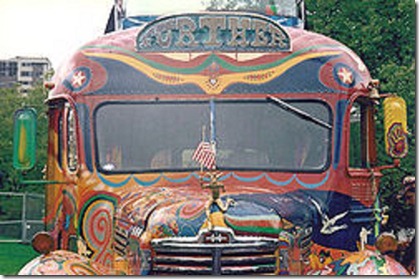 There is another overlooked factor or aspect of this rise in drug use in the Nineties by Millennials: These youngsters were the sons and daughters of the Sixties generation who, in their own youth, as we all know too well, engaged in drug experimentation. In fact, this younger generation of drug users has sometimes been called the baby-boomer “echo” generation.
There is another overlooked factor or aspect of this rise in drug use in the Nineties by Millennials: These youngsters were the sons and daughters of the Sixties generation who, in their own youth, as we all know too well, engaged in drug experimentation. In fact, this younger generation of drug users has sometimes been called the baby-boomer “echo” generation.
Gen Xers Are Fifty-ish

 Millennials are quite a bit different from the previous “echo” generation — Gen X. The generation that came to age during the Eighties—Yuppies and Xers—had parents who were
Millennials are quite a bit different from the previous “echo” generation — Gen X. The generation that came to age during the Eighties—Yuppies and Xers—had parents who were 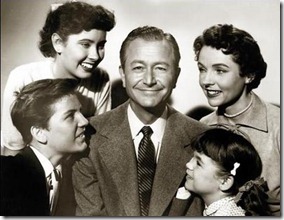 born during the Great Depression and
born during the Great Depression and  World War Two, who had their young adult formative years during the Eisenhower — Joe McCarthy –Presley Fifties. So Gen X was influenced by their parents to conservatism, career-mindedness, and, for drug-of-choice, alcohol.
World War Two, who had their young adult formative years during the Eisenhower — Joe McCarthy –Presley Fifties. So Gen X was influenced by their parents to conservatism, career-mindedness, and, for drug-of-choice, alcohol.
But this “echo” generation of Millennials has parents whose young adulthood was forged in the rebellion, drug and sex experimentation, activism, liberal-radicalism, and idealism of the Sixties, not the Fifties. [Footnote 1]
Forget What You’ve Heard About Generation Gap

 Generationally speaking, we know that children do not predominantly rebel to the opposite of their parents’ values. Kenneth Keniston, for one, has made it clear—referring to studies—that children are paramountly influenced by the values and attitudes…conscious and unconscious…of their parents. So this most recent cohort of youth was of course going to be more liberal in their attitude to drug use than Gen X, even if their parents, in their coming into adulthood, overtly decry or are against the use of drugs. Keep in mind also that many of the baby-boomers have retained, not reversed, their acceptance of drug experimentation, and many still believe in and use drugs; many still considering the occasional use of certain types—especially the psychedelics, and to some extent, pot—to be an aid to self-development and/or spiritual awareness.
Generationally speaking, we know that children do not predominantly rebel to the opposite of their parents’ values. Kenneth Keniston, for one, has made it clear—referring to studies—that children are paramountly influenced by the values and attitudes…conscious and unconscious…of their parents. So this most recent cohort of youth was of course going to be more liberal in their attitude to drug use than Gen X, even if their parents, in their coming into adulthood, overtly decry or are against the use of drugs. Keep in mind also that many of the baby-boomers have retained, not reversed, their acceptance of drug experimentation, and many still believe in and use drugs; many still considering the occasional use of certain types—especially the psychedelics, and to some extent, pot—to be an aid to self-development and/or spiritual awareness.
Family Lies Not “Family Ties”

 The myth that youth rebel against their parents’ values was expressed and propagandized by the TV show “Family Ties.”
The myth that youth rebel against their parents’ values was expressed and propagandized by the TV show “Family Ties.” 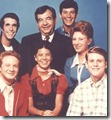 This was an oh-so-convenient portrayal, as it contributed to the pervasive scapegoating of the Sixties generation by the Fifties Generation—the Eisenhower–Joe McCarthy–Presley generation—who came into their Triumphant Phase, that is, took over the reins of society as mature adults in the Eighties.
This was an oh-so-convenient portrayal, as it contributed to the pervasive scapegoating of the Sixties generation by the Fifties Generation—the Eisenhower–Joe McCarthy–Presley generation—who came into their Triumphant Phase, that is, took over the reins of society as mature adults in the Eighties.
Rebellion in Youth Amounts to Being Uncompromising About Parents’ Values Not Defying Them

 This “Family Ties” kind of rebellion, however inaccurate, seems to be credible largely as a result of the observation that youth do rebel against their parents. But it
This “Family Ties” kind of rebellion, however inaccurate, seems to be credible largely as a result of the observation that youth do rebel against their parents. But it  ignores the fact that when they do, and they don’t always, they revolt or rebel, as in the Sixties youth, most often in the direction of being more insistent of actually living the values of their parents, not simply voicing them.
ignores the fact that when they do, and they don’t always, they revolt or rebel, as in the Sixties youth, most often in the direction of being more insistent of actually living the values of their parents, not simply voicing them.  As Keniston found out, for example, as he described in his follow-up to The Uncommitted, in the book, Young Radicals: Notes on Committed Youth, radical youth had liberal (hardly conservative!) parents.
As Keniston found out, for example, as he described in his follow-up to The Uncommitted, in the book, Young Radicals: Notes on Committed Youth, radical youth had liberal (hardly conservative!) parents.
 When Sixties youth were angry at their parents it was out of their perception of their parents as compromising and not living out their own expressed ideals, as laid out to their children in raising them. Therefore, Sixties rage against adults came out of their disgust at their parents for “not walking their talk.” As we may recollect, there was the oft-repeated charge of “hypocrite” directed by some of these youth toward their parental generation.
When Sixties youth were angry at their parents it was out of their perception of their parents as compromising and not living out their own expressed ideals, as laid out to their children in raising them. Therefore, Sixties rage against adults came out of their disgust at their parents for “not walking their talk.” As we may recollect, there was the oft-repeated charge of “hypocrite” directed by some of these youth toward their parental generation.
Millennials and Their Sixties Parents
In this regard notice also that this latest crop of young—born mid-70s through roughly 2000 (Boomers had children over a longer expanse of time than generations previous and since, for reasons that I’ve dealt with in other places) 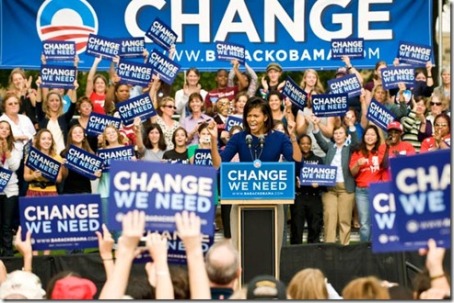 and being now in their twenties and thirties…the sons and daughters of the Sixties Generation—has also seen increases in voting for liberal or Democratic candidates. Their turnout for Clinton in 1992 was the first time since the Seventies that the youth vote went Democratic. Their support of Obama was widely given as the reason for his success.
and being now in their twenties and thirties…the sons and daughters of the Sixties Generation—has also seen increases in voting for liberal or Democratic candidates. Their turnout for Clinton in 1992 was the first time since the Seventies that the youth vote went Democratic. Their support of Obama was widely given as the reason for his success.
Occupy Wall Street … Sixties Gen Liberals, Millennial Revolutionaries?

 In the Nineties we saw — despite the AIDS scare — an end to a fledgling “youth celibacy movement” — which had been a movement of Yuppie/Gen Xers encouraged by their Fifties Generation parents. The Millennials,
In the Nineties we saw — despite the AIDS scare — an end to a fledgling “youth celibacy movement” — which had been a movement of Yuppie/Gen Xers encouraged by their Fifties Generation parents. The Millennials,  echoing again their parents and this time the sexual revolution, were noted for early and/or increased sexual experimentation.
echoing again their parents and this time the sexual revolution, were noted for early and/or increased sexual experimentation. This latest cohort of youth also has seen increases in idealism, activism, and volunteerism. It is no coincidence that we have finally seen a rising up of activism again in the occupy wall street movement, with Millennials taking the lead and supported, taught, and inspired by their Sixties cohort parents. [Footnote 2]
This latest cohort of youth also has seen increases in idealism, activism, and volunteerism. It is no coincidence that we have finally seen a rising up of activism again in the occupy wall street movement, with Millennials taking the lead and supported, taught, and inspired by their Sixties cohort parents. [Footnote 2]
Footnote
1. See my blog/book Culture War, Class War, especially Chapter Two: Matrix Aroused, the Sixties and Chapter Four: Drugs of Choice and Generational Cultures – Concocted Worlds and Chapter Five: The King Won’t Die – An Aborted Changing of the Guard.
2. These aspects and generational phenomena are spelled out in more detail in my work-in-progress, Regression, Mysticism, and “My Generation.” Right at hand, however, you can read an elaboration of some of these ideas in the chapters mentioned in Culture War, Class War—especially Chapters One through Seven and the post, Awakening Millennial Generation Occupy Global Revolution.
Continue with Tune Inward, Turn Back, Drop Down – Psychedelics, Depression, and Those Nasty Birth Feelings: 21st Century and Its Discontents, Part 30
Return to Raging to Reenter, Vampire Apocalypse, Drug Use, and Being Gratefully Dead—Perinatal Printouts Of Sixties, X, and Millennial Generations. 21st Century and Its Discontents, Part 28
Invite you to join me on Twitter:
http://twitter.com/sillymickel
friend me on Facebook: https://www.facebook.com/sillymickel
America Since Its “Pleasantville” Fifties: Cultural Rebirth Aborted, Changing of the Guard Denied, The Elders on Life Support, and the Abomination Fills the Land
Posted by sillymickel in activism, allegory, authenticity, being yourself, Class, Culture, economics, Generations, globalrevolution, History, individualism, life, meaning, nonconform, occupywallstreet, philosophy, Politics, psychology, spirituality, uniqueness, US on July 3, 2012
Culture War, Class War Chapter Seven: Cultural Rebirth, Aborted
It’s a (Not So) Wonderful Life…for the World War Two Generation Compared to Their Boomer Children

War Compelled the Dashing of Dreams for WWII Gen Youth – It’s a Not-So Wonderful Life
Sixties Youth Ideals of Freedom – So at Odds with Their Parents Lives of Heavy Responsibilities
The paramount theme in “Pleasantville”—which is that thinking for oneself and following one’s own unique path and being open to the change that comes with that brings “color,” truth, and aliveness to one’s life—is truly a Sixties Generation idea.  Again, it is not that it has never been thought of before. All great ideas have been thought before, but that does not mean they have been implemented on a sociocultural, macrocosmic level. Many ideas have remained in the realm of the solitary pursuits of philosophers and mystics and been exemplified only in individual lives. But the Sixties was such a time of turmoil because the values of individual freedom, personal passion, feeling and experience, questioning authority, and thinking for oneself were shared by so many Baby-Boomers and were so contrary to the values of the generation in power.
Again, it is not that it has never been thought of before. All great ideas have been thought before, but that does not mean they have been implemented on a sociocultural, macrocosmic level. Many ideas have remained in the realm of the solitary pursuits of philosophers and mystics and been exemplified only in individual lives. But the Sixties was such a time of turmoil because the values of individual freedom, personal passion, feeling and experience, questioning authority, and thinking for oneself were shared by so many Baby-Boomers and were so contrary to the values of the generation in power.
It’s a (Not So) Wonderful Life
An excellent example of how opposed the Sixties values are to those of the WWII Generation is found in that beloved movie of all time, “It’s a Wonderful Life,” starring Jimmy Stewart.  In that film, the main character is prevented by circumstances from following his dreams. One event after another keeps him from leaving his home town. His story might be called “The Truman Show” in reverse for he comes to accept the loss of his dreams. He is rewarded for giving up his yearning for adventure with the warmth of a loving family and friends.
In that film, the main character is prevented by circumstances from following his dreams. One event after another keeps him from leaving his home town. His story might be called “The Truman Show” in reverse for he comes to accept the loss of his dreams. He is rewarded for giving up his yearning for adventure with the warmth of a loving family and friends.

Nonetheless, he has been reduced to someone who simply follows a script or role and when it appears that he might fail in that role he considers killing himself.

Reassures a Generation
The movie is beloved and timeless, no doubt, because it reassures an entire generation and all those who have had to give up their dreams for whatever reason that their sacrifices were for a higher good and that it is a wonderful life after all.
Will never know what might have been.
It provides a rationalization against the painful feelings of knowing that one will never know “what might have been” by pointing out the truth that one’s life affects others and has meaning regardless of whether or not one has been fortunate enough to actualize one’s deepest desires, talents, aspirations, and dreams.
War Compels Dashing of Dreams
As mentioned, “It’s a Wonderful Life” calls out to and epitomizes the experiences and attitudes of the World War Two Generation in particular. They were called upon to  fight a war, after all, which no doubt would derail many a young man’s (and woman’s) dreams. As in “It’s a Wonderful Life,” the circumstances that arise to prevent their following through on their dreams are imposed from the outside–the state of being at war and being called upon by a draft to enlist or else be enlisted. For the women, as well as the men who stayed behind, the war’s influence on their lives and the carrying out of idealistic schemes and dreams are only a little less pronounced. For, as in “It’s a Wonderful Life,” the war created a society heaving with needs and pain, which only the truly heartless (who wouldn’t have any dreams anyway) could not help but feel compelled to respond to.
fight a war, after all, which no doubt would derail many a young man’s (and woman’s) dreams. As in “It’s a Wonderful Life,” the circumstances that arise to prevent their following through on their dreams are imposed from the outside–the state of being at war and being called upon by a draft to enlist or else be enlisted. For the women, as well as the men who stayed behind, the war’s influence on their lives and the carrying out of idealistic schemes and dreams are only a little less pronounced. For, as in “It’s a Wonderful Life,” the war created a society heaving with needs and pain, which only the truly heartless (who wouldn’t have any dreams anyway) could not help but feel compelled to respond to.
Growing up too fast
 In one way or another, the situation in the Forties, with the war effort and afterwards, created a generation who, except for the rare individual or one of unusual circumstances, was called upon to step up into mature responsible tasks long before the idealism of their youth would have preferred that they do so. And their generation is scarred for having missed this opportunity. They are individuals deserving of our sympathy; yet crippled they are nonetheless.
In one way or another, the situation in the Forties, with the war effort and afterwards, created a generation who, except for the rare individual or one of unusual circumstances, was called upon to step up into mature responsible tasks long before the idealism of their youth would have preferred that they do so. And their generation is scarred for having missed this opportunity. They are individuals deserving of our sympathy; yet crippled they are nonetheless.
We Are the Centaurs (My Friends)… The WWII Generation’s Sacrifice Made the Idealism of Their Children Possible

 The WWII Generation’s Sacrifice Made Sixties Visioning Possible
The WWII Generation’s Sacrifice Made Sixties Visioning Possible
Mashing Butterflies and Drowning Kittens
 This is not to say, however, that the generations before the WWII Generation were allowed their dreams and that the WWII Generation is unique in being crippled in its development. For we know that earlier child-rearing modes required the submission of children and youth to parental wishes (again, see “The History of Childhood As The History of Child Abuse” by Lloyd deMause). Therefore, dreaming or envisioning an adventurous life was not the norm. For much of the history of the world and in most cultures, indeed, even the selection of one’s spouse was decided by the parents. So much has our history–in both Eastern and Western cultures–been marked by the assassination of youthful dreaming, idealism, and choice that Shakespeare’s Romeo and Juliet can be said to be a revolutionary work in even depicting that this assassination of dreams is a tragedy!
This is not to say, however, that the generations before the WWII Generation were allowed their dreams and that the WWII Generation is unique in being crippled in its development. For we know that earlier child-rearing modes required the submission of children and youth to parental wishes (again, see “The History of Childhood As The History of Child Abuse” by Lloyd deMause). Therefore, dreaming or envisioning an adventurous life was not the norm. For much of the history of the world and in most cultures, indeed, even the selection of one’s spouse was decided by the parents. So much has our history–in both Eastern and Western cultures–been marked by the assassination of youthful dreaming, idealism, and choice that Shakespeare’s Romeo and Juliet can be said to be a revolutionary work in even depicting that this assassination of dreams is a tragedy!

Roaring Into Life
 Still, the WWII Generation can be said to have been especially affected by this slaying of self, for they did, after all experience the heady freedom of the “Roaring Twenties” and the dreaming that preceded the Great Depression. In the Twenties, victorious in World War I and with it now put behind, America was coming into its youthfulness and was heady with its achievements. Unbelievable accomplishments and inventions in all areas of life were speeding up sociocultural change causing some to believe that a new era was around the corner, just within reach, an era unlike anything the world had ever known. This was the atmosphere in the Twenties when the WWII Generation were in their childhood or adolescence. It couldn’t help making a very strong, because of its being early, imprint on their expectations.
Still, the WWII Generation can be said to have been especially affected by this slaying of self, for they did, after all experience the heady freedom of the “Roaring Twenties” and the dreaming that preceded the Great Depression. In the Twenties, victorious in World War I and with it now put behind, America was coming into its youthfulness and was heady with its achievements. Unbelievable accomplishments and inventions in all areas of life were speeding up sociocultural change causing some to believe that a new era was around the corner, just within reach, an era unlike anything the world had ever known. This was the atmosphere in the Twenties when the WWII Generation were in their childhood or adolescence. It couldn’t help making a very strong, because of its being early, imprint on their expectations.
Suddenly Depressed
However, these dreams would be dashed in the Great Depression, during which time they would be adolescents and young adults, and they would be harnessed into struggling like their parents had to earlier and were now again struggling.

Getting a New Deal…Light at the End of a Tunnel
Still, as time wore on the dreams of a new world would be reignited with the idealistic union movement and the Franklin Roosevelt changes in the social contract that rescripted the relation between the society and the individual, creating a symbiotic one which enhanced them both as champions of each other.  Folks would magnify the power of the person when united with others. They would dream of a fairer world in which the rich did not dominate with their wealth because the poor could balance the scales with their strength in numbers, adding to their individual power by joining in unions and by combining their votes in elections. They could begin to envision the light at the end of the tunnel of the Great Depression in which they might realize the freedom and adventure they’d glimpsed around them as children in the Twenties.
Folks would magnify the power of the person when united with others. They would dream of a fairer world in which the rich did not dominate with their wealth because the poor could balance the scales with their strength in numbers, adding to their individual power by joining in unions and by combining their votes in elections. They could begin to envision the light at the end of the tunnel of the Great Depression in which they might realize the freedom and adventure they’d glimpsed around them as children in the Twenties.
War. Shot Down Again.
So it is understandable that they would not wish to enter World War II when it began. And Pearl Harbor Day, when their fate was inevitably forged, when it became clear that for the second time the light of individual freedom would be extinguished, would become an important marker in their lifetimes–a day almost as much to be memorialized as their birthdays.

We Are the Centaurs (My Friends)
Sitting on the Shoulders of One’s Ancestors

 For this we can pity the World War Two Generation. As in John Updike’s The Centaur, the World War Two Generation is depicted as a generation that was required to give up its dreams and do its “duty,” above all. It was required to carry out a script given to them by their society, not allowing them to follow their natural youthful ideals. And as in Updike’s novel, they are beaten down in a life that is regimented and has no “color,” spark, life, idealism, or dreams. They have become the robot-like residents of “Pleasantville.” But Updike points out in his novel that their sacrifice, despite the personal tragedy of it on the individual scale, is both necessary and noble in that it makes possible the realization of dreams by the generation that they gave birth to.
For this we can pity the World War Two Generation. As in John Updike’s The Centaur, the World War Two Generation is depicted as a generation that was required to give up its dreams and do its “duty,” above all. It was required to carry out a script given to them by their society, not allowing them to follow their natural youthful ideals. And as in Updike’s novel, they are beaten down in a life that is regimented and has no “color,” spark, life, idealism, or dreams. They have become the robot-like residents of “Pleasantville.” But Updike points out in his novel that their sacrifice, despite the personal tragedy of it on the individual scale, is both necessary and noble in that it makes possible the realization of dreams by the generation that they gave birth to.
Prince in Exile and Hundredth Monkey: Good Old Boys Are Always the Last to Learn in America’s “Pleasantville”
The Hundredth Monkey: Good Old Boys Are Always the Last to Learn in America’s “Pleasantville”
The Sixties Generation Arrived
It is significant that the protagonist of change in the movie “Pleasantville” would be a young male, Bud (David). This is in keeping with legends of old where a young prince comes bearing the new knowledge. But in postmodern style, wonderfully so, he is drawn only reluctantly into this role and we see that it is women who are the real instigators, the least threatened by change. At first, David/Bud opposes his sister and argues for the status quo, maintaining that his sister, who is actually the first one to “break the rules” and thereby to bring color to the town, must abide by the script.
The Prince in Exile
The Prince is Schooled in Tradition

 The “young prince” knows the rules well. This fits with legend, where the new ways are brought by a prince who is not ignorant of tradition; in fact the prince is the one who has excelled in training in traditional ways. (See also, Common Themes from Myth and Mythology in Modern Fiction, Prince in Exile.)
The “young prince” knows the rules well. This fits with legend, where the new ways are brought by a prince who is not ignorant of tradition; in fact the prince is the one who has excelled in training in traditional ways. (See also, Common Themes from Myth and Mythology in Modern Fiction, Prince in Exile.)
In the movie, David is in fact a Pleasantville trivia whiz. He knows exactly the way things are supposed to unravel, the way events are supposed to go.
The Prince Is Reluctant to Break with Tradition
So when his sister first introduces color by introducing sex, he admonishes her. And when he also is tempted to a change in the “script,” he refuses at first. This is when Bud is offered homemade cookies by the young woman who would be his romantic partner. He refuses because he knows that, according to script, it is another young man who is supposed to get the cookies and end up with that particular girl. Despite his attraction for the young woman, his strong sense of maintaining the status quo, not rocking the boat, causes him to try to refuse the cookies. It takes a great deal of forcefulness on the young woman’s part to get him, reluctantly, to accept the cookies that he actually does want. So, again, it is a young, significantly “colorized,” woman who tempts him into a change in the script.

The Prince Brings Change, Without Realizing It, Just Being Himself
It is not that the young man does not have the makeup for accepting change. In fact, even before his sister blatantly brings about change, and therefore color, by rebelliously introducing sex,  he has already sown the seeds of change, although unconsciously, when he suggests to his boss, Mr. Johnson, that he think for himself, instead of following a rigid script. This he does unconsciously and out of selfish motives in that he by nature is different from the character he is supposed to portray and so he does not play his role exactly as it is “supposed” to be played. Specifically, because he is not really the robot character he has replaced, he ends up being late for his job–which heretofore was a totally unheard of event.
he has already sown the seeds of change, although unconsciously, when he suggests to his boss, Mr. Johnson, that he think for himself, instead of following a rigid script. This he does unconsciously and out of selfish motives in that he by nature is different from the character he is supposed to portray and so he does not play his role exactly as it is “supposed” to be played. Specifically, because he is not really the robot character he has replaced, he ends up being late for his job–which heretofore was a totally unheard of event.

The Hundredth Monkey
 It is also significant that it is the young that are the first ones in the town to become “colored.” As in the hundredth monkey phenomenon, it is first the young, especially females, who are open to new experiences, ways, and ideas. Then it is adult females–in this movie exemplified by Betty Parker, the mother of Bud and Mary Sue—who are next to consider alternatives and new ways. Adult males are the last to turn to color, but among them it is the sensitive of heart, exemplified by the artist/soda-jerk character, Mr. Johnson, who “turn on” initially.
It is also significant that it is the young that are the first ones in the town to become “colored.” As in the hundredth monkey phenomenon, it is first the young, especially females, who are open to new experiences, ways, and ideas. Then it is adult females–in this movie exemplified by Betty Parker, the mother of Bud and Mary Sue—who are next to consider alternatives and new ways. Adult males are the last to turn to color, but among them it is the sensitive of heart, exemplified by the artist/soda-jerk character, Mr. Johnson, who “turn on” initially.

Good Old Boys, the Last to Learn
 Last to become colorized—i.e., to be open to change and thinking for oneself—are the “authorities” of the town, in this instance, those on the Chamber of Commerce. And among these the most recalcitrant of all is their leader, Big Bob, played by J.T. Walsh, in his final film role before his passing away. Though Big Bob displays a pleasing and affable persona on the surface (for this read “good old boy”), there is an insidious Hitleresque quality to him which provides the suspense at the climax of the movie where he presides over the fate of the artist, Mr. Johnson, and the “young prince,” David/Bud.
Last to become colorized—i.e., to be open to change and thinking for oneself—are the “authorities” of the town, in this instance, those on the Chamber of Commerce. And among these the most recalcitrant of all is their leader, Big Bob, played by J.T. Walsh, in his final film role before his passing away. Though Big Bob displays a pleasing and affable persona on the surface (for this read “good old boy”), there is an insidious Hitleresque quality to him which provides the suspense at the climax of the movie where he presides over the fate of the artist, Mr. Johnson, and the “young prince,” David/Bud.
Abortion of Cultural Rebirth Always Begins With a Conservative Backlash by The “Religious Wrong”
A Conservative Backlash by The “Religious Wrong”‘ Attempts to Abort the Generational Changing of the Guard in America’s “Pleasantville”
“You Can’t Legislate Morals”
With the support of the Chamber of Commerce, we know Big Bob has the power to do whatever he will with the two on trial.  And since the events preceding the trial has included mob actions which have included a book burning, the attack and destruction of the malt shop, and the cornering, physical intimidation, and physical attack of “coloreds” by gangs—images common to modern times which has seen these sorts of events in actuality occurring in the civil rights and anti–Vietnam-War movements, and currently in democracy and freedom uprisings in the Middle East, America, and throughout the world in the Occupy movement—the fate of the prisoners is imagined to include the ultimate penalty of death.
And since the events preceding the trial has included mob actions which have included a book burning, the attack and destruction of the malt shop, and the cornering, physical intimidation, and physical attack of “coloreds” by gangs—images common to modern times which has seen these sorts of events in actuality occurring in the civil rights and anti–Vietnam-War movements, and currently in democracy and freedom uprisings in the Middle East, America, and throughout the world in the Occupy movement—the fate of the prisoners is imagined to include the ultimate penalty of death.

“Conservative Backlash”
Indeed, this ominous possibility is promoted by the actions of the soda-jerk Artist who, at the trial, pitifully pleads for a compromise. This is pitiful since we know that his art is his life, that it is the one thing that has truly enriched his life and made it worth living.
Sitting at the Lunch Counter
We know of its importance in that, even after the attack on his malt shop, he defied the “rules” laid down by the town’s authorities which outlawed art and color by working with the Prince through the night to produce a colorful mural on the outside wall of his shop depicting the current events of the town and the feelings swirling about inside its residents.
This defiant act by the artist is reminiscent of antiwar demonstrators, who got fired upon at Kent State, of civil rights demonstrators, who police attacked with dogs, and of Tiananmen Square demonstrators, who were rolled over by tanks, shot, and killed, and most recently of all the courageous men and women of the Middle East risking their lives for freedom and of the Occupy heroes throughout the world putting their bodies in front of the most dire, widespread fascism ever to exist.

Since this character, recently so courageously defiant, is intimidated into pleading for a compromise in which he would be willing to use only certain colors or where he would submit for approval by the Chamber’s leader his ideas for painting beforehand—a compromise which his body language and facial expressions show, wonderfully acted by Jeff Daniels, is one near up against the very death of his soul—we know he fears for the loss of his physical life.
“Just Sign This Confession.”
The compromise is too much like the compromises we have witnessed being offered and come to expect being offered to some of the Tiananmen Square and other  political prisoners of recent times wherein they are required to do something along the lines of admitting their guilt, apologizing to the State for the trouble they have caused it, and promising to never again to engage in such activities…and only in the most benevolent of circumstance being allowed to continue anything like their former activities but if so only under the supervision and with the approval of authorities with veto power over their proposed actions.
political prisoners of recent times wherein they are required to do something along the lines of admitting their guilt, apologizing to the State for the trouble they have caused it, and promising to never again to engage in such activities…and only in the most benevolent of circumstance being allowed to continue anything like their former activities but if so only under the supervision and with the approval of authorities with veto power over their proposed actions.
The Religious Wrong
So Big Bob and the Chamber of Commerce represent in the current social framework the Religious Right (sometimes referred to as the “religious wrong” and sometimes  about which it is noted that the Religious Right is neither).
about which it is noted that the Religious Right is neither).  Big Bob’s Chamber of Commerce represents Republicans, Tea Partiers, and those in general in our society who have succumbed to the rewards and threats of the World War Two Generation to live a regimented robot-like unfeeling passionless life; to become one of J. D. Salinger’s “phonies,” to abide by their misconstrued idea of “family values,” and above all to “behave” and not do anything to rock the boat of the status quo which might threaten the privileges of those currently enjoying power and wealth handed down, mostly, by heredity.
Big Bob’s Chamber of Commerce represents Republicans, Tea Partiers, and those in general in our society who have succumbed to the rewards and threats of the World War Two Generation to live a regimented robot-like unfeeling passionless life; to become one of J. D. Salinger’s “phonies,” to abide by their misconstrued idea of “family values,” and above all to “behave” and not do anything to rock the boat of the status quo which might threaten the privileges of those currently enjoying power and wealth handed down, mostly, by heredity.
Civil Rights Movement
It is highly significant that in the courtroom scene the “colored” would be sitting in the balcony, above the black-and-white men. One might say this represents their status as being an elevated state, something to aspire to, and yet not on the level where matters are decided. But even more so, this scene is important in that it is a near exact replication of the courtroom scene in “To Kill a Mockingbird,” wherein the balcony of the courtroom is filled with Blacks, another kind of “colored.” 
This makes it clear that when the movie is dealing with the conflict between the adult males of the town and the “colored” it is referring to the Civil Rights movement.
Revenge of the Octogenarians and the American Tienanmen Square – Culture War

 Abortion of Cultural Rebirth, Aborted Changing of the Guard – The King Refuses to Die
Abortion of Cultural Rebirth, Aborted Changing of the Guard – The King Refuses to Die
The American Tienanmen Square—Culture War

 The events in China’s Tiananmen Square more than twenty years ago so affected and still affects some of us here in America because we know at some level that we have experienced it before. What happened in China two decades ago is so much like what happened here four decades ago, somewhat less graphically, around the Vietnam War demonstrations. Let me explain.
The events in China’s Tiananmen Square more than twenty years ago so affected and still affects some of us here in America because we know at some level that we have experienced it before. What happened in China two decades ago is so much like what happened here four decades ago, somewhat less graphically, around the Vietnam War demonstrations. Let me explain.
Standing Before Tanks, Flowers in Barrels

 For one thing, the images of the demonstrations in China, e.g., the lone man standing in front of the tank, were so like those of Sixties demonstrations, e.g., Sixties youth blocking the paths of soldiers and placing flowers in their gun barrels.
For one thing, the images of the demonstrations in China, e.g., the lone man standing in front of the tank, were so like those of Sixties demonstrations, e.g., Sixties youth blocking the paths of soldiers and placing flowers in their gun barrels.
Revenge of the Octogenarians
 And the result of both was the same: In both cases the opposition,
And the result of both was the same: In both cases the opposition, the youth movement, crushed— violently in China, subtly and behind the scenes in the US—at the command of an octogenarian generation, clinging desperately to power as much as to their waning physical frames.
the youth movement, crushed— violently in China, subtly and behind the scenes in the US—at the command of an octogenarian generation, clinging desperately to power as much as to their waning physical frames.
The King Won’t Die
Assassinations—Character and Otherwise

 We see the same pattern of violent versus subtle played out in the US as well where we no longer assassinate our president as we did with JFK, we
We see the same pattern of violent versus subtle played out in the US as well where we no longer assassinate our president as we did with JFK, we 
 character assassinate instead, as we did with Clinton and which the Tea Party and the wealthy right are trying to manufacture against Obama. One might say the WWII generation in America has gotten more finesse, with practice, in its beating back sociocultural change not to their liking and that the Chinese geriatric set didn’t have as much practice with it.
character assassinate instead, as we did with Clinton and which the Tea Party and the wealthy right are trying to manufacture against Obama. One might say the WWII generation in America has gotten more finesse, with practice, in its beating back sociocultural change not to their liking and that the Chinese geriatric set didn’t have as much practice with it.

The King Refuses to Die

 Nevertheless the results in both countries are the same. They involve the ultimate victory of sociocultural change in both instances being delayed until the dying off of an elderly generation in power—a generation refusing to die or hand over the controls at the proper time like the generations before them. Simply, the king won’t die!
Nevertheless the results in both countries are the same. They involve the ultimate victory of sociocultural change in both instances being delayed until the dying off of an elderly generation in power—a generation refusing to die or hand over the controls at the proper time like the generations before them. Simply, the king won’t die!
Time is Running Out.
 Time is running out for the octogenarians and ninety-somethings on either side of the Pacific.
Time is running out for the octogenarians and ninety-somethings on either side of the Pacific.
The expected, supposedly inevitable defeat of the WWII Generation—their dying off—is portrayed in “Pleasantville” by Big Bob, head of the Chamber of Commerce, ending up fleeing the scene in the courtroom. (Strange coincidence, the actor actually died after making this film.) There are many ways his defeat could have been played out in the movie. I think it is highly significant that he runs away, never to be seen again, just as in the current context the dying off of the WWII Generation is a literal leaving of the scene, not an outright defeat, or some other means of change of power.
The King on Life Support and The Consequences of an Abomination: America Since Its “Pleasantville”
America’s Aborted Changing of the Guard and The King Propped Up Mechanically: Since “Pleasantville”
With these factors in mind, what have we experienced in the last two decades, as the Sixties Generation finally got its turn? As expected, it was at first quite different from what the WWII Generation had been serving up during its forty-plus years’ reign.
The Nineties
 We saw the beginnings of cultural enlightening and progress during Clinton’s term in the Nineties. In retrospect it was a colorful time; it was an enthusiastic time.
We saw the beginnings of cultural enlightening and progress during Clinton’s term in the Nineties. In retrospect it was a colorful time; it was an enthusiastic time.
The Nineties were bookmarked between the economic wreckage left by Reagan-Bush and their voodoo economics throwing money at the rich leading to a huge recession and a financial scandal—S&L Scandal—that involved, for that time, an extraordinary price tag for the country. And the other end was the assignment by the Supreme Court of the election to George W. Bush over Al Gore—a battle of a Sixties Generation member against a WWII Generation paid-for concoction, the W.
A Culture War Raged
In between those two markers a war was waged, a culture war, whose battles—economics, abortion, sexuality, cultural expression, war/peace, child abuse, spouse abuse; and whose personalities—Clinton, Gingrich, Lewinsky, OJ Simpson, Pat Robertson, Jerry Brown, Ross Perot—were detailed and rehashed endlessly via the daily news mills.
The W
At the end, the installment of the W represented a resurgence, in typical Culture War style, of the dominance of WWII-type oppression and manipulation of the masses.

The King Propped Up Mechanically

 It was the abortion of the changing of the cultural guard that was naturally occurring. It was the King propped up mechanically, robot-like carrying out the dictums of those who once lived but were no more. It was an abomination of the natural order.
It was the abortion of the changing of the cultural guard that was naturally occurring. It was the King propped up mechanically, robot-like carrying out the dictums of those who once lived but were no more. It was an abomination of the natural order.
The Consequences of an Abomination
And its consequences during the first decade of the Twenty-First Century were exactly what would be expected from an abomination like that.
Monsters Don’t Really Die in Horror Flicks

 The WWII Generation—like the endings of horror flicks, which leave always a hint or part of the monster living on somehow, thus setting up a possible sequel—left behind part of itself in the form of the Eighties Generation clones and the Fifties Generation. And these folks ain’t going away any time soon! They are here in the Tea Party; they are here in the wealthy right; they are here in the ownership and guiding principles of the mainstream media, now become principal propagandist of the American patriarchy (the “filthy rich”).
The WWII Generation—like the endings of horror flicks, which leave always a hint or part of the monster living on somehow, thus setting up a possible sequel—left behind part of itself in the form of the Eighties Generation clones and the Fifties Generation. And these folks ain’t going away any time soon! They are here in the Tea Party; they are here in the wealthy right; they are here in the ownership and guiding principles of the mainstream media, now become principal propagandist of the American patriarchy (the “filthy rich”).
Millennium’s Second Decade—Same Old Culture War
Currently, in the second decade of the new millennium, the Culture War has erupted in Nineties fashions, pitting Obama now against the cultural regressives.
The Wisconsin-style anti-cutback, pro-union uprisings and the worldwide Occupy phenomenon have brought the lingering issues out into the open in a style not much different from the rebellious Sixties.
It is the same old culture war/class war, now brought to furious and fiery life, as a struggle suppressed by a decade of domination by untruths would be, as it emerges even angrier for having to wait.
The King’s Gotta Die Sometime! Dangers and Prospects, Zombie Apocalypse vs the WWW
The King’s Gotta Die Sometime! Prospects and Dangers in the Post-WWII-Generation World
However much we cannot know the future, and despite the seeds of WWII Generation values left incubating in the minds of Eighties and Fifties Generation members and emerging under tea-bag hats, we can hope that the vision of “Pleasantville” will eventually hold out.
Hopeful News
People Fight Harder to Keep What They Have…For Good Things They’ve Experienced.
Just as in the movie when after everyone has experienced color there is no semblance of a wish to return to a black-and-white world, so also we might hope that as our society turns more and more away from war-making, selfishness, race- and sexism, ecological destruction, and all the other WWII Generation evils left behind, and turns more and more toward economic prosperity, peace-keeping, loving our children and having honest relationships, and the reclaiming of our natural environment and ecological balance, there will be fewer and fewer who wish to turn back the times to the unreal black-and-white world of the “Blue Meanies.”
Reason for Hope
 We see evidence of this in both the election of Obama and the high popular ratings for him since in office. Earlier we observed it in the great support for Clinton even during the assassination attempt on his character.
We see evidence of this in both the election of Obama and the high popular ratings for him since in office. Earlier we observed it in the great support for Clinton even during the assassination attempt on his character.
People of Hope
The approval ratings of both of these Sixties-side-of-the-Culture-War Presidents certainly is not comprised only of Baby-Boomers. Sixties Generation values are infectious because they offer so much hope. African-Americans of all ages supported Clinton overwhelmingly; of course they support Obama. We can certainly see that our black population would not wish a return to the black-and-white world that included discrimination and violence against them.
Women of all ages, for the same reasons, would not be expected to wish a return to a less individualistic status, to a subservient state. And the young will always be idealistic if they are shown any ideals, which is what we can expect the Sixties Generation to be doing for them, as they continue taking their seats in the Wise Elders section of the parliament of sociocultural creation.
Last Ditch Battle
 We have seen examples of this change all around us. In fact the current frenzied attack from the Right can be seen as a desperate last ditch battle in a war they will inevitably lose. That is the good news.
We have seen examples of this change all around us. In fact the current frenzied attack from the Right can be seen as a desperate last ditch battle in a war they will inevitably lose. That is the good news.
.
Bad News
How Bad the Aftermath, The Devastation Left Behind
The bad news is that, similar to the way the Republicans cleaned out the Treasury and left huge deficits and several wars on the desk of the incoming Democratic administration in 2009, thus hobbling it before it began, we have no idea how great will be the destruction left behind from these culture waging, albeit waning, authoritarians in the current context.
Heavy with Gold
 With their gains in stealing from all classes of society below them in their last dying clingings of a dying old guard, a king who simply won’t die, they are heavy with gold. They have the means to buy much more influence than their numbers.
With their gains in stealing from all classes of society below them in their last dying clingings of a dying old guard, a king who simply won’t die, they are heavy with gold. They have the means to buy much more influence than their numbers.
Their Power Is Magnified
The multitudes are growing in size against them, but with their wealth and with the technology and science available now multiplying further their abilities, their capacity to control the minds of much of the population is magnified beyond anything previously and beyond anyone’s abilities to calculate or foresee.
Zombie Apocalypse?
So despite the trends toward a natural evolution like we have seen in the past, we might witness a strange aberration-—a zombie apocalypse created out of the  thinking of a time long gone comprised of sick ghostly fantasies of a black-and-white golden age that never was. Such things have happened before; cultures have indeed stagnated for hundreds and even thousands of years. The Middle Age is one such example of stagnation beneath an oppressive deathly authority that would never renew.
thinking of a time long gone comprised of sick ghostly fantasies of a black-and-white golden age that never was. Such things have happened before; cultures have indeed stagnated for hundreds and even thousands of years. The Middle Age is one such example of stagnation beneath an oppressive deathly authority that would never renew.
Still, despite the scientific and technological monkey wrenches that might permanently upset a natural order of progression, it is more likely that things will work out as they have most of the time than that we will see an aberrant development. There is, after all, at least as much technology and science catalyzing progressive change as is not.

The Positive … Good News?
And the evidence for a natural development is there for all with eyes to see. With so much change needed, it is easy to forget how much has changed for the positive since the Sixties. Still, with no inclination to see it, no amount of listing of the evidence will bring them into view.
What might be helpful, though, is to note some other analogies from the movie “Pleasantville” which can provide insight as to what may be on the horizon or at least be considered food for speculation:
It Takes a Village; We Are a Global Village.
 Whereas the black-and-white Pleasantville ends at the town’s borders and turns round again to the center of town, the post-color Pleasantville roads continue going, connecting Pleasantville with the rest of the world. Thus, with color and by inference imagination and thinking for oneself, Pleasantville has become part of a larger world, one in which Pleasantville citizens can participate and in which they can travel and take up residence. This represents the global village, the coming together of the interests of all nations–the emerging “global economy.”
Whereas the black-and-white Pleasantville ends at the town’s borders and turns round again to the center of town, the post-color Pleasantville roads continue going, connecting Pleasantville with the rest of the world. Thus, with color and by inference imagination and thinking for oneself, Pleasantville has become part of a larger world, one in which Pleasantville citizens can participate and in which they can travel and take up residence. This represents the global village, the coming together of the interests of all nations–the emerging “global economy.”
We Have What Really Brings Down Tyrants – The Power of Individuals Is also Magnified by Technology.
But perhaps most of all this connection to a larger world represents those factors of modern telecommunications and travel that have made the world open to the eyes of all, which is the real reason the Iron Curtain fell, the real reason apartheid was overthrown, the real reason democratic revolution is coming to the Middle East and may yet be causative in bringing democracy to places like China and Iran, despite their oppressive propped-up elder-archies, their kings who will not die, their frozen non-renewing social processes.
The W’s Legacy Finally Overthrown by the WWW?
 And the most potent analogy of all: the World Wide Web, bringing together all peoples of the world into a collective consciousness sharing ideas and together shaping a world, not just a neighborhood, with true democratization of information, uncontrollable by any wealthy elite of any country or any generation.
And the most potent analogy of all: the World Wide Web, bringing together all peoples of the world into a collective consciousness sharing ideas and together shaping a world, not just a neighborhood, with true democratization of information, uncontrollable by any wealthy elite of any country or any generation.
Stay Tuned.
Finally, the image at the end of “Pleasantville” is the most apt for what we may next expect: The only thing we know for sure is that it will be different.

Continue with Culture War, Class War, Chapter Eight:
Creating an American Mind
Coming Up: The Rise and Fall of “Obvious Truths”–How The Big Lie Continued; The Fifty-Year Invisible Family and Community That Surrounded All Americans and Affected Every Aspect of Their Lives Including, and Intentionally, the Basic Components of One’s Personality, and the Erosion of Reason, Soul, and Independent Thought or Action.
Return to Culture War, Class War, Chapter Six: “Pleasantville” as Culture War Allegory
Invite you to join me on Twitter:
http://twitter.com/sillymickel
friend me on Facebook: https://www.facebook.com/sillymickel
The King Who Won’t Die and the Abortion of Cultural Rebirth … What the Current Cultural-Political Regression Has to Do With the Struggles of Generations
Posted by sillymickel in activism, allegory, authenticity, being yourself, Class, Culture, economics, Generations, globalrevolution, History, individualism, life, meaning, nonconform, occupywallstreet, philosophy, Politics, psychology, spirituality, US on June 29, 2012
Culture War, Class War, Chapter Five: The King Won’t Die – An Aborted Changing of the Guard
Generation Gap (60s-70s), Culture War (80s-90s), Class War (00s-10s) … The Song Remains the Same
Since the Nineties: America Getting Free and America in Chains
America Getting Free, Breaking Out
What do these events have in common? The popularity of Democrats since the Nineties, with Obama’s favorability ratings high despite US entanglement in several wars; the astounding progress in race relations exemplified by ever increasing numbers of African-Americans elected and appointed to the highest posts in US government since the Nineties, highlighted by the election of the first ever black President in the most lopsided victory in decades;
…the wild success of the Occupy Wall Street and Wisconsin union movements; massive demonstrations around the U.S., attended by hundreds of thousands at times, in favor of liberal Democratic causes and opposing Republicans and showing people carrying signs displaying the peace symbol; outpourings of peaceful pro-freedom and democracy protesters throughout the Middle East and North Africa;  the reborn popularity of the “peace sign”–two fingers extended in a V-like shape, for those who don’t know—including saying “peace” while extending it as a greeting (most often these days, when leaving);
the reborn popularity of the “peace sign”–two fingers extended in a V-like shape, for those who don’t know—including saying “peace” while extending it as a greeting (most often these days, when leaving);
…renewed interest in the book, Catcher in the Rye; the nostalgia for Sixties and Seventies cultural accouterments as exemplified by the TV show, That 70s Show ; the resurgence of fashion items like bell-bottoms and, on women, clunky high-heel shoes; the movies “Pleasantville” and “The Truman Show”; the popularity in the Nineties of shows like Ally McBeal and The X Files;
…one-time Sixties activist Bill Clinton’s sixty-some percent approval rating throughout almost the entirety of the White House Sex Scandal  alongside the pundits’ complete and total befuddlement as to the causes for it; the strong presidential run by a woman, also with roots solidly in Sixties activism, Hillary Clinton, in the 2008 Presidential race…significantly only beat out, and barely, by an African-American;
alongside the pundits’ complete and total befuddlement as to the causes for it; the strong presidential run by a woman, also with roots solidly in Sixties activism, Hillary Clinton, in the 2008 Presidential race…significantly only beat out, and barely, by an African-American;
…the passage of medical use of marijuana laws in a number of states and poised for passage legalization of marijuana initiatives (I may be wrong, but I believe that the voters ruled that marijuana’s medical use would be allowed, or would continue, in every instance where this issue was on the ballot!); the return to ballad-style, Dylan-esque music embracing and expressing social, philosophical, and extremely intimate personal views and experiences….
We’ve also seen, in California, the passage of Proposition 10—the ballot measure that imposes a fifty-cents tax on cigarettes to fund programs for young children…which ballot measure, significantly enough, was begun by Sixties-Generation representative Rob Reiner—formerly Meathead from All in the Family! The passage of single payer health insurance in Vermont… I could go on.
America in Chains, Breaking Down
On the other side of this we have seen, in the last two decades, several “Republican revolutions” taking the opposite side on women’s issues, union and worker’s rights, environmental policy, health care and education, budget and economic issues benefiting the poor and middle class, and all other “liberal” causes;
 …the rise of a media-supported Tea Party movement, heavily funded by wealthy and corporate interests, espousing wildly reactionary and regressive measures like eliminating Social Security and Medicare, gutting environmental policies to give corporations a free hand in despoiling the environment, anti-union measures, deep budget cuts in social programs, and the showing in this movement of demonstrators hoisting signs with racist images and slogans and gleefully applauding the acting out of a slave auction depicting an African-American president, Obama, and his supporters in Congress and his administration as bloodied slaves in chains;
…the rise of a media-supported Tea Party movement, heavily funded by wealthy and corporate interests, espousing wildly reactionary and regressive measures like eliminating Social Security and Medicare, gutting environmental policies to give corporations a free hand in despoiling the environment, anti-union measures, deep budget cuts in social programs, and the showing in this movement of demonstrators hoisting signs with racist images and slogans and gleefully applauding the acting out of a slave auction depicting an African-American president, Obama, and his supporters in Congress and his administration as bloodied slaves in chains;
…the popularity of a news network promoting, in blatant and mostly dishonest form, reactionary issues and figures; the resurgence in the careers of Pat Buchanan, right wing propagandist out of the Nixon administration turned talk show pundit, and Newt Gingrich, reactionary culture warrior during the early Nineties; extreme pro-gun positions and actions, including openly carrying weapons to political rallies and events and proposing the allowance of children to bring guns to schools; thuggish attacks on left-leaning activists and demonstrators; the murder of physicians on the pro-choice side of the abortion/ women’s rights issue; and attacks and threats against progressive politicians and legislators, including the nearly successful assassination attempt on Democratic Congresswoman, Gabriel Giffords…. I could go on.
Most folks would see nothing connecting these issues on either side. What I believe we are seeing is a resurgence of the underground “culture war” that has been going on in the US since the 1960s between the Sixties Generation—those whose adolescent and young adulthood, formative years were influenced by the events of the Sixties—and the World War Two Generation—those whose equivalent times of life were forged in the Forties, during and around the time of World War Two.
Generation Gap and Counterculture
The huge ravine separating the views of these two generations was most apparent when those of the Sixties Generation were in their youth, engaged in the process of discovering and exploring their values and therefore expressing them blatantly and with all the indiscretion, lack of subtlety, confrontation, and rebelliousness that characterizes the inexperienced. Thus, terms like generation gap and counterculture were bandied about, analyzed, and fervently discussed. The differences were “on the table,” in full view; and because the views and values of the youth were so “counter” or opposite to those of the WWII Generation, much debate and analysis was spawned in the media to try to explain–for the most part to the WWII Generation–how this could be so.
But these terms of generation gap and counterculture, which highlighted the great disparity of views, would fade mostly into disuse. This was because, later, the Sixties Generation would learn to keep their private views and values more hidden, for practical reasons having to do with making a living, advancing in their careers, being able to raise their children, and so on; but this did not mean their values had changed. They were biding their time, waiting—sometimes hopeless that it would ever arrive–for a reversing of the pendulum and a return in society to the ideals and visions of a better world that had so inspired them in their earlier years.
For the most part, these Sixties adherents did not know about the psychohistorical tendencies I will be describing here—as for example in the evolution of child-caring and the triumphant phase of generations. For most it was just an awareness that something so strong and so right could not simply have completely vanished from the Earth, that with time comes change, and therefore there had to be a time, again, when the mood of the country would swing in the direction they felt to be healthiest and more ideal. For some of these people their hopes were based on the simple rules of gambling: Eventually, at some time or other, with the passage of time, the dice just had to roll their number, if just out of pure chance or randomness.
Others had a slightly more reasoned view buttressing their hope for a return to idealism. These folks were those of the Sixties Generation who had applied themselves to implementing the values they learned in the Sixties in the jobs and careers they held, in whatever small or not-so-small way that they were allowed by their older generation superiors, bosses, managers, or supervisors. Never knowing that they had allies among their generation that were doing the same kind of thing in their separate fields, they followed through, the best they could, on simple conviction, born of experience, of the rightness of the more idealistic ways.
Lastly, there were those of the Sixties Generation who identified themselves completely with their youthful idealism. In putting themselves “out front” this way in their values and beliefs they found others who were doing the same. They would together become the “New Age” movement, actively engaged in bringing about the better world their generation had envisioned in the Sixties and early Seventies. They would wonder, as decades passed, why it took so long for the rest of society to catch on to what they felt was an inviting and appealing evolution—one both necessary and therefore inevitable as well.
But these last, the New Agers, would be marginalized and scapegoated by the mainstream of society—a mainstream whose outlines, of course, were determined and inscribed by the mainstream media, which was, in turn, controlled by the wealthy elite of the World War Two Generation (more about this to come). Examples included Jerry Brown labeled “Captain Moonbeam,” the family dynamics in the TV show Family Ties, the burnt-out hippie depiction of cabdriver, Jim, in the Taxi television series, and thousands of other instances where those holding New Age views were labeled “flakes.”
Attack of the Body-Snatchers: The WWII Generation created an 80s generation of “Mini-me’s”
 An Aborted Changing of the Guard – Attack of the Body-Snatchers
An Aborted Changing of the Guard – Attack of the Body-Snatchers
Another reason these terms depicting cultural division, viz., generation gap and counterculture, went into disuse was due to the mobilization of the World War Two Generation—after their initial phase of somnolent confusion over the events that were emerging in the Sixties which left them paralyzed and watching, growing in irritation and anger—into a comprehensive counterattack against the Sixties Generation, using all the Nixonian-like tactics in their arsenal…understandably, since Nixon was of that generation and his tactics were typical of the defensive style of his contemporaries.
Lassoing the Universities
In the early Seventies, the World War Two Generation used their power and wealth, being themselves in the Triumphant Phase of their lives, to put pressure on colleges and universities, nationwide, to discontinue the programs, courses, and the professors that they felt were responsible for the youth’s rebellion. Their targets for destruction included such noteworthy “dangers” as liberal arts programs in general, and especially “highly revolutionary” philosophy, religious studies, anthropology, and humanistic psychology courses. A transformation of colleges and universities into “career mills”—whose primary function was to prepare the young for practical and skill-oriented jobs and professions—was called for…or else! Or else these World War Two alumni would discontinue their contributions to these educational institutions. The “bottom line” being threatened in this way, no university administration, to my knowledge, withstood their demands for very long, if at all.
Cloning Themselves … WWII Generation Creating an 80s Generation of “Mini-me’s”
The youth produced by these institutions would hereafter be dissuaded from thinking for themselves and from “questioning authority”—as the previous generation had been encouraged to do—so part of the lapse in the terms of division between the generations—counterculture and generation gap—had to do with the fact that the wave of youth that followed the Sixties Generation would be molded, in their college years, into distant replicas of World War Two Generation members.  They would be termed the “Me Generation,” since selfishness, greed, money-as-god, and upward mobility were characteristics of the WWII Generation that they were able to instill in their youthful clones.
They would be termed the “Me Generation,” since selfishness, greed, money-as-god, and upward mobility were characteristics of the WWII Generation that they were able to instill in their youthful clones.
Thus, we saw the rise of Young Republicans on campus in the late Seventies, the return of ROTC to campuses, and the seeding of fertile young minds with the values that would later be verbalized—in the movie “Wall Street”—in the mantram “Greed is good!” At the height of this phase, periodicals were declaring how similar the “youth of today”—meaning those of the late Seventies and Eighties—were to their parents, how close they were to their parents in the beliefs and values they held, and how the generation gap had inexplicably closed. Such was the success of the WWII Generation in cloning themselves in producing Eighties youth.
In sum, beginning in the early Seventies institutions of higher learning turned away from their idealistic goals of “bringing out” from the students their inner truths and wisdom (the original meaning of the term educate), which is the avowed role of liberal arts programs, and instead turned hard, to the right, onto a path of churning out engineers, MBAs, hard scientists (even in the field of psychology, where humanistic psychology was shunned), medical professionals, lawyers, and the like. My liberal arts, semi–ivy-league college—founded, by half, by Benjamin Franklin—turned from the idealistic studies that typified Franklin and those of his time and swung from being a bastion of energetic inquiry into all controversial realms—political and spiritual and societal—a virtual “Plato’s Academy” of inquiry, into being a career mill centered around a “pre-med” program.
Harnessing the Media
Similarly, these frightened and wealthy WWII “conspirators” (however unconscious their alliance) would use their leverage to ensure that books and the media—TV, radio, magazines, and newspapers—would expound their views predominantly, would present events through the particular psychological lenses and filters with which they were familiar, and would eschew viewpoints, and even coverage of events, that would in any way strengthen the stance of the, by this time, scapegoated Sixties Generation. The media declared, with much fanfare, in the early Seventies that a “conservative backlash” was occurring; and they published books documenting this event. Meanwhile they ignored the polls and the events—specifically the ongoing and growing antiwar and other counterculture “demonstrations”—that would show the lie to this idea, and they rejected and refused publication of the kind of books and articles, still being effusively churned out—that would support the counterculture movement. Controlling the media in this way and saying it long and loud enough, the “big lie” of the “conservative backlash” began to be accepted as truth. And even many in the counterculture and among the youth began to believe it. 
Interestingly, those on the extreme right did not forget that the great divide in views was still with us. In the Nineties, Pat Buchanan and Newt Gingrich said a “culture war” was going on. More recently we see WWII and Fifties style Tea Partiers going up against huge rallies of Sixties style pro-union demonstrators and massive recall efforts.
More recently we see WWII and Fifties style Tea Partiers going up against huge rallies of Sixties style pro-union demonstrators and massive recall efforts.
So those on the right decry such massive outpourings against them, but they are correct that it is a “culture war.” Obviously they can see that the world has changed from the Fifties-style “Pleasantville” that they had imagined and wanted it to be.
The King Wouldn’t Die: World War Two Generation Clung to Power, Abomination and Stagnation Filled the Land

 The King Won’t Die, An Abomination Grew in the Land
The King Won’t Die, An Abomination Grew in the Land
An Aborted Changing of the Guard
Culture War — The King Must Die
But the World War Two Generation could not maintain control forever. For one thing, people die. And being older than the Sixties Generation, eventually their numbers had to dwindle. Their numbers dwindling, they had to be replaced by those younger–some of whom were of the Sixties Generation and were now in what psychohistorians call the triumphant phase of life–that is, the time of life when a generation is in its “prime,” when it is most influential, when it takes over the reins of society, when it gets behind the wheel of the cultural bus. 
From this perspective, we can view a remarkable film, “Pleasantville,” released in the late Nineties at the peak of the Sixties Generation’s triumphant phase, and see that it is a metaphorical review of history from the early Fifties up to that time–one which shows the Sixties Generation, in the end, finally realizing their vision of a more colorful, alive, open-to-new-experience and to change, growthful, changeful, passionate, unregimented, truthful, sensual, feeling and emotionful, and less determined, ritualized, and preordained existence. More about this later.
The Generational Changing of the Guard
 First let me point out that this change in power, evident by this movie and the other recent cultural items I’ve mentioned, is a change as old as our species. Every generation, at some point, leaves or is removed from their seats of power when they are at or near the end of their arc of effectiveness and prowess by a younger generation that is coming into or—as in the unusual case of the Sixties Generation for the reasons unique to this time to be mentioned below—is fully in the prime of its life.
First let me point out that this change in power, evident by this movie and the other recent cultural items I’ve mentioned, is a change as old as our species. Every generation, at some point, leaves or is removed from their seats of power when they are at or near the end of their arc of effectiveness and prowess by a younger generation that is coming into or—as in the unusual case of the Sixties Generation for the reasons unique to this time to be mentioned below—is fully in the prime of its life.
Myths, fairy tales, stories, historical tales, and legends the world over depict this change of power. The myth that is most transparent in its depiction of this change is the one in which a monarch, despot, or ogre controls and rules the land, keeping the people miserable with oppressive and selfish decrees and policies. A young prince emerges and, after a period of trial (in the case of the Sixties Generation, an unusually long period of trial) in which the prince proves himself worthy, he takes up the cause of the people and overthrows the old king and takes his place. Thus the saying “The king is dead. Long live the (new) king.”
 The triumphant phase of the Sixties Generation had been delayed, however, longer than any other generation in history because of the advances in modern medical science, which has served to keep the World War Two Generation alive and kicking longer than any previous generation. The average life expectancy in the last sixty years (since the time when the World War Two Generation were in their youth or young adulthood) has increased remarkably. Hence the Sixties Generation has had to wait longer than the World War Two Generation to get a chance behind the wheel of society. It is strange and ironic that at a time when the speed of cultural change is greatest because of an ever increasing speed of technological change, at a time when the elder generation’s worldview becomes obsolete sooner and faster than ever before, at such a time when it would seem the younger generation’s view would attain relevancy and effectiveness faster and sooner than at any previous time, at such a time we have the reverse occurring, that is, the younger generation’s ascendancy is delayed and the older one’s stranglehold on power is extended.
The triumphant phase of the Sixties Generation had been delayed, however, longer than any other generation in history because of the advances in modern medical science, which has served to keep the World War Two Generation alive and kicking longer than any previous generation. The average life expectancy in the last sixty years (since the time when the World War Two Generation were in their youth or young adulthood) has increased remarkably. Hence the Sixties Generation has had to wait longer than the World War Two Generation to get a chance behind the wheel of society. It is strange and ironic that at a time when the speed of cultural change is greatest because of an ever increasing speed of technological change, at a time when the elder generation’s worldview becomes obsolete sooner and faster than ever before, at such a time when it would seem the younger generation’s view would attain relevancy and effectiveness faster and sooner than at any previous time, at such a time we have the reverse occurring, that is, the younger generation’s ascendancy is delayed and the older one’s stranglehold on power is extended.
But this rapid change and increasing rate of obsolescence may just have something to do with the WWII Generation’s desire to hang on and their vehement struggle against change.  For, as mentioned before, there is a gap—greater than ever before—between the views of the younger and those of the older. This gap is wrought of the different technological worlds and the corresponding sociocultural worlds that each experienced. It is widened by different, more advanced on the one side, child-caring of children as well as by different drugs used and the contrasting world views they would elicit—as explained previously, in Chapter Three.
For, as mentioned before, there is a gap—greater than ever before—between the views of the younger and those of the older. This gap is wrought of the different technological worlds and the corresponding sociocultural worlds that each experienced. It is widened by different, more advanced on the one side, child-caring of children as well as by different drugs used and the contrasting world views they would elicit—as explained previously, in Chapter Three.
 So the WWII Generation might be said to be more threatened than any previous one by the generation to succeed them, because the ascendancy of the next generation would appear to overturn and oftentimes reverse so much of what they believe, value, worked and sacrificed for.
So the WWII Generation might be said to be more threatened than any previous one by the generation to succeed them, because the ascendancy of the next generation would appear to overturn and oftentimes reverse so much of what they believe, value, worked and sacrificed for. 
Because of the unprecedented technological change and corresponding change in material culture, catalyzing in ways too numerous to mention a myriad of sociocultural and psychological changes in their successors,  there is less overlap than ever before between the worldviews of the generation handing over power and the generation coming into power. It follows that it would seem to the generation in power, even as they approach the end of their mortality, that less of what they are and were will live on after them than has ever been the case in the history of generational succession.
there is less overlap than ever before between the worldviews of the generation handing over power and the generation coming into power. It follows that it would seem to the generation in power, even as they approach the end of their mortality, that less of what they are and were will live on after them than has ever been the case in the history of generational succession.
This being so, this generational succession represents a previously unheard of personal invalidation and undermining of the self-esteem of those of the World War Two Generation and a corresponding unprecedented attack on the usual delusions of immortality (themselves living on in some fashion in their successors) that older generations are allowed in exchange for their relinquishing power.
Generational Changing of the Guard, Aborted
At any rate and whatever may be the reason, the fact remains that the World War Two Generation has used their longevity for all their worth to block the ascendancy of their successors. They used their longevity to amass wealth and power–wealth greater than any previous generation before and, because of their actions, likely to come.
For example, their actions have led to a situation, currently, wherein they were taken care of in their old age by a Social Security and Medicare system funded by the work of the Baby-Boomers, aka Sixties Generation, at the same time that predictions abound that that same Social Security and Medicare system will be depleted when it is the Baby-Boomers time to belly-up to the bar. One might also note the WWII Generation’s environmental and ecological decisions making it that no generation after them will enjoy anywhere near the benefits—health and quality of life among them—of clean environment, abundance of natural resources, and ecological balance that they enjoyed. Finally, their decisions regarding arms buildup and proliferation may deny life itself to the generations following them.
at the same time that predictions abound that that same Social Security and Medicare system will be depleted when it is the Baby-Boomers time to belly-up to the bar. One might also note the WWII Generation’s environmental and ecological decisions making it that no generation after them will enjoy anywhere near the benefits—health and quality of life among them—of clean environment, abundance of natural resources, and ecological balance that they enjoyed. Finally, their decisions regarding arms buildup and proliferation may deny life itself to the generations following them. Other unprecedented ogre-like—greedy, selfish, and uncaring-of-succeeding-generations—actions can be numbered against this generation.
Other unprecedented ogre-like—greedy, selfish, and uncaring-of-succeeding-generations—actions can be numbered against this generation.
So the World War Two Generation used their unprecedented wealth and power to wage a war against the generation who would be taking over from them, keeping them and their values under attack and away from the centers of power and influence in society as long as they possibly could.
Examples. This is meant to be illustrative, not exhaustive. See also “Balance the Budget on the Back of Billionaires” at the bottom of Chapter 27: Life Vs. Matrix
World War Two Generation
Stephen J Bechtel, Jr., born 1925
Richard Vos, born 1926
Fred Koch, born 1900, died 1967, co-founder of John Birch Society, living on through Fifties Generation sons, David H and Charles C., below
Pawlenty donor goes to Bachmann: Billionaire media mogul Stanley Hubbard, a longtime friend and donor of the Minnesota governor, told POLITICO on Tuesday that he’s now backing the Minnesota congresswoman.
http://www.politico.com/news/stories/0811/61504.html.
Conservative Fifties Generation Followers, Fawning Fallow Fascist Generation
David H. Koch, born 1940
Yuppie Freak WWII Gen Clones. Examples:
Desperate Last Stands in the Generation Wars: Clinton, Abortion, War, Voting, Wealthifying, Health Care, Tea Party, OWS
King Won’t Die – Generational Changing of the Guard, Aborted
Last Stands in the Generation Wars: Sex, Abortion, Neo-Con 9-11, Election Stealing, Corporate Personhood, Tea Party, OWS
So the World War Two Generation used their unprecedented wealth and power to wage a war against the generation who would be taking over from them, keeping them and their values under attack and away from the centers of power and influence in society as long as they possibly could.
Desperate Stand: The Battle of the Bill (Clinton)
 It is enlightening to consider in the Nineties the persistent attacks on Bill Clinton (similarly, on Al Gore and Hillary Clinton, continuing)—the first Sixties Generation U.S. president—ever since he took office. The Monica Lewinsky scandal is a typical example of the extent to which the World War Two Generation so effectively controlled the views and values expressed and subtly expounded in the media ever since it took conscious control of the society’s “collective consciousness” in this way in the early Seventies. By this I mean that in the entire time of the scandal, it was assumed that sex is bad, or at least that sex outside of marriage is bad. It was assumed that Hillary must be horribly pained and angered by the revelation of her husband’s affair(s).
It is enlightening to consider in the Nineties the persistent attacks on Bill Clinton (similarly, on Al Gore and Hillary Clinton, continuing)—the first Sixties Generation U.S. president—ever since he took office. The Monica Lewinsky scandal is a typical example of the extent to which the World War Two Generation so effectively controlled the views and values expressed and subtly expounded in the media ever since it took conscious control of the society’s “collective consciousness” in this way in the early Seventies. By this I mean that in the entire time of the scandal, it was assumed that sex is bad, or at least that sex outside of marriage is bad. It was assumed that Hillary must be horribly pained and angered by the revelation of her husband’s affair(s).
Make Love, Not War
 It is as if the slogan “Make Love, Not War” was never a generational outcry. I don’t believe you will ever find in the history books paid for/ published by World War Two Generation owned publishing houses mention of the fact that slogan was ever used. Indeed, with all the talk by pundits, analysts, and commentators on literally hundreds of TV shows during the entire time of the Lewinsky scandal and impeachment drama, that slogan, “Make Love, Not War,” was practically never mentioned. I am aware of only one time–when I heard it slipped in unnoticed by a participant in the middle of a talkin’-all-at-once brouhaha on the TV show “Politically Incorrect,” whereupon it was totally ignored. Even more astonishing, those same pundits discussed, ad nauseum, this scandal and all the myriad ramifications of it yet never, to my knowledge, made note of Clinton’s generational status and the views, exemplified by “Make Love, Not War,” which our generation espoused. It has simply been assumed that all of the Sixties Generation “grew out” of that kind of “nonsense” and had adopted the views of the WWII Generation..again, polls on values and viewpoints be damned.
It is as if the slogan “Make Love, Not War” was never a generational outcry. I don’t believe you will ever find in the history books paid for/ published by World War Two Generation owned publishing houses mention of the fact that slogan was ever used. Indeed, with all the talk by pundits, analysts, and commentators on literally hundreds of TV shows during the entire time of the Lewinsky scandal and impeachment drama, that slogan, “Make Love, Not War,” was practically never mentioned. I am aware of only one time–when I heard it slipped in unnoticed by a participant in the middle of a talkin’-all-at-once brouhaha on the TV show “Politically Incorrect,” whereupon it was totally ignored. Even more astonishing, those same pundits discussed, ad nauseum, this scandal and all the myriad ramifications of it yet never, to my knowledge, made note of Clinton’s generational status and the views, exemplified by “Make Love, Not War,” which our generation espoused. It has simply been assumed that all of the Sixties Generation “grew out” of that kind of “nonsense” and had adopted the views of the WWII Generation..again, polls on values and viewpoints be damned.
Rewriting History
 Most telling of all in the attacks on Clinton’s behavior is the assumption that such a stance on open marriage and uninhibited sexuality is a product of uncontrolled lewdness and the sexual license exhibited primarily by the young, which naturally everyone grows out of in order to adopt the constrained and secretive sexual views of the old. The sexual revolution’s parallel growth in the Sixties with expanding civil rights, women’s rights, and individual liberty is completely ignored.
Most telling of all in the attacks on Clinton’s behavior is the assumption that such a stance on open marriage and uninhibited sexuality is a product of uncontrolled lewdness and the sexual license exhibited primarily by the young, which naturally everyone grows out of in order to adopt the constrained and secretive sexual views of the old. The sexual revolution’s parallel growth in the Sixties with expanding civil rights, women’s rights, and individual liberty is completely ignored.  Its roots in an idealism about final and complete gender equality is totally vanquished as if it were never so.
Its roots in an idealism about final and complete gender equality is totally vanquished as if it were never so.
In fact, I doubt you, the reader, know of this. Yet hordes of Sixties youth shared with each other, conspiratorial like, the Sixties novel, The Harrad Experiment by Robert H. Rimmer, that portrayed—in poetic and highly intelligent fashion—an evolution to a radical equality between the genders, to an elimination of neurotic suffering around sexuality as, for example, in painful jealousy, to an ending of sexual violence as in spouse abuse, and a final and complete solution to a gender war existing for all time with incalculable casualties and near infinity of suffering on both sides. It was a story about non-monogamy and open relationships…”free love.”
 Neither did the pundits point out that Bill Clinton is of a generation who made a book on “open marriage” a bestseller. The clinch on the media by that older generation has been so complete as to have, apparently, completely dismissed or erased from the minds of the pundits the facts that those ideas and books ever existed. Another thing erased from history since the Seventies: the “sexual revolution.” Remember that? When was the last time you heard that talked about? All of the energy that had surrounded these controversial ideas has, because of media manipulation and repression of these views, been channeled into and reduced to a fight over a woman’s right to choose, i.e., the abortion issue, and more recently to fights over union rights and budget cuts.
Neither did the pundits point out that Bill Clinton is of a generation who made a book on “open marriage” a bestseller. The clinch on the media by that older generation has been so complete as to have, apparently, completely dismissed or erased from the minds of the pundits the facts that those ideas and books ever existed. Another thing erased from history since the Seventies: the “sexual revolution.” Remember that? When was the last time you heard that talked about? All of the energy that had surrounded these controversial ideas has, because of media manipulation and repression of these views, been channeled into and reduced to a fight over a woman’s right to choose, i.e., the abortion issue, and more recently to fights over union rights and budget cuts.
Abortion Wars
 Incidentally, it is no coincidence that the issue of abortion has taken on such importance for so many in the electorate, for it is the last remaining battle of the “culture war” directly continuing from the Sixties. Prior to the Sixties, women’s bodies could not be considered their own, in many ways; a prominent way was the illegality of abortion, which made outcasts and corpses out of untold numbers of women. It was reversed by Roe v. Wade in the Sixties.
Incidentally, it is no coincidence that the issue of abortion has taken on such importance for so many in the electorate, for it is the last remaining battle of the “culture war” directly continuing from the Sixties. Prior to the Sixties, women’s bodies could not be considered their own, in many ways; a prominent way was the illegality of abortion, which made outcasts and corpses out of untold numbers of women. It was reversed by Roe v. Wade in the Sixties.  But the battle never went away and is the major front in a Gender War that has been going on for millennia.
But the battle never went away and is the major front in a Gender War that has been going on for millennia.
And your position on the abortion issue is the closest thing to a military uniform indicating on which side of the culture war you have enlisted. Specifically, I am saying that there are few of the Sixties Generation who would not classify themselves as “pro-choice.” Meanwhile, the anti-abortionists are found to be comprised primarily of those of the WWII Generation, their Eighties Generation clones, and the Eisenhower-Presley-McCarthy—and now we might add “Pleasantville”—Fifties Generation. (For a definition and explanation of Fifties Generation see the previous chapter, “Chapter Four: Concocted Worlds“)
World War Two Generation just doesn’t get it…never has, and never will
Of course, I am saying that the War on Clinton was, in its essence, an unacknowledged but desperate battle in the Culture War that has been going on since the Sixties–despite these attacks not being framed or talked about this way–between the World War Two and the Sixties Generations. The World War Two Generation, especially after the elections of November 1998, has learned that it is way off in some of its assumptions, that their analysis of what has been happening in this country is woefully miscalculated.  They are like the deluded schizophrenic who has believed passionately in the world he has himself created coming up against some of the hard, harsh, and indisputable facts of existence which undermine his world. The World-War-Two-Generation–minded—whatever the individual’s age—have been fighting back, since the Nineties, with all the firepower they can muster against realizing the harsh realities around them of their waning ideals. They have been in total and absolute denial of the direction of the American, indeed the world, consciousness; and they have been flinging all their wealth into the mix to try to repress the emerging truths.
They are like the deluded schizophrenic who has believed passionately in the world he has himself created coming up against some of the hard, harsh, and indisputable facts of existence which undermine his world. The World-War-Two-Generation–minded—whatever the individual’s age—have been fighting back, since the Nineties, with all the firepower they can muster against realizing the harsh realities around them of their waning ideals. They have been in total and absolute denial of the direction of the American, indeed the world, consciousness; and they have been flinging all their wealth into the mix to try to repress the emerging truths.
When I first published on this topic in 1998 I wrote, “But we shouldn’t be surprised if we see some of those in their ranks–wealthy and facing their inevitable demise—merely increasing the ferocity of their war waging…humiliating themselves and seeming ever more pitiful in the minds of the majority of observers, who increasingly, as time continues to decimate their WWII ranks, are younger than they and thus do not share their delusions.”
I’m sorry to say I was more correct than I could ever have dreamed as we have faced, since the change of the millennium, neo-con wars built on lies and confused tea-baggers railing against their own interests.
Continue with Culture War, Class War, Chapter Six: Culture War Allegory
Return to Culture War, Class War Chapter Four: Drugs of Choice and Generational Cultures – Concocted Worlds
Invite you to join me on Twitter: http://twitter.com/sillymickel
friend me on Facebook: https://www.facebook.com/sillymickel
Drugs of Choice and Generational Cultures – Fifties, Gen X, and Millennials … and the True Story of How America Was Remade in the 70s and 80s to Benefit the 1%
Posted by sillymickel in activism, authenticity, being yourself, Class, Culture, economics, Generations, globalrevolution, History, individualism, life, nonconform, occupywallstreet, philosophy, Politics, psychology, spirituality, US on June 28, 2012
Culture War, Class War Chapter Four: Drugs of Choice and Generational Cultures – Concocted Worlds
Dawn of the Dead: Yuppies, “Me” Generation, Reagan, Matrix Manifesting, and Drug Effects – Speed

Drugs of Choice and Generational Cultures – Concocted Worlds. America’s Values Were Reversed
Drugs and Generations
Drug Effects—Cocaine, Speed

 Drugs in the amphetamine class are stimulants. This includes cocaine, methamphetamine, “meth,” “crystal,” crack cocaine, “crack,” speed, amphetamine, uppers, “whites,” and so on. They repress Pain extraordinarily well.
Drugs in the amphetamine class are stimulants. This includes cocaine, methamphetamine, “meth,” “crystal,” crack cocaine, “crack,” speed, amphetamine, uppers, “whites,” and so on. They repress Pain extraordinarily well.
Building castles in the sky
 They are euphoriants and cause one to have the feeling that one’s mental capacities are expanded. One feels that one can envision projects and outcomes precisely. So one expends oneself in organizing and preparing for great achievements, which rarely are embarked on.
They are euphoriants and cause one to have the feeling that one’s mental capacities are expanded. One feels that one can envision projects and outcomes precisely. So one expends oneself in organizing and preparing for great achievements, which rarely are embarked on.
Free from fear, reckless, overconfident, risk-taking
 Since these drugs repress Pain, creating an amped state of mind more than normally able to fend off unwanted emotional material, they repress the normally present residue of fear, with its attendant caution in the face of activities outside of one’s comfort zone requiring forethought and anticipation. One does not feel constrained by normal fears or apprehensions, so one throws oneself into new activities with reckless abandon. One feels overly confident in one’s abilities and engages in all kinds of risk-taking—financially, sexually, interpersonally, legally. These activities have one embarking on dubious schemes which rarely pan out.
Since these drugs repress Pain, creating an amped state of mind more than normally able to fend off unwanted emotional material, they repress the normally present residue of fear, with its attendant caution in the face of activities outside of one’s comfort zone requiring forethought and anticipation. One does not feel constrained by normal fears or apprehensions, so one throws oneself into new activities with reckless abandon. One feels overly confident in one’s abilities and engages in all kinds of risk-taking—financially, sexually, interpersonally, legally. These activities have one embarking on dubious schemes which rarely pan out.
A land of light and darkness
 Despite these negatives the corollary of this mental activity is that one’s ability to think and see more clearly on some issues is enhanced, just because one’s fears can pollute one’s perception and apprehension of things.
Despite these negatives the corollary of this mental activity is that one’s ability to think and see more clearly on some issues is enhanced, just because one’s fears can pollute one’s perception and apprehension of things.
It is enlightening to remember that Sigmund Freud, among other notables in history, experimented with cocaine. At one point, Freud was heartily endorsing its use to his colleagues; he was waxing expansively about its benefits for mental life and clarity of consciousness. Of course, he changed his position on this later. No doubt his use led him to see its face of darkness as well.
Glimpses of clarity
Nonetheless, concerning the positive aspects of cocaine, it can be mentally enhancing partly because of its repression of fear. For fears, as mentioned, are both of the helpful-cautionary as well as the oppressive types. Being released from the oppressiveness of fears, being freed of the constraints of “fearful thinking,” can result in seeing one’s reality more clearly. Feeling fearless can lead one to acknowledging truths and realities normally defended against—thus being therapeutic even, getting a glimpse of reality outside of one’s fears.
Reckless
 Being freed from normal caution, however, can lead one into reckless activities with consequences far beyond one’s ability to handle in either a normal, or drugged, state. It is no coincidence that these drugs have seen heavy usage by wartime participants—notable are their use by fighter pilots and by Vietnam warriors.
Being freed from normal caution, however, can lead one into reckless activities with consequences far beyond one’s ability to handle in either a normal, or drugged, state. It is no coincidence that these drugs have seen heavy usage by wartime participants—notable are their use by fighter pilots and by Vietnam warriors.
A land of empathy and insensitivity
Lastly, since these stimulants repress feelings, they can lead to insensitivity toward others. But since they can repress fear which blocks truer perception of and appreciation of others they can lead, paradoxically, to feelings of love toward others and a feeling of finally really seeing others and appreciating them for who they are, not simply in the way one has cast them (“pigeon-holed” them) to fit into one’s scripts, agendas, ego projects, or desires.
Matrix Manifesting
The Eighties
 The Eighties saw an epidemic of use of cocaine. This was commonly attributed to Yuppies, which is the popular term for the Young Upwardly-mobile Professional character of this era and is contrasted with the idealistic, activist, and anti–Vietnam-War Yippies (Youth International Party, whose founder and most famous member was Abbie Hoffman).
The Eighties saw an epidemic of use of cocaine. This was commonly attributed to Yuppies, which is the popular term for the Young Upwardly-mobile Professional character of this era and is contrasted with the idealistic, activist, and anti–Vietnam-War Yippies (Youth International Party, whose founder and most famous member was Abbie Hoffman).
.

Reagan, Yuppy-Kay-Yo-Kay-Yay
Yuppies came in at the same time as Ronald Reagan into the White House and, indeed, exemplified much of what Reagan stood for. They were seen as greedy, over-achieving, materialistic, narcissistic, and societally and environmentally insensitive careerists.
“Love is all you need” turned into “Money is good!”
 They were portrayed in film; one in particular that sought to delineate the attitudes of this character type was “Wall Street,” in which Charlie Sheen plays the role of the Yuppie, mentored by the Fifties Generation character, Gekko, played by Michael Douglas. Together they give a portrayal of complete self-centeredness and insensitivity to the ways their Machiavellian strategies harm others or the environment. They are driven solely by a value that
They were portrayed in film; one in particular that sought to delineate the attitudes of this character type was “Wall Street,” in which Charlie Sheen plays the role of the Yuppie, mentored by the Fifties Generation character, Gekko, played by Michael Douglas. Together they give a portrayal of complete self-centeredness and insensitivity to the ways their Machiavellian strategies harm others or the environment. They are driven solely by a value that  “Money Is Good!”—a slogan completely the opposite of the previous generation — the Sixties Generation — whose attitudes were expressed in lyrics like “I don’t care too much for money; money can’t buy me love” and “Love is all you need”; who bought and lived by books with titles such as How to Live on Nothing, The Greening of America, and Back to Eden; and whose most famous slogan was “Tune in, Turn on, Drop out” (or it was sometimes said, “Turn on, Tune in, Drop out”—I’m not sure anyone in the generation knew which was the “proper” way to say it).
“Money Is Good!”—a slogan completely the opposite of the previous generation — the Sixties Generation — whose attitudes were expressed in lyrics like “I don’t care too much for money; money can’t buy me love” and “Love is all you need”; who bought and lived by books with titles such as How to Live on Nothing, The Greening of America, and Back to Eden; and whose most famous slogan was “Tune in, Turn on, Drop out” (or it was sometimes said, “Turn on, Tune in, Drop out”—I’m not sure anyone in the generation knew which was the “proper” way to say it).
“Me Generation”
In any case, another term used for the Yuppie Generation was The “Me” Generation. Thus it was that from the late Sixties, early Seventies (the height of Vietnam-Era Youth’s influence on society and culture) to the late Seventies and most of the Eighties—within a period of a mere decade—the prevailing, media-amplified cultural values of our society swung, pendulum-like, a hundred-and-eighty degrees from where they had been.
The Big Lie About Yuppies Being Hippies: Matrix Manifesting, Class Warfare Against Sixties Activism
 History of the Movement: The Continued Slandering of a Generation, So an Activist One Would Never Again Arise
History of the Movement: The Continued Slandering of a Generation, So an Activist One Would Never Again Arise
Matrix manifest and The Big Lie
This change had a great deal to do with the efforts of the World-War-Two Generation—in total horror at the way their sons and daughters seemed to be reversing the values they had lived, and fought, for—to “take back” society. The WWII Generation did this by putting pressure, as well-to-do alumni, on universities and colleges across America to turn their curricula away from liberal arts and toward job-oriented curricula, and by using their positions of power in the media to influence the flow and content of the information to be fed to the mainstream public.  For example, in the early Seventies, the WWII Generation’s money and power directed the press to declare that a “conservative backlash” was occurring in America, when in fact
For example, in the early Seventies, the WWII Generation’s money and power directed the press to declare that a “conservative backlash” was occurring in America, when in fact  the opposite was occurring.
the opposite was occurring.
But eventually their “Big Lie” tactics won out so that people began to believe and then to create what they had been repeatedly told…the opposite view having, as part of the strategy, been censored in the media. [Footnote 1]
Thus, the Yuppies were the creation of the WWII Generation in their attempt to reverse the course of society that their own daughters and sons, as “Sixties Youth,” had put it on.
Scapegoating an Entire Generation

 Coinciding with and supporting the strategy just described, and because the World-War-Two Generation during the Eighties were still in their Triumphant Phase—a psychohistorical term meaning they were at the stage of their life in late adulthood in which they had pretty much gained control of the reins of society—they furthered their cause by managing to plant a fantasy in the collective consciousness of American culture concerning the origins of Yuppies which persists to this day.
Coinciding with and supporting the strategy just described, and because the World-War-Two Generation during the Eighties were still in their Triumphant Phase—a psychohistorical term meaning they were at the stage of their life in late adulthood in which they had pretty much gained control of the reins of society—they furthered their cause by managing to plant a fantasy in the collective consciousness of American culture concerning the origins of Yuppies which persists to this day.
Designer generation
In obvious denial (again, their predominant defensive posture) of the fact that they had helped to “create” the Yuppies and so of the similarities between their own values and those of the Yuppies,  as exemplified by the similarities between the (World-War-Two-era) Reagan-Bush political agenda and that of the Yuppies—who indeed helped elect Reagan and Bush—yet aware of the criticism that their very own values, taken to the Yuppie extremes, was generating in the independent press as well as the negative publicity there about the cocaine use of the Yuppies, the World-War-Two Generation saw an opportunity not only to defeat but also to “get back” at their opponents, the Sixties Generation, by ridiculing them.
as exemplified by the similarities between the (World-War-Two-era) Reagan-Bush political agenda and that of the Yuppies—who indeed helped elect Reagan and Bush—yet aware of the criticism that their very own values, taken to the Yuppie extremes, was generating in the independent press as well as the negative publicity there about the cocaine use of the Yuppies, the World-War-Two Generation saw an opportunity not only to defeat but also to “get back” at their opponents, the Sixties Generation, by ridiculing them.
 In the predominant World-War-Two Generation fashion of scapegoating (the accompaniment of denial), which they had been directing from the outset at the Sixties Generation (who had of course incurred the wrath of the WWII Generation by opposing and confronting them on the Vietnam War in sometimes harsh and hostile ways), the Yuppies, with their cocaine use, were portrayed in the WWII-Generation-paid-for media as former Sixties hippies who had simply grown older but—consistent with their alleged “narcissism”—were still selfish, only now, materially so, thus the appellation, The “Me” Generation.
In the predominant World-War-Two Generation fashion of scapegoating (the accompaniment of denial), which they had been directing from the outset at the Sixties Generation (who had of course incurred the wrath of the WWII Generation by opposing and confronting them on the Vietnam War in sometimes harsh and hostile ways), the Yuppies, with their cocaine use, were portrayed in the WWII-Generation-paid-for media as former Sixties hippies who had simply grown older but—consistent with their alleged “narcissism”—were still selfish, only now, materially so, thus the appellation, The “Me” Generation.
So the Vietnam-era or Sixties Generation began being denigrated in the press with the accusation, “The ‘Me’ Generation,” and Sixties values were also denigrated—the scapegoating of the Sixties Generation continuing—despite the fact that it was a different age group in society, the younger Yuppies, who were actually the ones triggering the attack.
Opposing Worlds
The hypocrisy of the charge becomes even more blatant when considering that the values of the Sixties Generation included such selfless acts as risking, sometimes incurring, violence and personal harm, jail time, and a lower standard of living for the sake of their idealistic beliefs in peace, environmental restoration and preservation, and selfless communitarian living, among others—none of which have any overlap with Yuppie careerism, consumerism, materialism, and individualistic greedy selfishness.


 Despite the success in our society’s collective consciousness of the fantasy of Yuppies being former hippies—once it had been planted in the popular culture by the WWII Generation sitting comfortably in front of American society’s steering wheel—the truth is that these Yuppies were predominantly the generation that shadowed the Sixties generation, arising as youth in the aftermath of the Sixties cultural revolution.
Despite the success in our society’s collective consciousness of the fantasy of Yuppies being former hippies—once it had been planted in the popular culture by the WWII Generation sitting comfortably in front of American society’s steering wheel—the truth is that these Yuppies were predominantly the generation that shadowed the Sixties generation, arising as youth in the aftermath of the Sixties cultural revolution.
Yuppies, Created by a Desperate WWII Generation, Had Fifties Generation Parents Marinated in War Fears
History of the Movement: The Truth and Lies About Yuppies and Their Fifties Generation Parents

Yuppies—Products of the WWII Generation’s Todo List
Their values become understandable, then, in that they were in secondary schools and universities during the Seventies when the “Conservative backlash” Big Lie was being promulgated. For as I’ve mentioned at that time universities were cutting back funding from courses in liberal arts, philosophy, psychology, literature, politics and government, and the like and were turning themselves into career-factories dedicated to producing compliant business persons, engineers, physicians, and scientists who were not being educated to think for themselves but how to achieve and make money in a culture the World-War-Two Generation was comfortable with.
Yuppies—Children of Fifties Generation Parents

 The values of the Yuppies are understandable, furthermore, in that they were the sons and daughters of a generation between the World-War-Two and Baby-Boomer Generations, who are rarely talked about. It is often said that the World War Two Generation was followed by Boomers and that Generation X were the children of Boomers. Nothing could be further from the truth. The generation that followed the WWII Generation and the actual parents of Gen Xers were born 1925 t0 1945 and came to adulthood during the somnolent Fifties. So we might call this overlooked generation the Fifties Generation, or the Eisenhower-McCarthy Generation, or the Elvis Generation, or the Happy Days Generation…a more cumbersome but more accurate term for them would be the War-Born Generation. They have been called the Silent Generation, and this does say something about them.
The values of the Yuppies are understandable, furthermore, in that they were the sons and daughters of a generation between the World-War-Two and Baby-Boomer Generations, who are rarely talked about. It is often said that the World War Two Generation was followed by Boomers and that Generation X were the children of Boomers. Nothing could be further from the truth. The generation that followed the WWII Generation and the actual parents of Gen Xers were born 1925 t0 1945 and came to adulthood during the somnolent Fifties. So we might call this overlooked generation the Fifties Generation, or the Eisenhower-McCarthy Generation, or the Elvis Generation, or the Happy Days Generation…a more cumbersome but more accurate term for them would be the War-Born Generation. They have been called the Silent Generation, and this does say something about them.
They’ve been invisible but running things from behind the screen, since they took over conservatism and greed from the WWII Generation and upped the ante. They have been accurately represented by the Gekko character in the movie Wall Street, played by the Fifties Generation Michael Douglas (born 1944) whose protege, correctly enough, was played the by the yuppie-Generation Xer, Charlie Sheen (born 1965). [Footnote 2]
Not So “Happy Days”: The War-Born Generation—Fifties, Eisenhower Generation
 The media tends to focus on the big trends and to ignore or miss the lesser ones. The way our recent history was portrayed, you would think that just because there was a huge number of babies born in the decade and a half after World-War-Two’s end—the much discussed Baby-Boomer Generation—that there were no babies born during the War…almost as if every man in America was overseas fighting or that, when home on leave or whatever, they simply would not or could not conceive!
The media tends to focus on the big trends and to ignore or miss the lesser ones. The way our recent history was portrayed, you would think that just because there was a huge number of babies born in the decade and a half after World-War-Two’s end—the much discussed Baby-Boomer Generation—that there were no babies born during the War…almost as if every man in America was overseas fighting or that, when home on leave or whatever, they simply would not or could not conceive!
Marinated in the Womb of War Fears

 However, of course these ridiculous notions are not true, so there is a pre-Baby-boomer Generation who happened to be born during or shortly before WWII, i.e., between about 1925 and 1945. And the Yuppies were predominantly the sons and daughters of this—let us call it—Fifties Generation. Marinated in the womb with Great Depression and war fears and born around the time of the war, the Yuppies’ parents then had their formative adolescence and young adulthood during the Fifties.
However, of course these ridiculous notions are not true, so there is a pre-Baby-boomer Generation who happened to be born during or shortly before WWII, i.e., between about 1925 and 1945. And the Yuppies were predominantly the sons and daughters of this—let us call it—Fifties Generation. Marinated in the womb with Great Depression and war fears and born around the time of the war, the Yuppies’ parents then had their formative adolescence and young adulthood during the Fifties.
Abandoned, overlooked, fearful, resentful, rooted in conservatism

 So their beliefs are rooted in the cultural soil of Fifties conservatism, the Cold War, Elvis Presley, McCarthyism, Eisenhower, traditional religion, belief in the economic primacy of capitalism and the evil of communism, and the early “schmaltzy” rock and roll (e.g., “Teen Angel,” “Leader of the Pack,” etc.).
So their beliefs are rooted in the cultural soil of Fifties conservatism, the Cold War, Elvis Presley, McCarthyism, Eisenhower, traditional religion, belief in the economic primacy of capitalism and the evil of communism, and the early “schmaltzy” rock and roll (e.g., “Teen Angel,” “Leader of the Pack,” etc.).
Their roots reaching deep into war fears–hot and cold, many would feel jealous and angry about the freedoms and openness of the generation immediately after them. They would, as well, heartily resent all the attention being showered on the much larger cohort of Baby-Boomers.
Yuppies, Fifties Nostalgia, Materialism
 And it is the worldview of this Fifties Generation that was passed on to their children, the Yuppies. It is no coincidence that when these Gen X Yuppies were teens and young adults (mid-Seventies through the Eighties)
And it is the worldview of this Fifties Generation that was passed on to their children, the Yuppies. It is no coincidence that when these Gen X Yuppies were teens and young adults (mid-Seventies through the Eighties)  we saw also a lengthy period of Fifties nostalgia alongside the caricaturizing and ridiculing of Sixties lifestyles, values, and beliefs. It is easy to see that the materialism the Fifties Generation members were
we saw also a lengthy period of Fifties nostalgia alongside the caricaturizing and ridiculing of Sixties lifestyles, values, and beliefs. It is easy to see that the materialism the Fifties Generation members were  nurtured in after World War II, as a reaction to the fear and uncertainties their parents had because of the Depression, the war, and The Bomb would be replicated in their children.
nurtured in after World War II, as a reaction to the fear and uncertainties their parents had because of the Depression, the war, and The Bomb would be replicated in their children.
Only the fear and uncertainty their children would try to amass wealth against was the tumult, anomie, violence, and confusion of the decade of the Sixties, the era the Yuppies would experience swirling around their roots and upsetting the stability of their nurturant years.
Manic Irrationality, Voodoo Economics, Booming Debt and Mean-Spiritedness: The Eighties Began with Reagan Rising and Lennon Dying
Manic Irrationality, Voodoo Economics
The Eighties Began, Ominously, with Reagan’s Election and John Lennon’s Assassination
The Eighties began, significantly enough, with the death of John Lennon and the election of Ronald Reagan. Concurrent with the epidemic of cocaine use was a manic economy, massive military expenditures, and a tripling-plus of the National Debt.  It is relevant to note that the huge increase in the National Debt was caused by a tax cut for the rich,
It is relevant to note that the huge increase in the National Debt was caused by a tax cut for the rich,  which of course benefited those of the World-War-Two Generation who either inherited or earned, with a lifetime behind them, their wealth, as well as those upwardly mobile, materialistic Yuppies. The rationale for the tax cut—which was characterized by some commentators as “Robin Hood in reverse,” because it also coincided with cutbacks in social programs—was a “voodoo economics” (George H.W. Bush’s term) with a “trickle-down” theory of investment and economic growth.
which of course benefited those of the World-War-Two Generation who either inherited or earned, with a lifetime behind them, their wealth, as well as those upwardly mobile, materialistic Yuppies. The rationale for the tax cut—which was characterized by some commentators as “Robin Hood in reverse,” because it also coincided with cutbacks in social programs—was a “voodoo economics” (George H.W. Bush’s term) with a “trickle-down” theory of investment and economic growth.
That Voodoo That They Do So Well
 This economics is based on a belief that a “dollar,” metaphorically speaking, given to a rich person will be more wisely invested, creating more jobs and wealth for everyone, than will that same “dollar” given to a middle-class or poor person.
This economics is based on a belief that a “dollar,” metaphorically speaking, given to a rich person will be more wisely invested, creating more jobs and wealth for everyone, than will that same “dollar” given to a middle-class or poor person.
This view, however, ignored human psychology, the standard economics of marginal returns, and the common observation that, simply put, for a person with a little or a moderate amount of money, that metaphorical dollar will have more value (because it will represent a much larger increase, percentage-wise, in their financial situation) than it will for a rich person, for whom its value is only marginally related to a rather large “purse,” so to speak.

Trickle-Down Ignores Human Psychology
Therefore, common sense tells us that “dollar” will be more conscientiously and thoughtfully spent or invested, creating more jobs and wealth for all, by the moderate-income person, who of course will attempt to maximize its benefit to him- or herself so that he or she can also rise to the ranks of the wealthy. To the moderate income person that “dollar” represents an opportunity for a rise in economic status; hence it will be invested, sweated over, and monitored intensely. In general, he or she will attempt to squeeze every possible ounce of benefit out of it, very often starting businesses of their own and thereby creating new jobs, opportunity, and wealth in the process. Whereas for the already wealthy person, that “dollar” is only a dollar alongside many others, and is only marginally relevant, reaping only marginal, or minor, returns.
And Of Course It Didn’t Work, Still Didn’t Work, Still Didn’t Work…
 Voodoo economics did not work, of course, as indicated by the tripling of the National Debt. Another important indication of the falsity of its premises was the huge expenditures of money, during the Eighties, on luxury items, like yachts, works of art, expensive cars, and so on. Art items and artifacts were being bid through the roof and the prices they were going for were making headlines in newspapers and stimulating commentaries on the tube. Along with this was the overinvestment in spurious business transactions, including “junk bonds,” soon-to-be-left-unrented commercial buildings, and unwanted real estate. Much has been said about how these manic and ill-considered business transactions led to the lengthy recession of the late Eighties and early Nineties. Along with this is the connection with the S&L scandal which was behind the plethora of boondoggles and ill-advised investment.
Voodoo economics did not work, of course, as indicated by the tripling of the National Debt. Another important indication of the falsity of its premises was the huge expenditures of money, during the Eighties, on luxury items, like yachts, works of art, expensive cars, and so on. Art items and artifacts were being bid through the roof and the prices they were going for were making headlines in newspapers and stimulating commentaries on the tube. Along with this was the overinvestment in spurious business transactions, including “junk bonds,” soon-to-be-left-unrented commercial buildings, and unwanted real estate. Much has been said about how these manic and ill-considered business transactions led to the lengthy recession of the late Eighties and early Nineties. Along with this is the connection with the S&L scandal which was behind the plethora of boondoggles and ill-advised investment.
The Manic Mentality and Mindless Waste
 But there are two aspects of it that are especially relevant here for a discussion of drugs and generational cultures. They are the manic quality of the times—the go, go, go, buy, buy, buy mentality of the investing—and the obvious proof it gave to marginal returns theory, i.e., the money, given to the rich, was valued little and was mindlessly blown on trivialities—it was said that the Eighties was a huge party for the rich.
But there are two aspects of it that are especially relevant here for a discussion of drugs and generational cultures. They are the manic quality of the times—the go, go, go, buy, buy, buy mentality of the investing—and the obvious proof it gave to marginal returns theory, i.e., the money, given to the rich, was valued little and was mindlessly blown on trivialities—it was said that the Eighties was a huge party for the rich.
So rather than creating wealth for the wealthy, which would “trickle down” to the less well off, Reaganomics, as it was also called, turned into an unparalleled failure. It was called the largest shift of wealth in America’s history, taking it from the poor and middle class and benefiting the richest, top two percent of Americans.
More than that, it led to a debt that will be adversely affecting the well-being, lifestyles, and financial pictures of several generations to come.
The Hypocrisy and Materialism
Going into such detail about the intricacies and results of the economic policy promulgated by the WWII Generation, in alliance with the Yuppies and their parents, the Fifties Generation, is important because of the hypocrisy it demonstrates in the charge leveled at the Baby-Boomer Generation of being a “Me” generation and of being narcissistic.  Again, we see the WWII Generation’s same tendency to denial, projection, and scapegoating.
Again, we see the WWII Generation’s same tendency to denial, projection, and scapegoating.
To continue, however, other elements in the Eighties cultural arena, existing alongside the epidemic of cocaine use, was the aforementioned careerism and materialism among the Yuppies  (comprised primarily of the youth in their twenties and early thirties who followed behind the Vietnam-era Generation), whose mantram was to get rich, get powerful, erect and maintain “family islands” which they saw as competitive with the rest of society (quite unlike the communitarianism of the Sixties Generation), and to retire early…social and environmental problems be damned.
(comprised primarily of the youth in their twenties and early thirties who followed behind the Vietnam-era Generation), whose mantram was to get rich, get powerful, erect and maintain “family islands” which they saw as competitive with the rest of society (quite unlike the communitarianism of the Sixties Generation), and to retire early…social and environmental problems be damned.
The Necessary Mean-Spiritedness – Hating on the Kumbaya
 Other standouts of the cultural scenery of the time included a rise of mean-spiritedness, e.g., cutbacks in social programs and charities, which, as it was said, had one effect of emptying the mental hospitals into the streets. It became fashionable to sneer at and blame (often scapegoating) the more unfortunate ones of society—the poor, helpless, mentally ill, children, the powerless–making some time for that alongside of outright snickering and smugness directed at the “hippie-dippie” values and “kumbaya” visions of the generation older than them.
Other standouts of the cultural scenery of the time included a rise of mean-spiritedness, e.g., cutbacks in social programs and charities, which, as it was said, had one effect of emptying the mental hospitals into the streets. It became fashionable to sneer at and blame (often scapegoating) the more unfortunate ones of society—the poor, helpless, mentally ill, children, the powerless–making some time for that alongside of outright snickering and smugness directed at the “hippie-dippie” values and “kumbaya” visions of the generation older than them.
Generation X and Their “Fallow Generation” Parents… No Wonder They’re So Pissed
Generation “X”
Was Disconnected from The Sixties
The next generation to wander into the cultural limelight has been termed Generation X. Whereas Yuppies came of age during the Eighties, Generation X came into adulthood in the Eighties and Nineties. As I’ve been saying, Yuppies were the earliest contingent of Gen X.
Predominantly these are not the sons and daughters of the Sixties Generation as the values of the Vietnam-era Generation included marrying late and having children late so that their children are mostly younger than and not among Generation X.
 This value concerning marrying or having children later in life tied in with the Sixties folks’ belief in personal freedom, but is more closely related to the hypocrisy they perceived in the marriages of their parents, those of the WWII Generation. They not only perceived their parents’ marriages as being false and loveless, they perceived themselves as being the victims of poor parenting, wherein they felt they were not understood and were not accepted for who they were or supported in what they uniquely wanted to do with their lives.
This value concerning marrying or having children later in life tied in with the Sixties folks’ belief in personal freedom, but is more closely related to the hypocrisy they perceived in the marriages of their parents, those of the WWII Generation. They not only perceived their parents’ marriages as being false and loveless, they perceived themselves as being the victims of poor parenting, wherein they felt they were not understood and were not accepted for who they were or supported in what they uniquely wanted to do with their lives.
Furthermore, they saw the social and global context as a negative and highly dangerous one. For one thing, having been children during the “drop and roll” and bomb-shelter, nuclear-shadow era of the Fifties,  and having seen the assassination of idealistic values in the deaths of John and Robert Kennedy and Martin Luther King during their teens and young adulthood, they had great doubts about the future of the world. Though of course the Sixties Generation is noted for its idealism and for its attempts to fight these perceived dangers and injustices, underneath there has always been for them an uncertainty that success is possible, so that bringing a child into this particular dangerous and unjust social context was seen as possibly not a good thing for the child.
and having seen the assassination of idealistic values in the deaths of John and Robert Kennedy and Martin Luther King during their teens and young adulthood, they had great doubts about the future of the world. Though of course the Sixties Generation is noted for its idealism and for its attempts to fight these perceived dangers and injustices, underneath there has always been for them an uncertainty that success is possible, so that bringing a child into this particular dangerous and unjust social context was seen as possibly not a good thing for the child.
Parented by a Fallow Generation
So it is that Generation Xers are predominantly the sons and daughters of the Fifties Generation as well as those less idealistic of the Vietnam-era Generation that had, more often than not,  opted for the traditional route of career, home, and family and thus had started having children many years earlier than their more socially conscious counterparts.
opted for the traditional route of career, home, and family and thus had started having children many years earlier than their more socially conscious counterparts.
This Fallow Generation , let us call it, would conceive the children who would be called Generation X—who are noted for their apathy and lack of distinctiveness.
But keep in mind that the Fallow Generation is not a true generation in the sense that it is composed of two age groups—the Fifties Generation and those of the Baby-Boomers who opted for a family instead of the social activism, college education, and establishing a career before raising a family decisions of their more heralded peers. .
Hence Generation X’s lack of a unifying cause, value, or characteristic may have to do with their being children of parents from two different age groups and generations.
Drugs and Generations: Generation X Returned to Booze
 At any rate, and understandably because they are mostly not children of the idealistic segment of Sixties youth, the drug use of Xers strayed back to the use of alcohol and cigarettes—the drugs used by their Fallow Generation parents, including the smaller number of them who were Boomers and who did not make either the cultural or drug changes of their peers. Alongside this “traditional” drug use, Generation Xers are noted for their pessimism, defeatism, and fascination with death—as, for example, in their selection of black clothes, their tendency to ripped jeans, tattoos, and the insertion of all sorts of pins and studs, as adornments, into virtually all parts of their bodies, and, in the extreme ones among them, a fascination with vampirism.
At any rate, and understandably because they are mostly not children of the idealistic segment of Sixties youth, the drug use of Xers strayed back to the use of alcohol and cigarettes—the drugs used by their Fallow Generation parents, including the smaller number of them who were Boomers and who did not make either the cultural or drug changes of their peers. Alongside this “traditional” drug use, Generation Xers are noted for their pessimism, defeatism, and fascination with death—as, for example, in their selection of black clothes, their tendency to ripped jeans, tattoos, and the insertion of all sorts of pins and studs, as adornments, into virtually all parts of their bodies, and, in the extreme ones among them, a fascination with vampirism.
Generations, Their Drugs, Their Politics: Millennials, Ecstasy, Activism
 Generations – Those Boomer Kids, The Millennials …
Generations – Those Boomer Kids, The Millennials …
Drug Use — Ecstasy…
and The Movement — Activism… Again
Drug Effects—Ecstasy
This drug is very similar chemically to the amphetamines. Ecstasy has an hallucinogenic aspect, which distinguishes it, however. But it more reliably elicits the opening to love for others and the favorable perceptions of others and sense of unity with them as described above as occurring for amphetamines also along with the driveness of speed that is more characteristic of it.

Ecstasy came into use in the late Seventies and in the Eighties; and it has had continued appreciation of its effects through to the present. In fact, it is considered the drug of choice at raves—one of the more recent generational phenomena. The growth in popularity of raves maps near exactly on the increasing appreciation for Ecstasy. It would be hard to view that as coincidental.
Disco Yupp
So the free love and communalism of the Sixties was superseded by a disco phase in the late Seventies. The disco phase emerged and grew immediately upon the waning of use in the psychedelics, the increasing use of marijuana as a “cocktail,” mixed with alcohol, and the predominant use of cocaine by the Yuppies and Me Generation—the early contingent of Generation X.
 Rave on, Millennials!
Rave on, Millennials!
Raves became an emerging phenomenon following somewhat upon the fading of the disco phase—a decline which occurred in the late Seventies, early Eighties. So raves were a phenomenon coincident with the rising use of Ecstasy and primarily affecting the generations following the Yuppie/ Me Generation, i.e., Generation X and the Millennial Generation.
Baby-Boomer Echo Generation
For some reasons that may be obvious by now and until just recently, little had yet been said in the media about the daughters and sons of the Sixties Generation.  This generation is currently in their twenties and thirties, though some are still in college and even junior and high school because of the tendency for some Baby-Boomer parents to postpone having children, often waiting till the very end of a woman’s reproductive years, just before the age of forty.
This generation is currently in their twenties and thirties, though some are still in college and even junior and high school because of the tendency for some Baby-Boomer parents to postpone having children, often waiting till the very end of a woman’s reproductive years, just before the age of forty.
This generation has been called an “echo” of the Baby-Boomers in that just as the Baby-Boomers represented a significant population increase, conceived in the post-WWII euphoria and stability, these children of Boomers also represent an incoming population wave, due to the numbers of their parents. There was a wave of increased school attendance during the Nineties and post-millennial years. Universities more recently have been attending to their needs.
Just as in every other generation mentioned, this Echo Generation, also called Millennial Generation, shares many of the characteristics and values of their parents.
 Similarly, they mirror the drug use of their parents. There was a great to-do in the press during the Nineties about the increase in drug use among the young, particularly in high school. Furthermore, in typical WWII-Generation style, the media and Republicans in Congress attempted, during the Nineties, to scapegoat Sixties-Generation President Bill Clinton on this issue of drug use.
Similarly, they mirror the drug use of their parents. There was a great to-do in the press during the Nineties about the increase in drug use among the young, particularly in high school. Furthermore, in typical WWII-Generation style, the media and Republicans in Congress attempted, during the Nineties, to scapegoat Sixties-Generation President Bill Clinton on this issue of drug use.
For though during the Nineties the WWII Generation was in the process of leaving the scene, those elderly of them left were conducting a fierce rearguard battle to save what they could of the culture they knew and created. In their desperation, they risked any cost in terms of outlandish scandals, government costs, and loss of social progress and governmental effectiveness. They were helped by a Fifties Generation entering retirement with a lot of wealth who, as I’ve said, were extremely jealous of the attention paid to the larger Boomer generation who came after them.
 Nevertheless, the truth of the matter is that the increase in drug use among the young—which significantly enough involves predominantly an increase in the use of marijuana and, as they say: LSD…It’s b-a-a-a-a-ck!—had to do with the fact that the parents of these young people are indeed the people of the Sixties who themselves experimented with these substances.
Nevertheless, the truth of the matter is that the increase in drug use among the young—which significantly enough involves predominantly an increase in the use of marijuana and, as they say: LSD…It’s b-a-a-a-a-ck!—had to do with the fact that the parents of these young people are indeed the people of the Sixties who themselves experimented with these substances.
Lest I be misunderstood, I am in no way saying that parents, in general, actively teach their children to take drugs—whether we are talking about the alcohol and cigarette use of the WWII Generation or marijuana and LSD use of Boomers—yet children are influenced by what their parents do or have done, even if just in the fact that the parents are more tolerant of such usage, having done it themselves. I say this because it could be countered that even the Sixties Generation, as parents, were engaged in the public antidrug campaign. Yet when they did so they were doing it out of a fear for their children’s physical welfare, not from a severe moral perspective that these drugs are the royal road to hell or from such other paranoid attitude, as was most often the case in the parents of the other generations discussed so far. [Footnote 3].
Politics – Activism, Values – Idealism
 To return to the point, though not enough has been said or written about this “echo” generation, these are some of what has been noted about them: Beginning in 1992, with the election of Bill Clinton, the youth vote has swung back to going for the Democrats. There has been an increase in activism and idealism among the
To return to the point, though not enough has been said or written about this “echo” generation, these are some of what has been noted about them: Beginning in 1992, with the election of Bill Clinton, the youth vote has swung back to going for the Democrats. There has been an increase in activism and idealism among the young in the last two decades, surprisingly this increase was noticed as early as when this generation was in high school and grade school. Polls done on their attitudes as children and adults showed a strong increase in their concern about social and global issues.
In fact, the issues that appeared to concern them the most have to do with racism and the environment. It is no coincidence that in the peak of their influence as young adults, there was an astounding wave of participation in Obama’s campaign, largely by this cohort, that resulted in the first African-American to attain the presidency. [Footnote 2]
This group also has fears that the future may not be very bright or as good as it was in times before them, particularly in terms of a ruined ecology due to environmental assault and/or nuclear disaster, yet they, like their parents, also are more likely to activism and taking up causes in the face of such dire possibilities.
These values of the Echo Generation are understandable, not only in that they reflect those of their parents, but also in that in the most recent decades the Sixties Generation—and indeed it would tend to be the more idealistic of them that would opt for the low pay that teachers currently get—predominates as the teachers and administrators in the primary and secondary schools that taught the Echo Generation.

The same, however, cannot as much be said of the universities, with Millennials attending, for reasons having to do with cutbacks in educational funds, the lingering success of the WWII Generation in turning universities into career factories as opposed to truly educational institutions,
 and, with the cutbacks in funding, the lack of job openings for Sixties Generation applicants and the resulting continued influence, bolstered by the institution of tenureship, of pre-Sixties professors—those of the Fifties and Fallow Generations, and a few remaining, very old, WWII folks.
and, with the cutbacks in funding, the lack of job openings for Sixties Generation applicants and the resulting continued influence, bolstered by the institution of tenureship, of pre-Sixties professors—those of the Fifties and Fallow Generations, and a few remaining, very old, WWII folks.
Still, the Sixties Generation influence on these youth in college existed because of several contrary trends. The Echo Generation’s numbers swelled university attendance, requiring additional hiring somehow, whatever the funding constraints, and those of the generations preceding the Sixties Generation passed from the universities into retirement, or the beyond.
The candidates for the openings that did come about at the university level not as much those of the Fallow Generation, the Yuppies, or Generation Xers, but were instead members of a Sixties Generation who alone, among the generations mentioned, valued education over money and careerism. They had been waiting a long time, diplomas and experience in hand, for their chance to return to the universities—this time as the instructors and administrators—and eager to change its course back to true education, as it was when they were students in the liberal-minded Sixties.

We see the effects of this in Obama’s election and the phenomenal numbers of demonstrators coming out to fight back union attacks and budget squeezes in Wisconsin and throughout the US. Though these are not attracting media attention these outpourings are continuing unabated. My analysis provides insight into why this is occurring now.
Painting the Faces of Generations: Drugs, Generational Cultures, Politics, and Culture War
Drugs of Choice and Generational Cultures – Different Drugs, Different Worlds
Different Drugs, Different Worlds
 This has been a brief overview of salient characteristics of generational cultures of some past and current generations alongside a description of that generation’s predominant drug use.
This has been a brief overview of salient characteristics of generational cultures of some past and current generations alongside a description of that generation’s predominant drug use.  I simultaneously unveiled in some detail what we know about the effects of these particular substances on consciousness and attitudes. Finally, I discussed the behavior and beliefs that can coincide with the use of these drugs, as they affect consciousness in different ways, creating different kinds of consciousnesses, different perspectives, indeed entirely different and distinct ways of perceiving the self and the world.
I simultaneously unveiled in some detail what we know about the effects of these particular substances on consciousness and attitudes. Finally, I discussed the behavior and beliefs that can coincide with the use of these drugs, as they affect consciousness in different ways, creating different kinds of consciousnesses, different perspectives, indeed entirely different and distinct ways of perceiving the self and the world.
This discussion of drug use and generational cultures might be complete enough at this point. Any of the many connections not specifically made should be readily apparent and the information being brought together this way is suggestive of much more. What I do not think needs to be spelled out is the obvious: For example, how alcohol and nicotine use could be correlated with a generation that could put a Hitler into power, create a holocaust, and carry out the most destructive war in this planet’s history. It should be obvious how marijuana use could be correlated with the alienation, pessimism, and defeatism of the Beats. It should be abundantly clear how the use of LSD and marijuana among Sixties youth could correlate with a disgust with normal society and culture and thus the creation, from scratch, of a counterculture, with a pacifism in regard to war, with a reemergence of a lived and individual spirituality, with an emphasis on real communication, with an attempt to create real community and relationships, and with much more that has been associated with them. And it should need no explanation how cocaine use could be correlated with a manic economy and irrational, overoptimistic schemes, and failed business ventures.
Painting the Faces of Generations
 Lest there be any misunderstanding, I should point out that, except for the WWII Generation whose drugs were legal and easily available, the above is based on generalities and trends of a minority of the people in the generations mentioned. Yet it is that distinctive minority of any generation that paints the face that generation presents to the world. It is the differences in generations and the new ideas and perceptions that make up the intellectual currency of a period and which rise above the familiar scenery to be spotlighted by the media and press.
Lest there be any misunderstanding, I should point out that, except for the WWII Generation whose drugs were legal and easily available, the above is based on generalities and trends of a minority of the people in the generations mentioned. Yet it is that distinctive minority of any generation that paints the face that generation presents to the world. It is the differences in generations and the new ideas and perceptions that make up the intellectual currency of a period and which rise above the familiar scenery to be spotlighted by the media and press.
 The “Beats” did not comprise the majority of their generation and not all of them took marijuana or even had the horrifying perception of our normal unreality that is possible on that drug, yet a number of them, larger than any previously in any other generation, did exactly that…and those who did were often compelled to express those perceptions and the accompanying ideas, in literature, poetry, theater, and the like, that would influence the reality constructions of the rest of their generation and would come to characterize the palpable ideas of the era.
The “Beats” did not comprise the majority of their generation and not all of them took marijuana or even had the horrifying perception of our normal unreality that is possible on that drug, yet a number of them, larger than any previously in any other generation, did exactly that…and those who did were often compelled to express those perceptions and the accompanying ideas, in literature, poetry, theater, and the like, that would influence the reality constructions of the rest of their generation and would come to characterize the palpable ideas of the era.
So it is as well with the Sixties Generation, the Yuppies, and even Generation Xers and the Millennial Generation. It is the differences between generations that is worthy of discussion. And it is my point that those differences are unusually correlated with the distinctive drug use of that generation and the effects that those drugs have on one’s perceptions of reality—a point that I have not seen explored before.

Drugs and Culture War
Finally, I wish to emphasize that these drug-influenced perceptions create the worldviews of generations out of which they create their generational cultures–the stark differences of which can fuel culture wars.
Continue with Culture War, Class War, Chapter Five: The King Won’t Die – An Aborted Changing of the Guard
Return to Culture War, Class War Chapter Three: Drugs of Choice and Generational Cultures – Opposing Worlds
Footnotes
1. The events and statistics about this concerted effort are detailed in my book-in-progress titled The Once and Current Generation: Regression, Mysticism, and “My Generation”…stay tuned.
2. I’m not the only one to notice this generation or to see the swings in political leanings from one generation to the next. Kevin Drum, writing in The Political Animal, on January 5th, 2008 called this generation the Eisenhower generation. He places this generation in time between the World War II generation and the “counterculture generation of the sixties.”
He describes the swings from Democrat to Republican—World War II gen, Democrat; Eisenhower gen, Republican; Sixties gen, Democrat; Generation X, Republicans; Gen Y (boomer Echo generation, Millennial Generation), Democrats. And he predicts a political coming of age for Gen Y in that year’s presidential election (2008), which is exactly what happened.
What I add to that is the obvious point that these swings coincide with the parents of each generation of these youth. Specifically, counterculture generation members voted Democratic like their World War II generation parents; Gen X youth went Republican like their Eisenhower generation parents; Gen Y or Echo youth are solidly Democratic in line with their Sixties generation parents.
He describes it as follows:
Democrats and the Youth Vote
Voters, like other consumers, develop brand loyalties early in life. The World War II generation, which came of age during the New Deal and cast its first votes for FDR and Harry Truman, sustained a Democratic majority for decades.
Likewise, the Eisenhower generation that entered the workforce during the fifties remains Republican to this day; the counterculture generation of the sixties and seventies remains a Democratic stronghold; and “Gen X,” the famously angst-ridden generation that started voting in the eighties, continues to vote Republican as it enters middle age.
And today’s youth? Surprise! It turns out it’s a Democratic powerhouse. In the early nineties young voters began shifting rapidly toward the Democratic Party and haven’t looked back since, even after a Republican won the White House in 2000. Today, twenty-somethings lean Democratic by 52%-37%, an astonishing advantage of 15 percentage points. It’s a bigger gap than any other generation currently alive, and it’s already showing up in the voting booth. Last year, not only was turnout was up, but young voters cast their ballots for Democratic congressional candidates by 60% to 38%.
All of this might be no more than a temporary blip if it were caused merely by a combination of George W. Bush’s historically dismal disapproval ratings and dissatisfaction over a grinding, unpopular war in Iraq — both of which will eventually come to an end one way or another. But that’s not what the evidence suggests. After all, the Gen Y movement toward the Democratic Party began in the early 90s, long before either Bush or the Iraq war had taken center stage. What’s more, in a recent New York Times/MTV poll of 17-29 year olds, young people were actually more optimistic about the war in Iraq than the rest of the population. It’s true that they don’t like President Bush much, but the war really isn’t the driving factor.
So what is? The most likely, and ironic, answer is a different war: the culture war that was originally stoked by the Christian Right and then taken up as electoral salvation by Republicans starting in the early nineties. Bush’s chief strategist, Karl Rove, famously believed the Christian Right to be the key to victory in 2000 and 2004, and recent Republican leaders from Newt Gingrich to Tom DeLay have embraced it with open arms.
But young people aren’t buying. Quite the contrary. For the most part, they’re turned off by the sex and gender fundamentalism that animates so much of the modern Republican Party’s social agenda. Polls show that most young voters are OK with abortion remaining legal. They have openly gay friends and are far more comfortable with gay marriage than their elders. They think that legalizing marijuana for personal consumption is common sense, not a sign of moral decay and the breakdown of western civilization.
So when Pat Buchanan declares that there’s “a religious war going on in our country for the soul of America” — as he did in prime time at the 1992 Republican convention — or when Jerry Falwell goes on national television and blames “the abortionists, and the feminists, and the gays and the lesbians” for bringing on 9/11, young voters cringe. And when the Republican Party embraces their agenda, they go off to vote for Democrats.
Over the past 20 years Democrats have found themselves consistently on the wrong side of conservative campaigns based on social wedge issues like these. But although these campaigns have produced short-term gains for the GOP, they seem to have done so only at the expense of long-term ruin. A generation that’s more secular, more sexually at ease, and more tolerant is increasingly casting its lot with the Democratic Party and is increasingly showing up at the polls to prove it. And unlike changes in the voting patterns of independents or soccer moms or other favorites of the political sociologists, this change is likely to be permanent. If Gen Y acts like previous generations, keeping its political loyalties essentially for life, it means that the past 20 years have produced a time bomb: an enormous reservoir of new Democratic voters who are just beginning to flex their electoral muscles. 2008 will be their coming out party.
Related article: Awakening Millennial Generation Occupy Global Revolution Awakening Millennial Generation Occupy Global Revolution Awakening Millennial Generation Occupy Global Revolution Awakening Millennial Gen….
3. For a look into this reality, check out this video of prototypic millennial, Jeffrey Lewis, performing his inspired “The Last Time I Did Acid I Went Insane.”
Continue with Culture War, Class War, Chapter Five: The King Won’t Die – An Aborted Changing of the Guard
Return to Culture War, Class War Chapter Three: Drugs of Choice and Generational Cultures – Opposing Worlds
Invite you to join me on Twitter:
http://twitter.com/sillymickel
friend me on Facebook: https://www.facebook.com/sillymickel



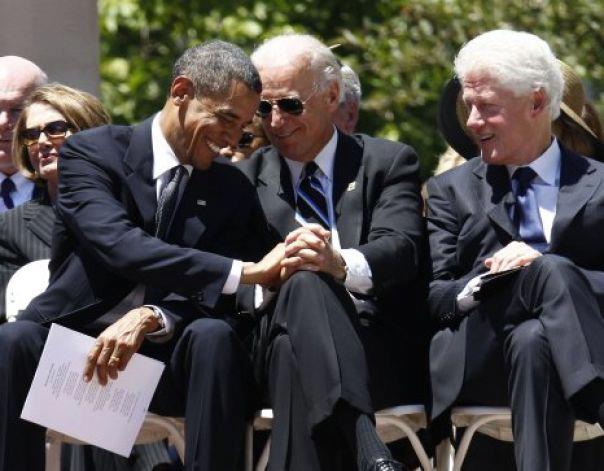


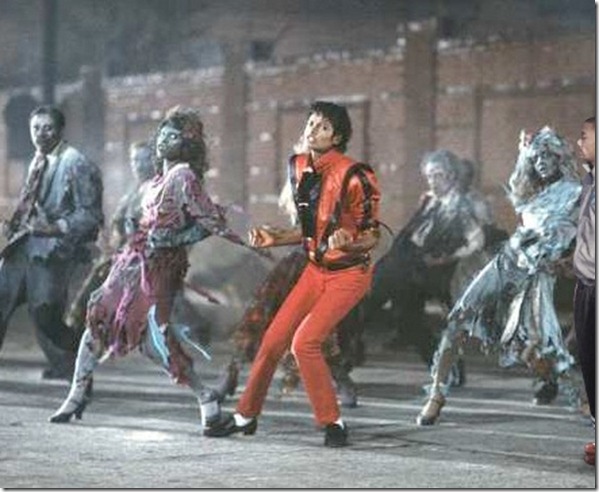

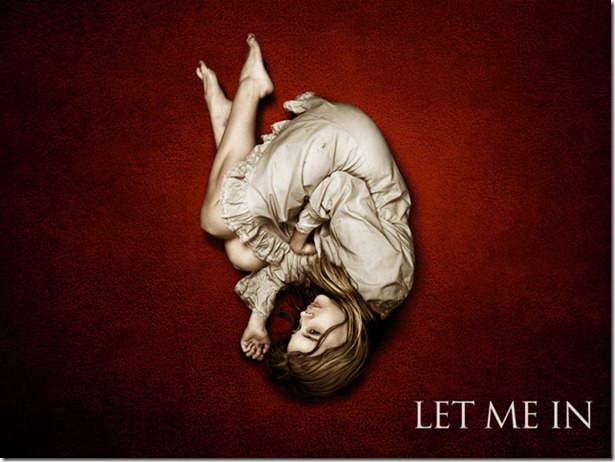























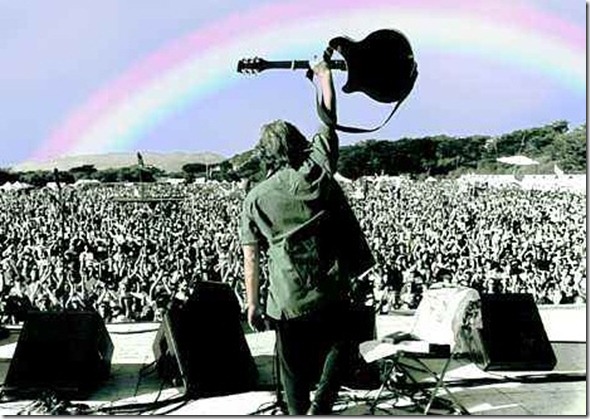







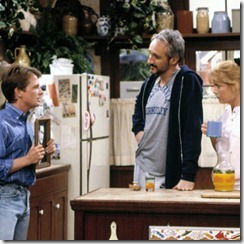
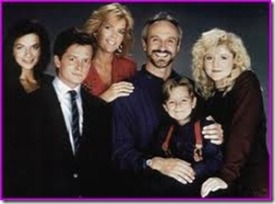






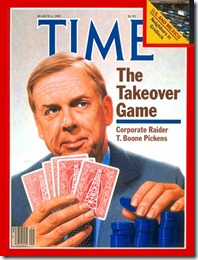


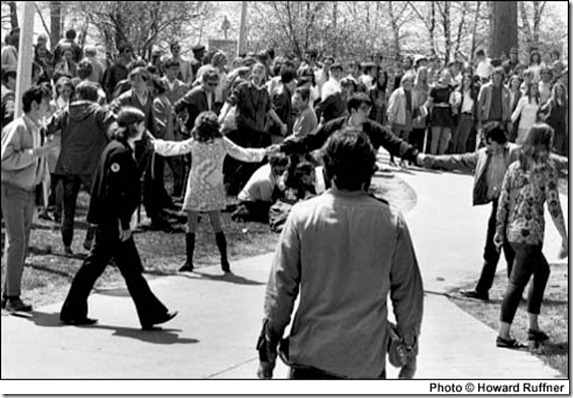
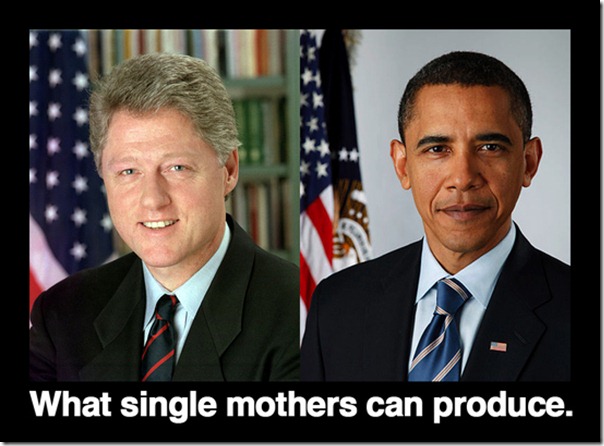

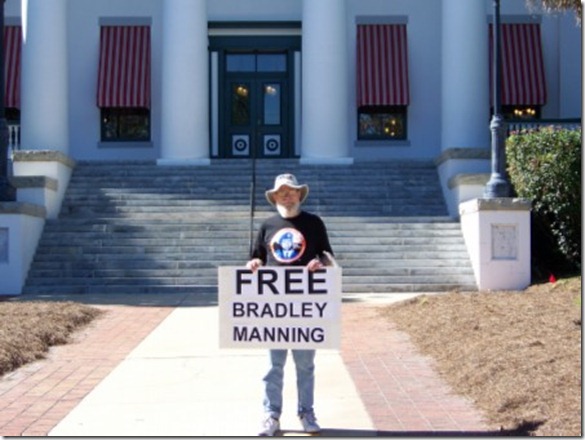







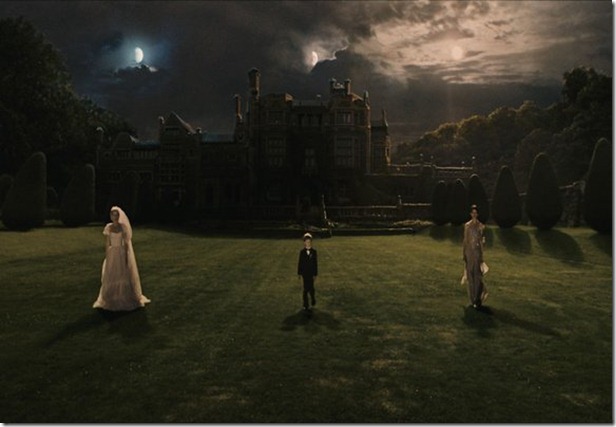










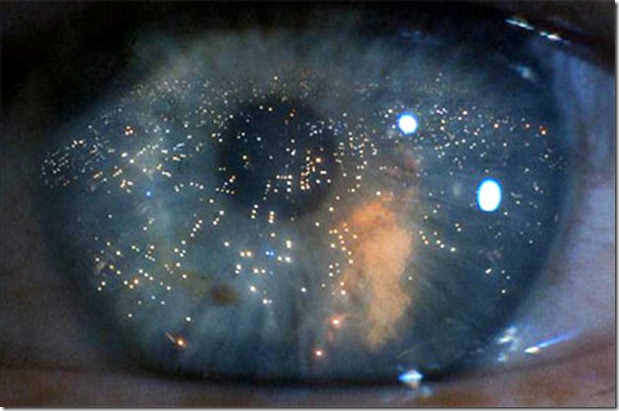


























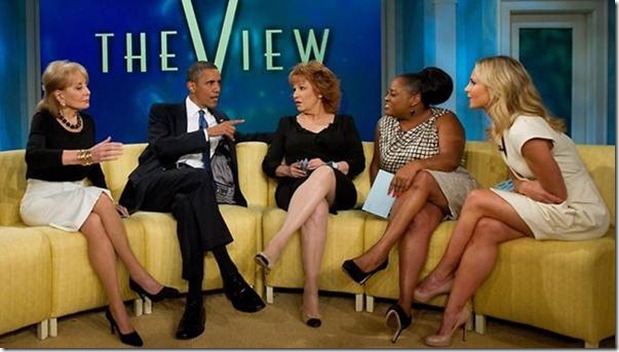















































































 The rock groups and their lyrics themselves are often blatantly perinatal. The most obvious example of this was the group, Nirvana, who came out with a CD titled “In Utero.” The fact that the leader of the group, Kurt Cobain, committed suicide is a strong indication of his closeness and access to his perinatal trauma…as I will soon explain.
The rock groups and their lyrics themselves are often blatantly perinatal. The most obvious example of this was the group, Nirvana, who came out with a CD titled “In Utero.” The fact that the leader of the group, Kurt Cobain, committed suicide is a strong indication of his closeness and access to his perinatal trauma…as I will soon explain. 






















































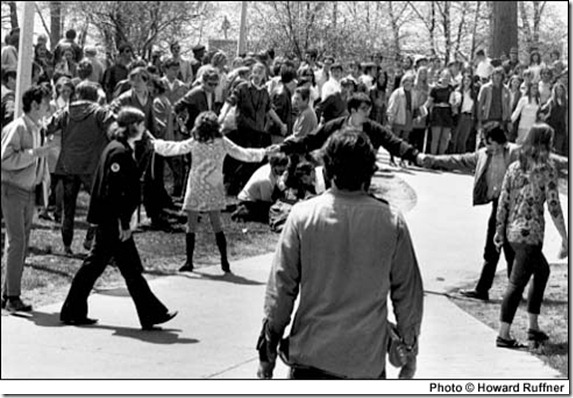

















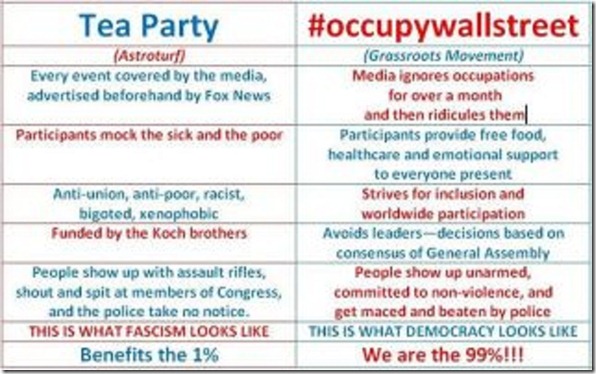




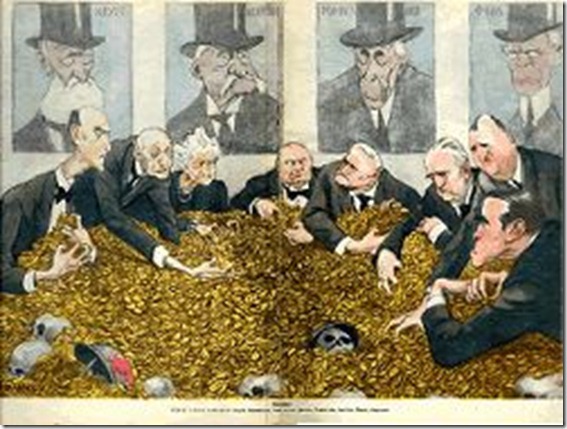










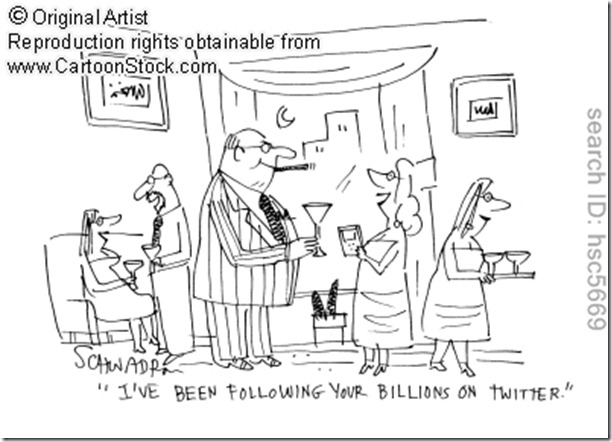
















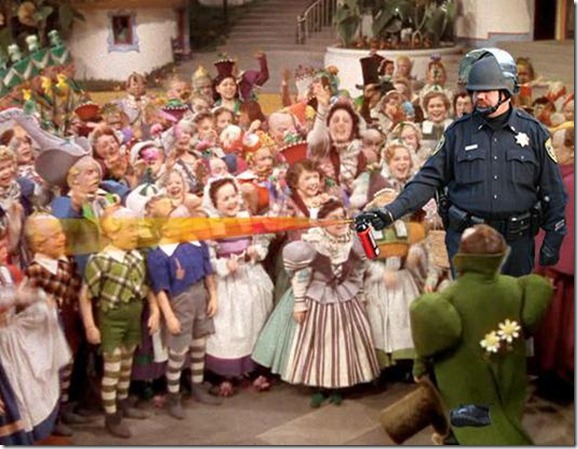
















































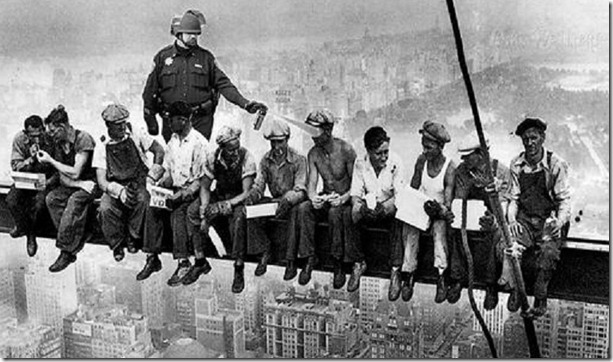















































































































































Where There Is Hope and What Did You Expect Awakening to Look Like? Look Hard Enough, You Just Might See the Seeds of Light Amidst the Darkness Surrounding.
Posted by sillymickel in activism, authenticity, being yourself, Class, Culture, Generations, globalrevolution, History, individualism, life, meaning, nonconform, occupywallstreet, philosophy, Politics, psychology, spirituality on July 7, 2013
Chapter Ten: Where There Is Hope, Cultural Rebirthing
Societal Self-Analysis and Talk Show Soul-Searching for Peace … Sorry, I Know You Wanted to Hate Reality Shows.
The Price of Peace Is Inner Sight: Societal Self-Analysis, an Internet Reformation, and Talk Show Soul-Searching for Peace
Societal Self-Analysis
Culture War Replaced Cold War
We see the workings of these opposing tendencies to look away from problems or to embrace them by examining the reactions in America to the collapse of the Soviet Union. The disappearance of this huge object for distraction from inner unhappiness, about which one could rationalize the use of defensiveness and scapegoating, led to continued turning away through the emergence, in America, of a search for other societal scapegoats and therefore the “Republican revolution.” Culture War replaced the Cold War as the way one could be comfortably ignorant of one’s insides and self-assuredly distracted, self-righteously engaged.
This removal of a collective punching bag or scapegoat also resulted in a healthy turning toward the darkness within and a collective self-analysis in America. This reaction has brought to the fore many of our social and political shortcomings.
Talk Show Soul-Searching
We also witnessed the rise of reality shows as part of this societal pull to see beneath the covers of what is thought to be real. Now, progressives and intellectuals have lots of fun vamping about how superior they themselves are to such interests, as exemplified in reality shows. This can only be the position of elitists out of touch with the ways ordinary folks live their lives.
Sitcom Socialization
To make my point, let me back up a bit. The swagger that the Left, and intellectuals in general, display around reality shows is the same superiority they have expressed for decades concerning sitcoms. First, let me say that I consider most sitcoms and reality shows to be rather boring and a bit inane with their laugh and soundtrack framing. Yet, when I was a child, growing up in a medium-sized city in the coal country of Pennsylvania and coming from a very traditional family, it was only through such sitcoms that I had a chance to find out what a different style of family and parenting would be. Today, I would laugh at a “Father Knows Best.” But it was a step up and into socialization from the “Father Knows Little” or “Father Not Around” of many in my social stratum when I was a kid. This exposure allowed me, and many of my generation, to seek for more in our life and for better interpersonal family relationships…and eventually better parenting.
Yet, when I was a child, growing up in a medium-sized city in the coal country of Pennsylvania and coming from a very traditional family, it was only through such sitcoms that I had a chance to find out what a different style of family and parenting would be. Today, I would laugh at a “Father Knows Best.” But it was a step up and into socialization from the “Father Knows Little” or “Father Not Around” of many in my social stratum when I was a kid. This exposure allowed me, and many of my generation, to seek for more in our life and for better interpersonal family relationships…and eventually better parenting.
A Modern “Priesthood”
This is where righties have it right when targeting “hollywood” for many of the changes in our culture over the last half century…though they see that as a negative influence. But intellectuals and lefties blow an opportunity and lose support among ordinary folks through an unconscious haughtiness and a cultural snobbery they are blind to but display in their turning up their noses at popular culture. Luckily, as an anthropological social scientist, I can study popular culture and get away with it, though not without some snide commentary coming my way from progressive and professional circles. They simply will never understand an intellectual who can speak to working folks because he’s one of them. They simply don’t get my attempts to package the crucial understandings of modern science and social sciences, on which the existence of our very world depends, in words that are not primarily directed to and meant to appease the gods of academia. They consider themselves important within their tiny professional circles, thinking they are changing the world when no one even knows what they are doing beyond that constrained perimeter.
Luckily, as an anthropological social scientist, I can study popular culture and get away with it, though not without some snide commentary coming my way from progressive and professional circles. They simply will never understand an intellectual who can speak to working folks because he’s one of them. They simply don’t get my attempts to package the crucial understandings of modern science and social sciences, on which the existence of our very world depends, in words that are not primarily directed to and meant to appease the gods of academia. They consider themselves important within their tiny professional circles, thinking they are changing the world when no one even knows what they are doing beyond that constrained perimeter.
Keeping the People Down
Indeed the attitude of academics and progressives about popular culture, especially talk and reality show tv programming and although they would be appalled to ever think it, is no different from the attitudes of the Catholic church and the clergy about matters of faith during medieval times. There, too, we had an elite wanting to “keep out the unwashed.” There, too, we had a distinction between people in the know and the rabble, with the anointed ones requiring ordinary folks to go through them for matters of truth and faith. We had then also this sharp distinction between the “high culture” of the Church and aristocracy—exemplified in the chamber music of the time—and the “low culture” of the masses—exemplified by the folk music of the troubadours of that day.
Nowadays this poo-pooing of tv culture by intellectuals is the same kind of attempt to funnel reality to the masses through the filters of a new “priesthood.” The cultural purists and intellectual elites would prefer that for truth you go through them in academia, where you ‘d have to pay a toll of course, just as the priests of the Middle Ages required you to pass their way on the road to the divine.
Therapy for the Masses
At any rate throwing off the snootiness of intellectualism, I contend, allows us to notice that sitcoms, reality shows, and talk shows serve functions in society that are, overall, beneficial in advancing our culture and catalyzing increased growth. They may not reflect, yet, where intellectuals and progressives think we should be, but for many they show something beyond where they are.
We should know that they are overall helpful in our cause from the fact that conservatives want to attack hollywood and limit freedom of expression on any airwave. The fact that many reactionaries want to keep their children out of schools, home-schooled, and away from tv sets should be telling progressives something about the value of popular culture.
Rebirth Denied
American Rehab
If there weren’t reality shows, folks would have a harder time knowing appropriate ways for men and women to act with each other. The gains of feminism would not have spread so widely or as fast if they were not being modeled and reinforced repeatedly on talk and reality shows. They demonstrate parenting and social skills—“politically correct” ones, in the good sense—to folks who would otherwise not know any better than to behave crudely and abusively. They bring the world, geography, travel, and history to the masses.
They demonstrate parenting and social skills—“politically correct” ones, in the good sense—to folks who would otherwise not know any better than to behave crudely and abusively. They bring the world, geography, travel, and history to the masses.
Intellectuals quibble about the quality of that, which comes across as quite childish, for it arises as if out of a jealousy of others getting the attention they want and out of a fear of competition for informational matters around science, culture, and humanities. It strikes me as more than ironic that those on the Left who would wish people to wake up from their zombie slumber would want to push programs of literature or drama where truths are filtered through the consciousness, and unconscious, of the artist, while wishing to deprive folks of a direct look—however contrived, it is actual reality and not scripted—at the world around them and people’s actual unplanned behavior and spontaneous reactions to unusual events.
Seeing people’s behavior in some of these shows does often remind me of the dynamics I’ve seen in therapy groups, and some of the personal changes in the participants mirror some of the evolutions I’ve seen in folks undergoing deep experiential psychotherapy. The audience participation part often sounds like group therapy or an intervention. I’ve been struck by how some of the group processes in the show remind me of family day in rehab, with folks reflecting back what they see in each other and how others’ behavior has affected them. These are all things that conservatives cringe at…actually hate. Yet liberals, except for notable exceptions like Jerry Springer, are not seeing the opening they have here. Lefties are fighting rather than using these forces, which are in the direction of personal growth and, cumulatively, much needed societal change.
As a psychologist and simply someone who loves people, I am fascinated by some of the things I see in these shows. They can be heart-wrenchingly real at times. So it occurs to me that folks who disparage these shows, comparing them with literature and dramatic productions, is another thing where some are wanting to have their reality filtered, managed, and packaged for them, lest it be too “disruptive” to their prejudices of things.
The Price of Peace Is Inner Sight
The upshot of all this is to say that just as a lack of a Cold War caused both collective acting out—another war, a Culture War—and collective inner searching via television talk shows, documentaries, and such. So also the prevention of “hot” wars on an international, not just intercultural, scale and the cause of peace in general require such inner soul-searching and such confrontation with one’s darker sides. And if we must, it is better to endure the psychotic acting out of a culture war—with its battles played out on the airwaves—than an actual war.
So also the prevention of “hot” wars on an international, not just intercultural, scale and the cause of peace in general require such inner soul-searching and such confrontation with one’s darker sides. And if we must, it is better to endure the psychotic acting out of a culture war—with its battles played out on the airwaves—than an actual war.
For is there any doubt that either of these or any combinations of these alternatives, however uncomfortable and even violent…on a smaller scale…at times, is a small price to pay compared to the price of outright war and violence which, by any measurement, is a cost horrifyingly huge and unacceptable?
America Currently Refusing to Pay Such Price
The converse of this is also true: When the dramas wanting to be discussed are suppressed in the mainstream media, it is as stifling of the growth of a nation as an individual’s growth. Unfortunately we have seen this as well recently. There have been massive worldwide and nationwide Occupy Wall Street demonstrations, massive Wisconsin union outpourings, and events in Japan and about Fukushima that the American people really want to and need to know and discuss, but they are being blacklisted from being broadcasted on. There has been a change in government in Iceland, with banksters being jailed, that Americans are not hearing about; there have been demonstrations in Japan about their insane response to their tragedy, which Americans won’t be told about; there have been massive demonstrations in Israel against the colonial policies of their own government that curiously do not make it into the offerings of news programs. These are things that in the Nineties would have fed the talk on tv and stimulated the necessary societal hashing out for there to be a chance of going beyond them.
There has been a change in government in Iceland, with banksters being jailed, that Americans are not hearing about; there have been demonstrations in Japan about their insane response to their tragedy, which Americans won’t be told about; there have been massive demonstrations in Israel against the colonial policies of their own government that curiously do not make it into the offerings of news programs. These are things that in the Nineties would have fed the talk on tv and stimulated the necessary societal hashing out for there to be a chance of going beyond them.
What Is the Cost of Denial? Of Complacency?
Internet Revolution Is Another Reformation
Luckily all this is changing as the internet and social networking have upended the academic elitists, swarming around and over their petty barriers of intellectual privilege. The blogsters and “rabble” of the net have taken over the cultural dialogue of the time as assuredly as Martin Luther and the Reformation changed religion forever and helped to bring to an end the cultural stagnation of the Middle Ages and to ignite an Age of Reason and of Enlightenment.
We Could Use More “Narcissistic” Generations: Know Thyself … Let the Buck Stop Here!
Moratorium … Let the Buck Stop Here! We Could Use More “Narcissistic” Generations
“Know Thyself” ~ “Narcissistic”?
Self-Discovery, Soul-Searching, Psychological-Mindedness, Self-Analysis – Sixties Generation
“Let It All Out? No, Leave Some of It In!” – Pat Buchanan, Fifties Generation
These highly defended and fear-minded conservatives, prone to projection, are incapable of appreciating the integrity of an inner-thinking generation like the Boomers are. These outer-minded authoritarians would not get, would outright hate those who “questioned authority” in the Sixties.
Let the Buck Stop Here!
If Not Us, Who? If Not Now, When?
We had seen normal ways of doing things to be impotent and often dangerous and most importantly leading to apocalyptic endings in our near future. This understanding is what was responsible for all the “non-normal” behaviors my generation displayed—communes, confrontations, clothes, relationships, organics, alternative ways of everything…an entire counterculture. We have been laughed at for essentially being ahead of the curve on the messages of modern events. We have been called crazy for our inconvenient prophecies, virtually all of which are now coming to pass.
While I and my cohorts, to use just one example, spoke out on the dangers of nuclear energy and in particular the insanity of building plants on fault lines, the professional pundits scoffed and boasted they lived near nuclear plants. This was thirty years and more before the world ever heard the word, Fukushima. The examples like this are endless. We saw all these unworkable endings and asked ourselves, “What would be a real way of doing that?” “What would be a workable, sustainable way?” “What would be a sane and happy life, ethic, and lifestyle.” “What would be a loving, peaceful mode of being?”
While we sought to redo culture from scratch, building it on perennial and unimpeachable principles, the threatened elders and the jealous youngers, who would soon enough come behind, poked fun from within the confines of their assured and comfortable wrongness. They called us narcissistic for thinking we could look at ourselves and the world and dare to think we could change it from ancient ways. They thought we were making ourselves important that way, putting on airs, even. Actually we were shouldering responsibility we did not want—yearning for a simpler, less serious time—but which we accepted for the sake of all those who would come after, knowing their very existence depended on our actions. We took faith in the touchstone of love itself—the only thing that did not crumble under examination—and sought to bend all emerging along its outlines.
They called us narcissistic for thinking we could look at ourselves and the world and dare to think we could change it from ancient ways. They thought we were making ourselves important that way, putting on airs, even. Actually we were shouldering responsibility we did not want—yearning for a simpler, less serious time—but which we accepted for the sake of all those who would come after, knowing their very existence depended on our actions. We took faith in the touchstone of love itself—the only thing that did not crumble under examination—and sought to bend all emerging along its outlines.
What others will never get is that our “overexamined life,” our “psychological-mindedness,” our perinatal propensities, and our soul-searching and self-analysis were not about being narcissistic. It was about needing to start everything anew as a rational response to the horrors we saw about us in our culture and in the world… horrors which we were correct in trying to address at the time. For their existence today, because of our inability to be completely successful in remedying them, are bringing about all the political, economic, and environmental armageddons I’ve been discussing in this, and its related, books. And we knew, and still know, that only some change huge and radical will help us, and for that we need to find and stand upon the deepest and firmest of ground within us. That is what we’ve been looking for, are still looking for…only now we have lots of company .
Better Hitler Had Jumped Into Mosh Pits: A Drive to Healing, the Hard Rain Fallin’, and Millennial Promise
A Drive to Healing and What Did You Expect Peace to Look Like? Better Hitler Had Jumped Into Mosh Pits
A Drive to Healing
We cannot expect that everyone will heal their birth traumas when they arise into consciousness during periods of peace. However, we can expect—especially now that there is understanding of these dynamics and there are techniques and modalities available for healing them—that some people will!
Furthermore, even the more ritualistic and superficial yet blatant regressions to infancy, birth, prenatal, or even prior to that—for example, as Mayr and Boelderl describe in Europe—are not the indication of a “death drive” or “death instinct” as these researchers claimed. [Footnote 3]
What Did You Expect Peace to Look Like?
Better Hitler Had Jumped Into Mosh Pits
What Might We Expect?
Millennial Promise
“A Hard Rain’s Gonna Fall”
From the roads and TV screens of America the scenery can often appear bleak. Sure, heavy changes are coming down…but what should we expect? “A hard rain’s gonna fall,” sang Bob Dylan. And that’s what it takes to blossom the spring. Look hard enough, you just might see the seeds of Light amidst the darkness surrounding.
Evidence in Our Collective Dreaming
Next we will take a look at one of the projective systems of our society, specifically, our cinema, to see if it shows evidence of the change of consciousness that we have here been describing as necessary to derail the cycles of war and violence that have plagued our species for millennia uncountable and have led us to the brink of extinction.
Films are both the collective dreams of our society as well as the only truly widely shared method of collectively experiencing a nonordinary state of consciousness. Thus they are telling, in the messages they contain, as well as powerful in their impact on the audience, who in this mild nonordinary state of consciousness are more open to suggestion and to receiving mental impressions and information.
widely shared method of collectively experiencing a nonordinary state of consciousness. Thus they are telling, in the messages they contain, as well as powerful in their impact on the audience, who in this mild nonordinary state of consciousness are more open to suggestion and to receiving mental impressions and information.
We will look to examples from films of the last few decades for indications that our collective consciousness is actually changing and that there are grounds for hoping that we will be able to stave off apocalypse…creating instead the quantum leap to an Earth rebirth.
Footnote
1. For “overexamined life”see Keniston, op. cit., 1965; for “psychological-mindedness” and “self-analysis” see Keniston, op. cit., 1968, especially p. 81.
2. Davis, op. cit., especially Ch. 7, “The Great Society and The Youth Revolt.”
3. Mayr and Boelderl, op. cit., p. 149.
Continue with Apocalypse – No! Chapter Eleven: Control Versus Surrender … Heaven Leads Through Hell
Return to Apocalypse No! Chapter Nine: Regressions in the Service of Society — Messy Healing
Invite you to join me on Twitter:
http://twitter.com/sillymickel
friend me on Facebook: https://www.facebook.com/sillymickel
Share this:
50s, 60s, 90s, abyss, academia, act out, activism, activist, activist youth, Adolf Hitler, Age of Enlightenment, Age of Reason, airwaves, alternative, alternatives, Alvin Lawson, America, Anita Hill, anita hill clarence thomas, anointed ones, Anthropology, apocalypse, aristocracy, Arthur Janov, artist, Baby Boomer, bankster, behavior, Bill Clinton, Birth, birth trauma, birth traumas, Bob Dylan, cable news networks, Carl Jung, Catholic Church, Catholic priests, Celebrity Rehab, chamber music, child, child-caring, child-rearing, children, cinema, civilization, Clarence Thomas, clarence thomas hearings, clergy, climate, clinton lewinsky scandal, cold war, collapse of the soviet union, collective regression, college students, commentary, commune, complacency, confrontation, Consciousness, conservative, conservatives, contemporary society, control, coul country, counterculture, craziness, crazy, culture, Culture War, current-events, death, death drive, death instinct, defensiveness, delegated release, denial, derogatory, die, disease, dissociation, distraction, Divine, documentaries, dreams, dynamics, echo generation, ecology, Ego, elders, elites, elitists, enemy, Environment, Europe, Evolution, experiments, extinction, faith, family, fascism, Father Knows Best, feminism, fetus, feud, Fifties, Fifties Generation, film, filthy rich, folk music, freedom, freedom of expression, Frontline, fukushima, generation, generations, God, group therapy, growth, hard rain, hate, healing, healing crisis, health, healthy, high culture, History, hollywood, home schooling, horror, humanities, Iceland, ignorant, infancy, inner exploration, integrity, intellectualism, intellectuals, internet, introspection, japan, Jerry Springer, Kenneth Keniston, know thyself, lefties, let the buck stop here, liberal, life, literature, love, loving, low culture, Martin Luther King, masses, matrix, Mayr and Boelderl, media, medieval times, Middle Ages, middle class, Millennial Generation, MLK, modalities, Moratorium, mosh pit, mosh pits, movies, mystical quest, narcissism, narcissistic, nation, Nature, Nightline, Nineties, nonordinary state of consciousness, nuclear, nuclear energy, nuclear power, nuclear power plant, O. J. Simpson, Obama, occupy wall street, orgy, overexamined life, overpopulation, ows, pacifier, pain, parenting, parents, Pat Buchanan, peace, Pennsylvania, perinatal, planet, Planetmate, Politics, pollution, popular culture, prejudice, prenatal, prenate, pretensions, price, price of peace, priesthood, professional, progressives, projection, projective systems, prophecy, psychodrama, psychodynamics, psychogenic mode, psychological mindedness, Psychology, psychosis, psychotherapy, punching bag, purist, quantum leap, quest, question authority, rabble, race relations, reactionaries, reality, reality show, rebirth, rebirthing, reformation, regression, regression in the service of the ego, rehab, relationships, Republicans, researcher, responsibility, revolution, righties, ritual, rituals, rock concert, sane, scapegoating, scenery of healing, schools, science, self, self discovery, self examination, self-analysis, self-destruction, self-righteousness, sexual abuse, sexual harassment, sigmund freud, sitcoms, sixties, snobbery, snootiness, social networking, social rituals, social science, socialization, socializing, society, soul searching, Soviet Union, spanking, spare the rod, spiritual, spiritual quest, spontaneity, spouse abuse, suggestion, SUPERIORITY, Survivor, sustainable, symbol, talk show, television experiential psychotherapy, terrorism, the Left, The Right, The View, therapy, trauma, troubadour, truth, tv, unconscious, understanding, unhappiness, union, unwashed, values, violence, vision, war, wisconsin, womb, working class, youth, zombies
Leave a comment